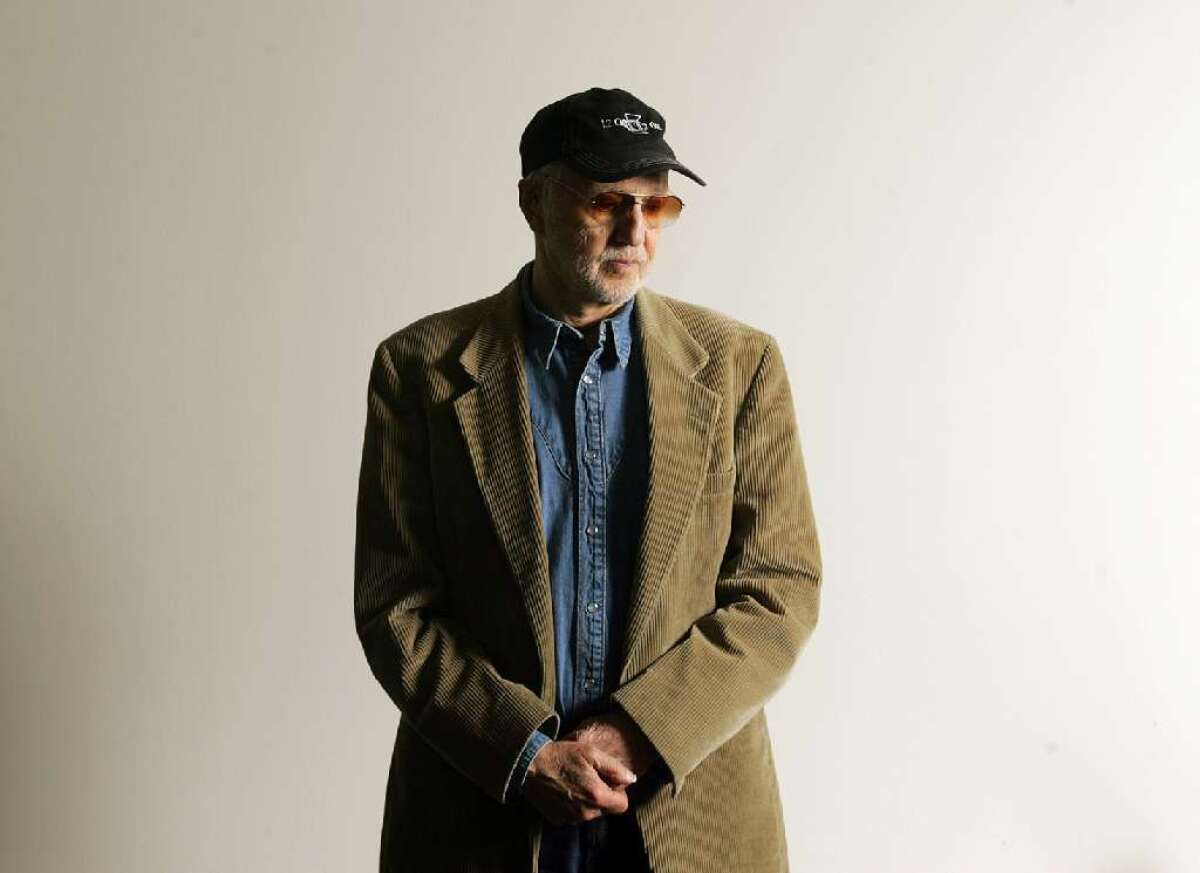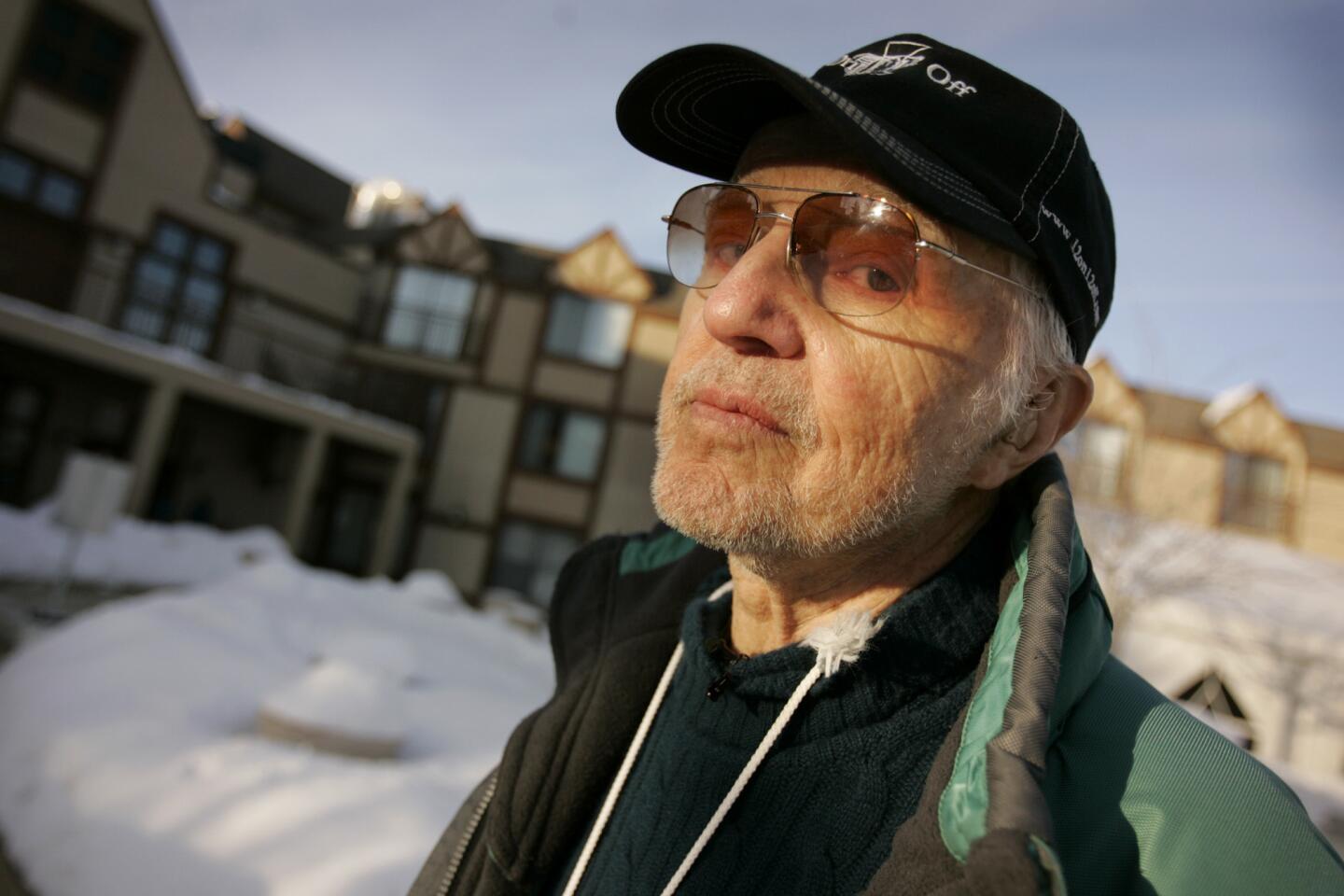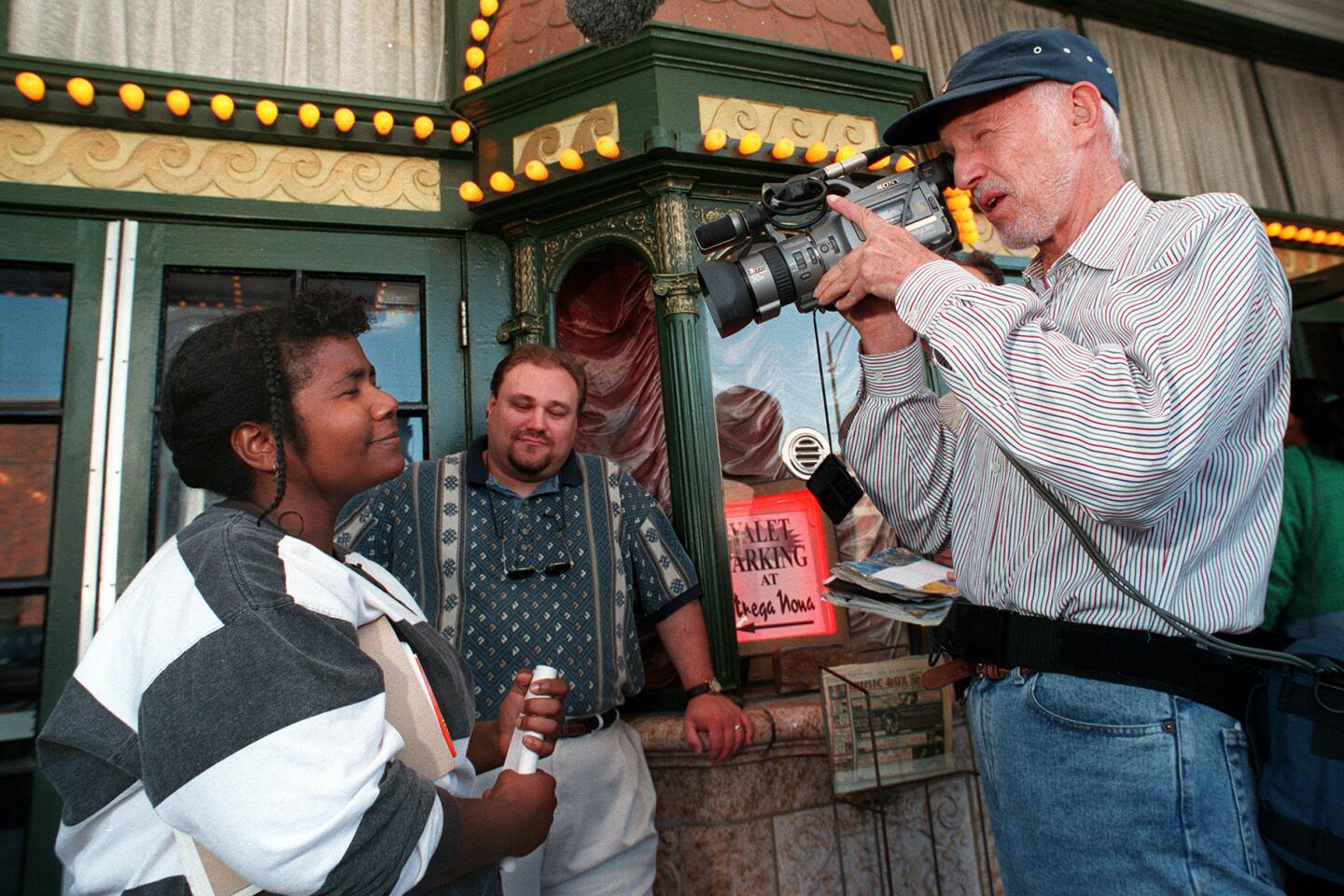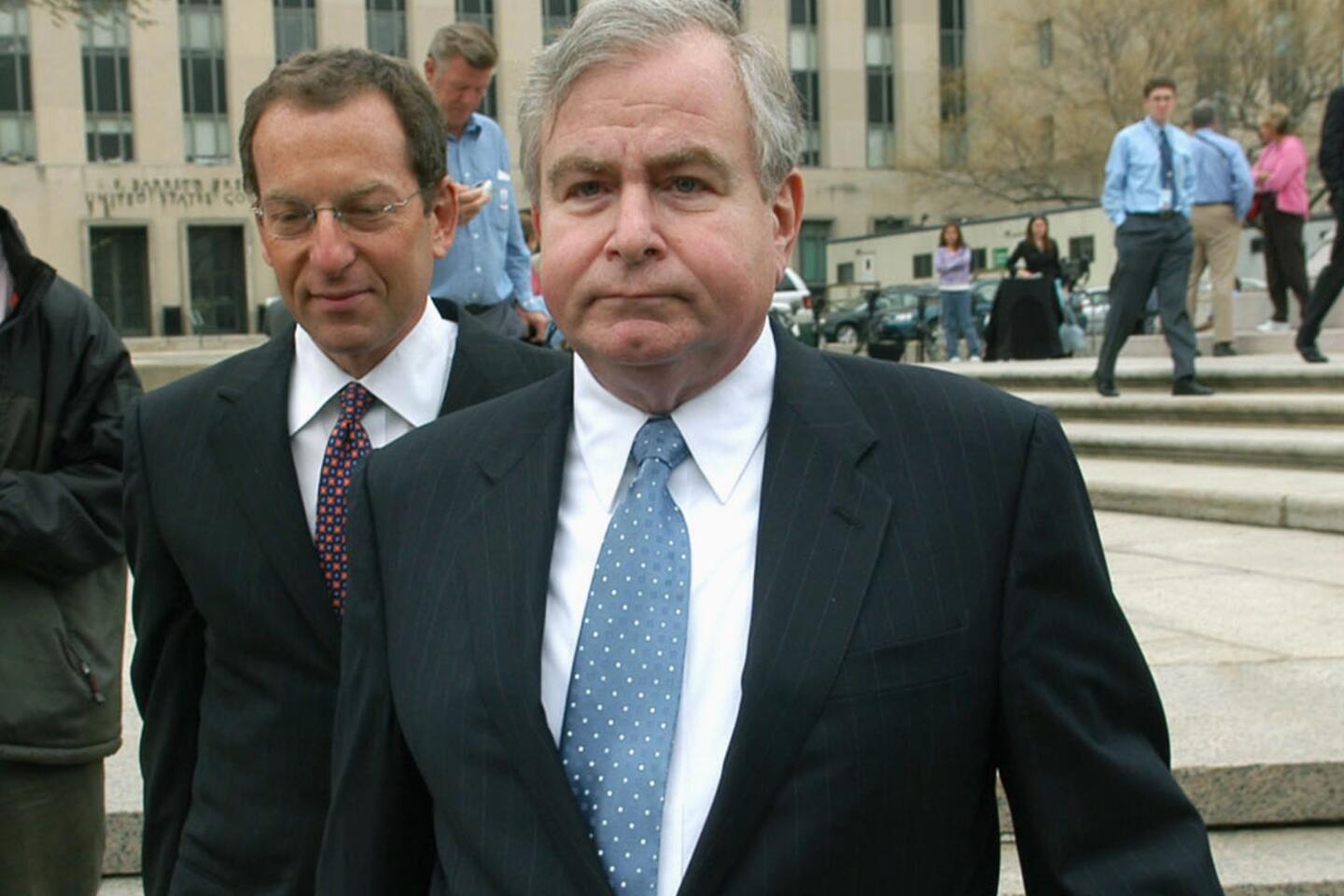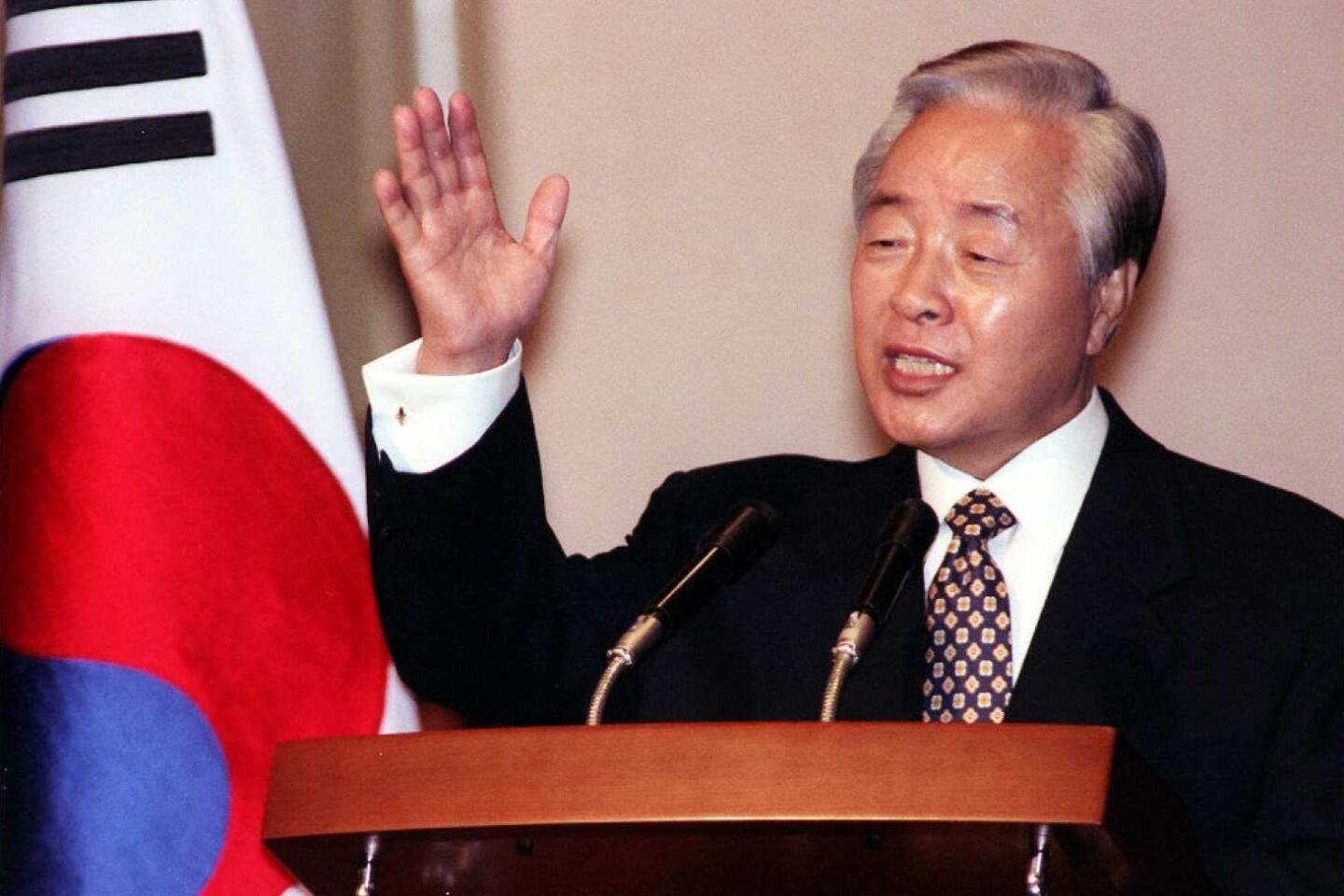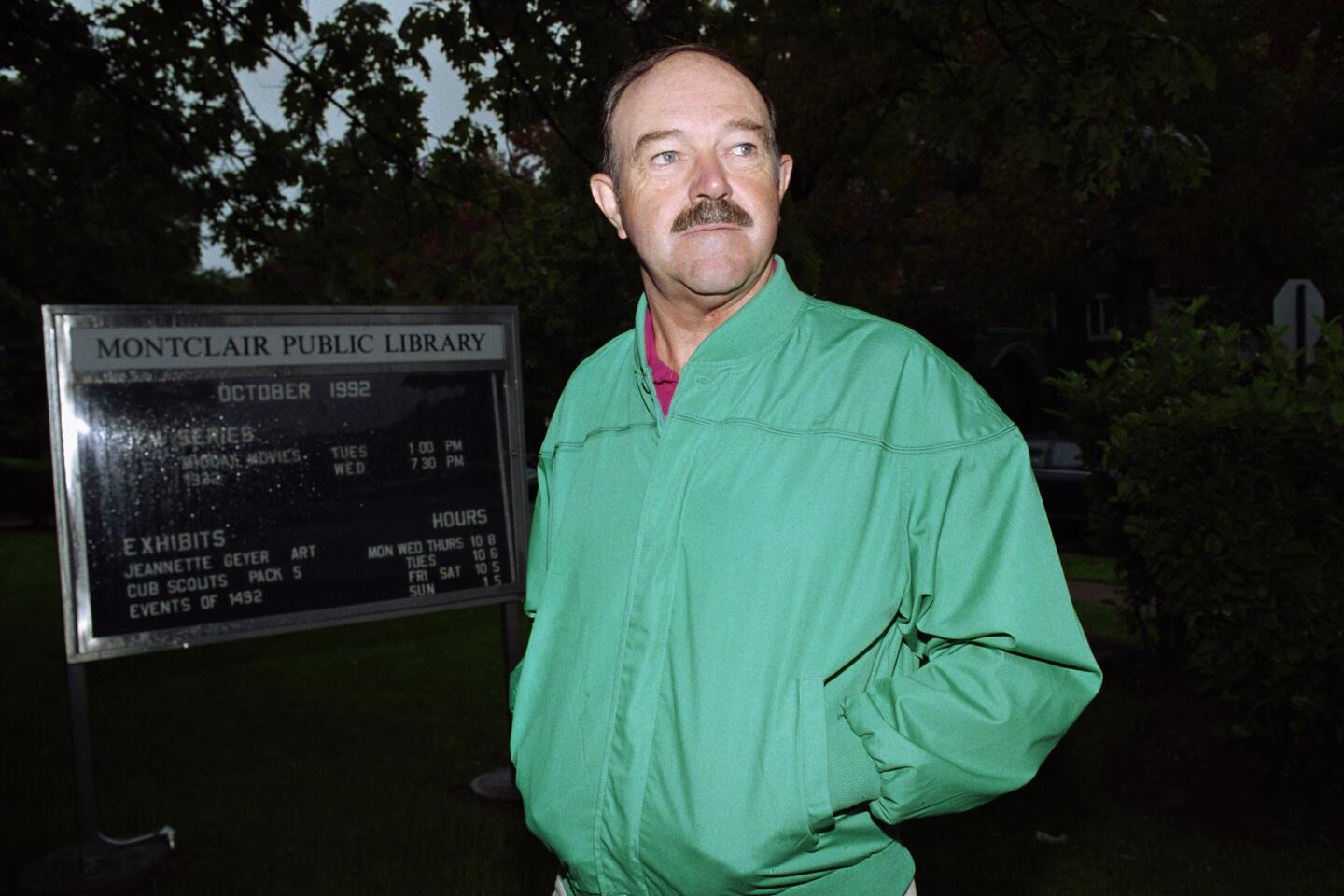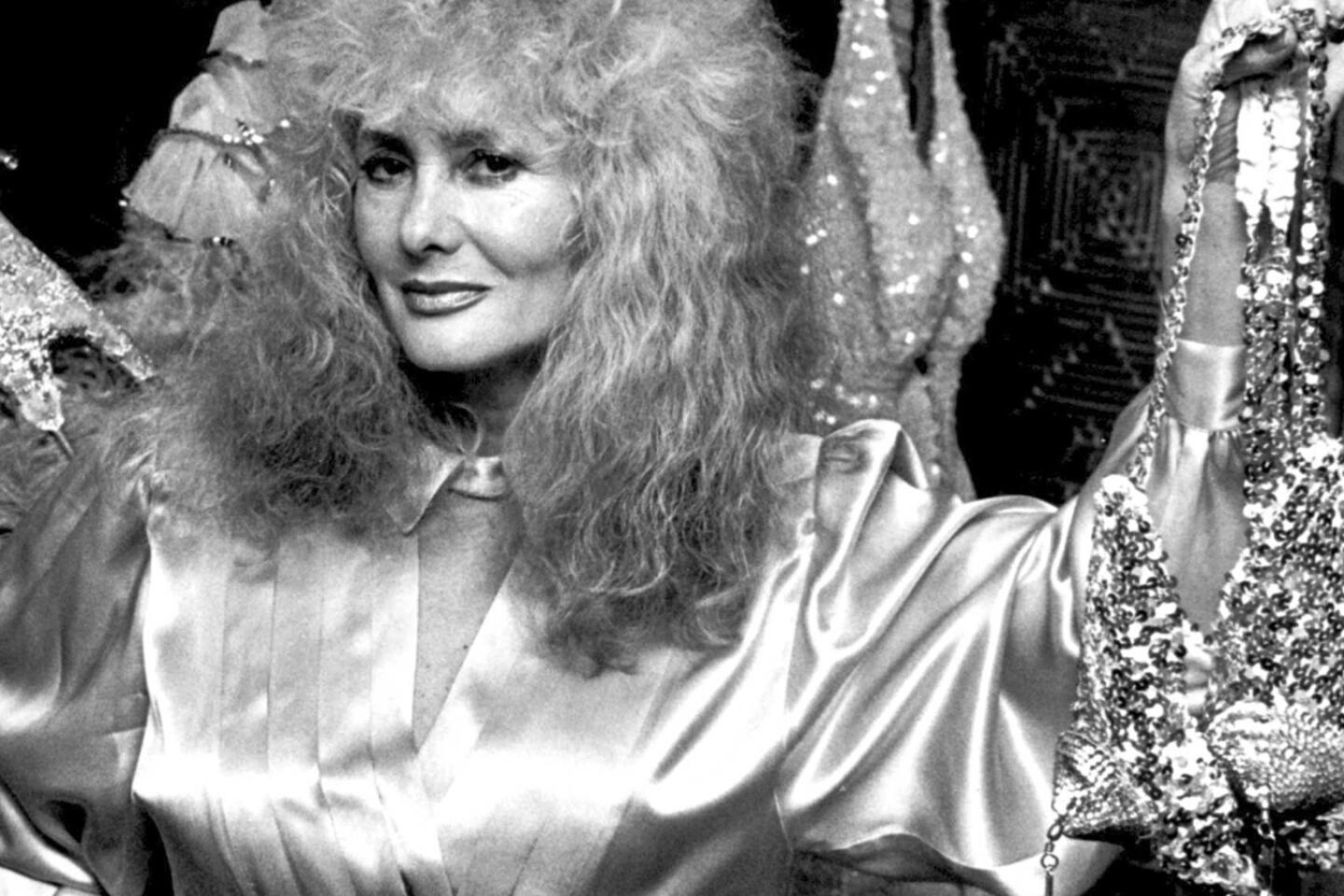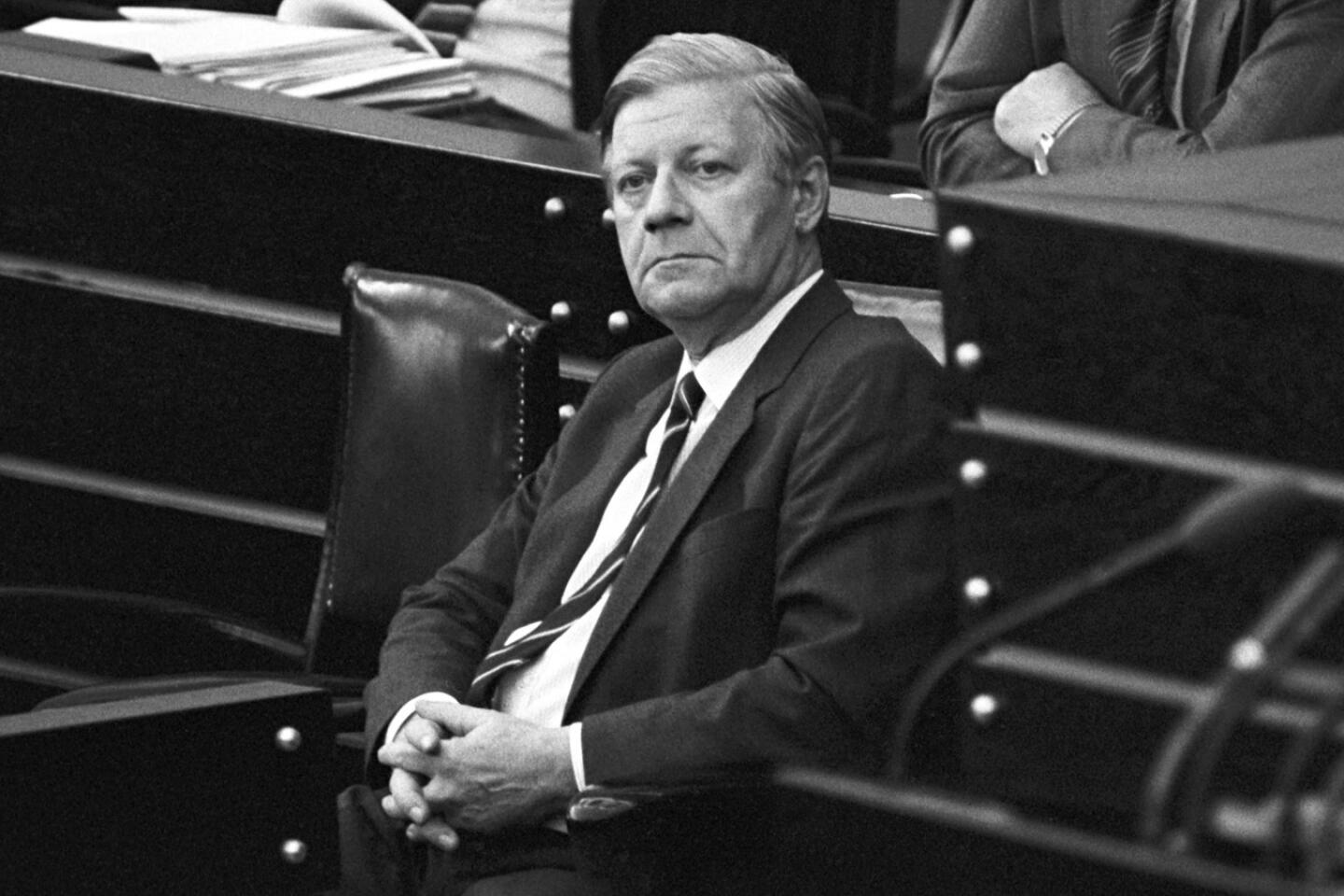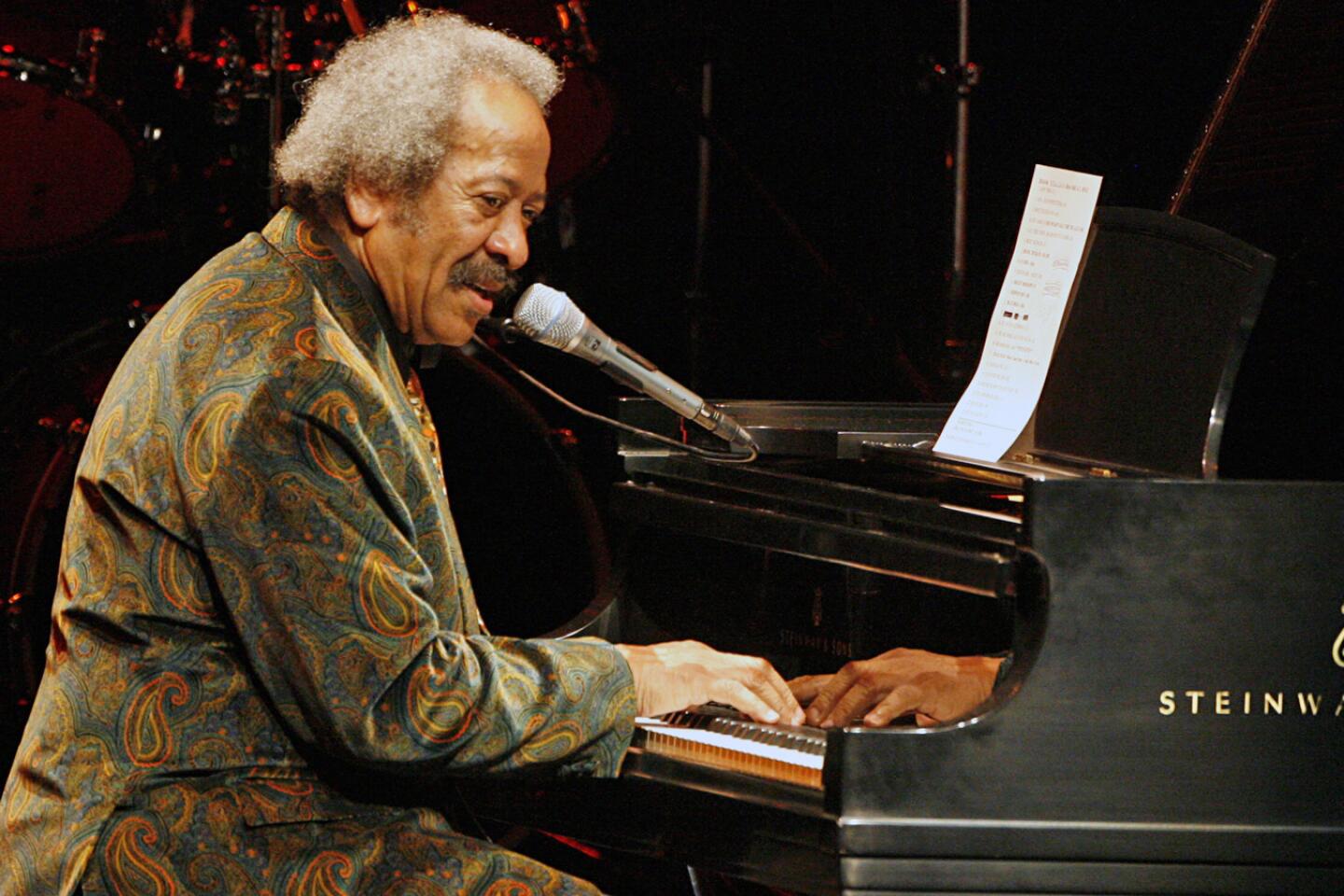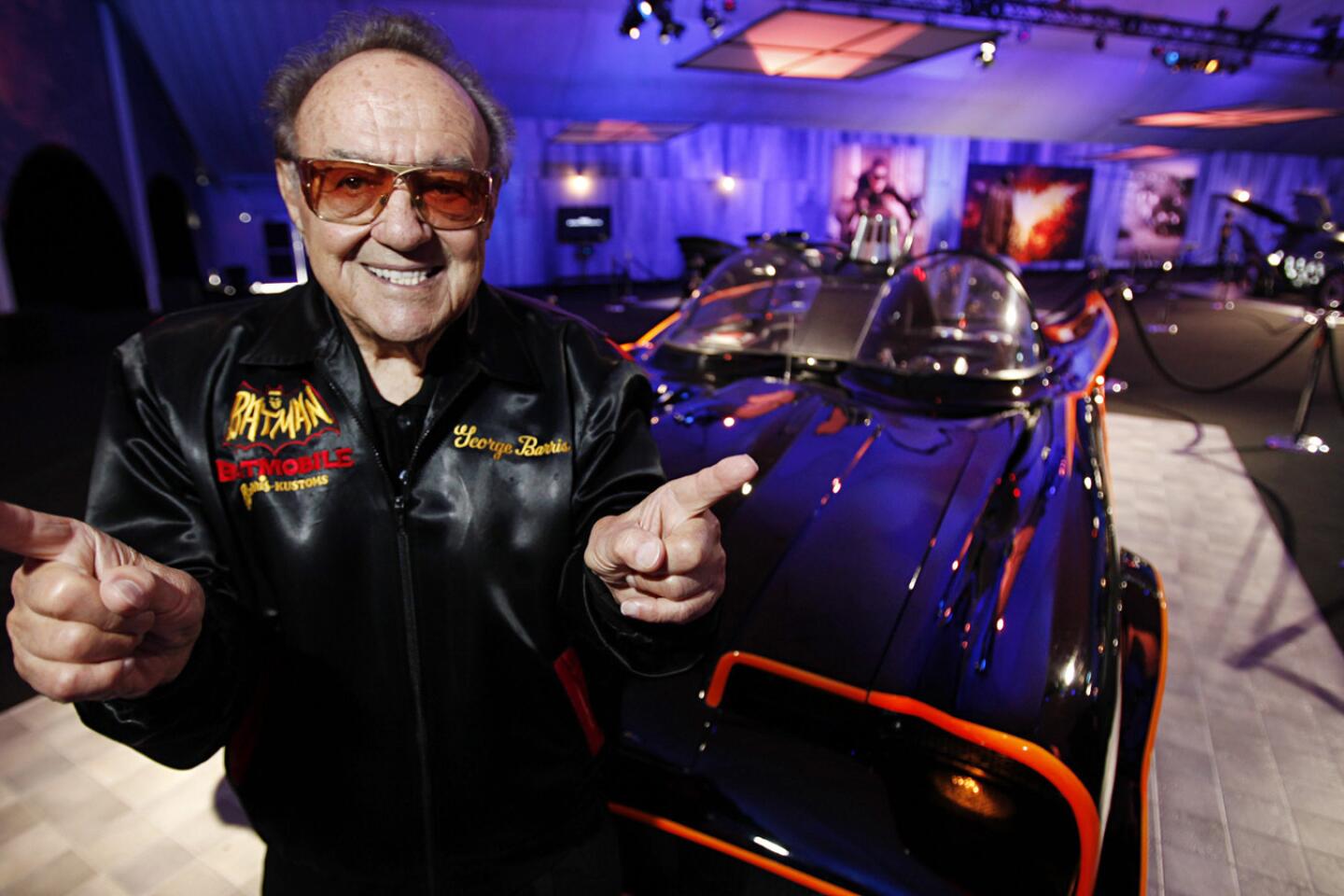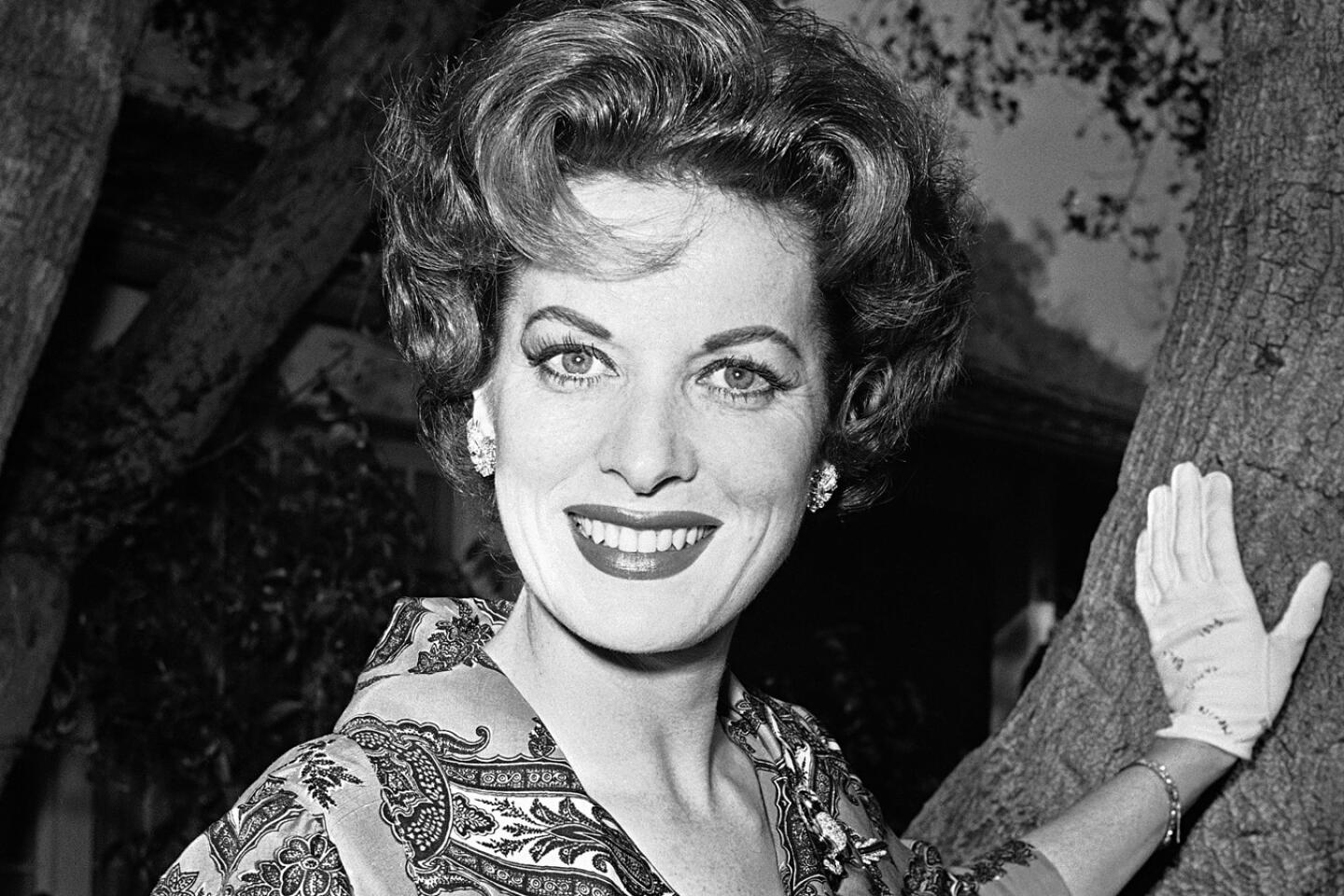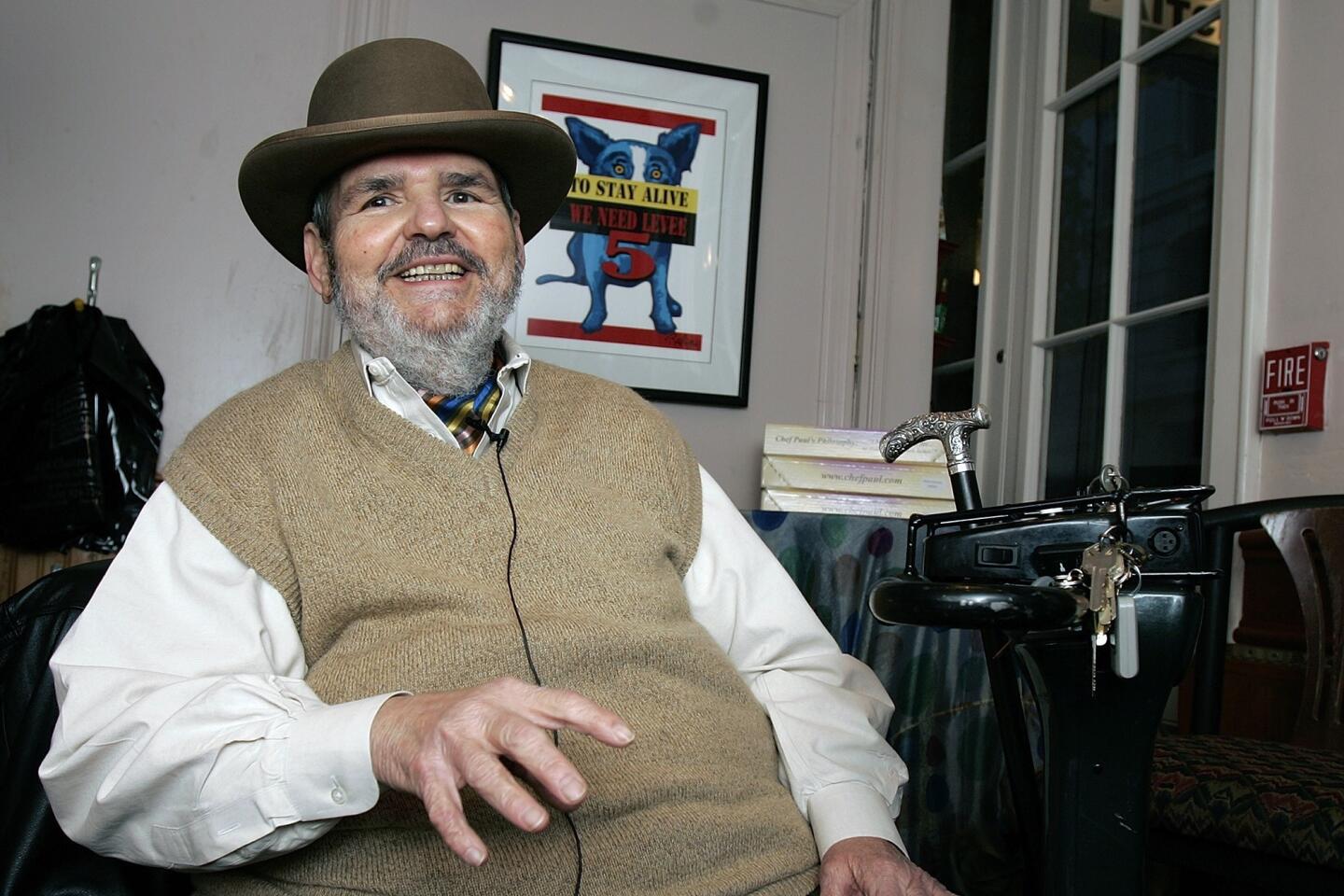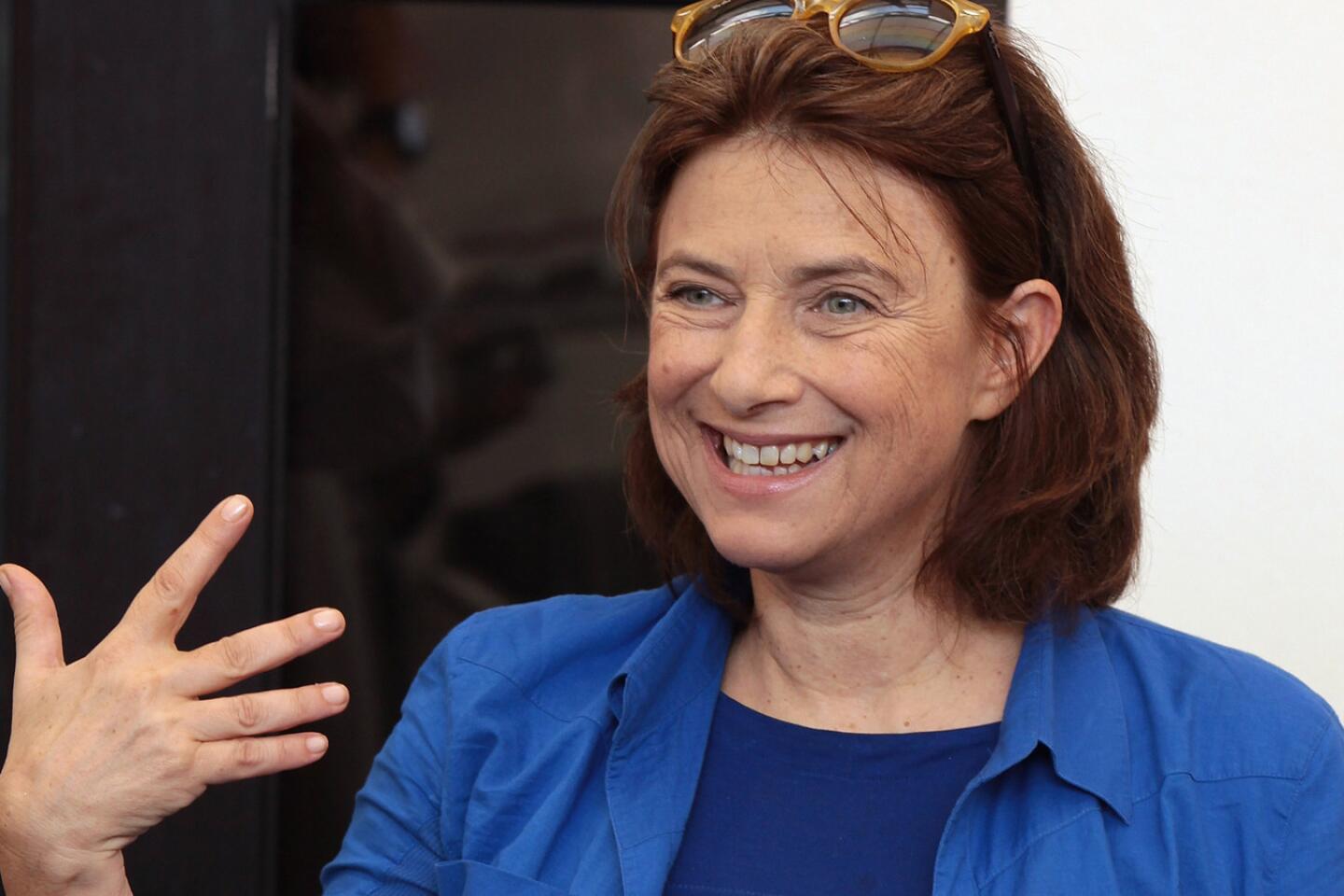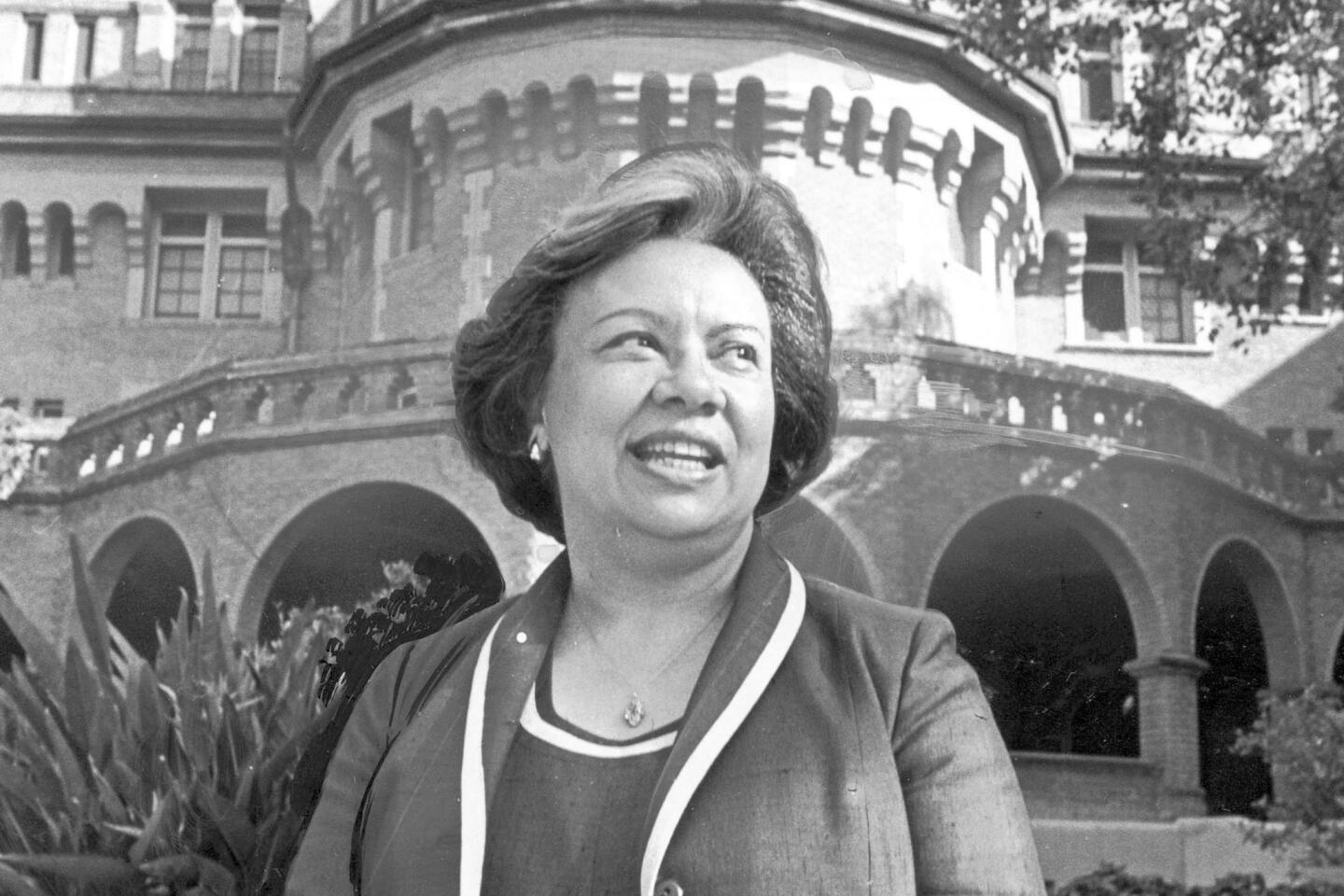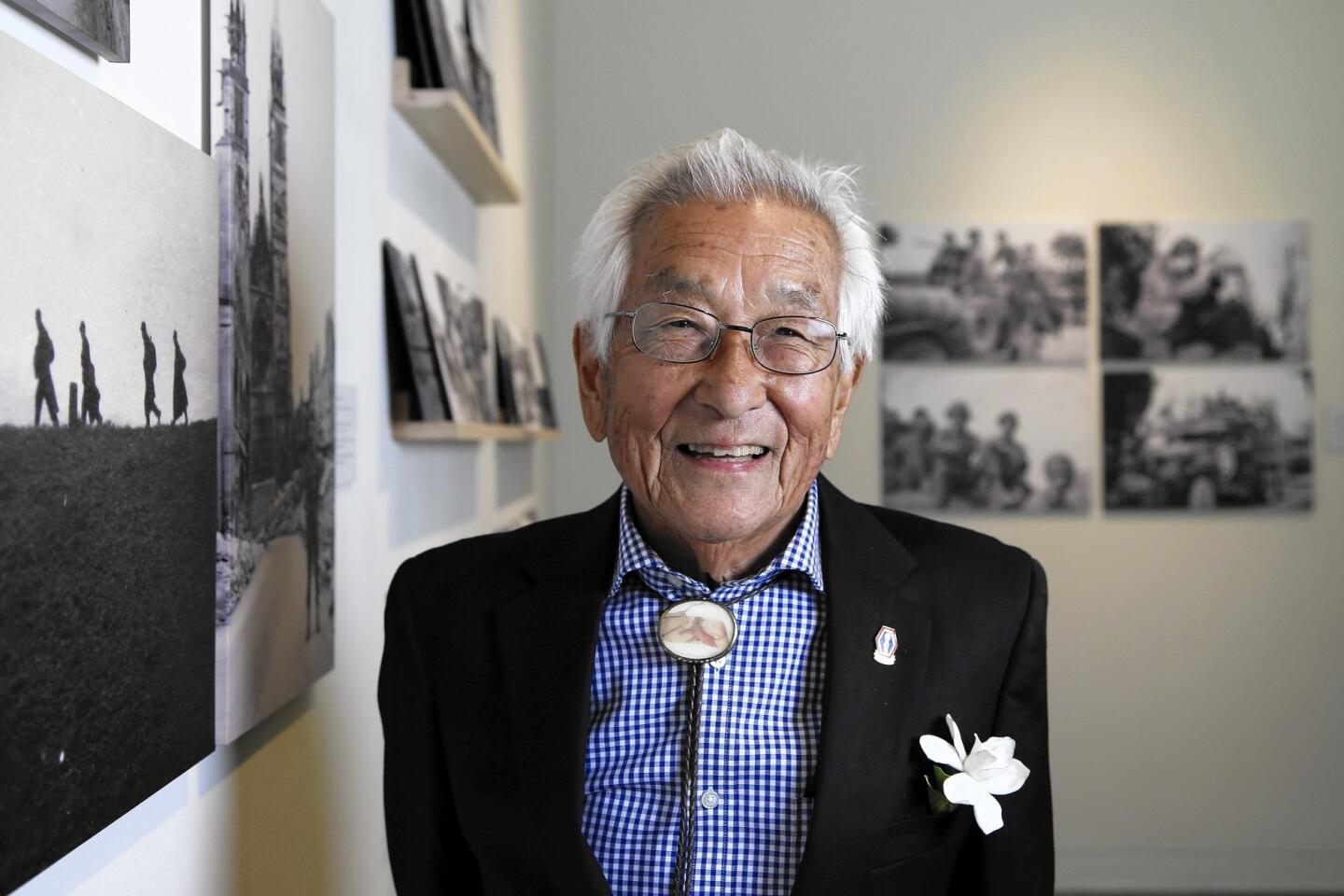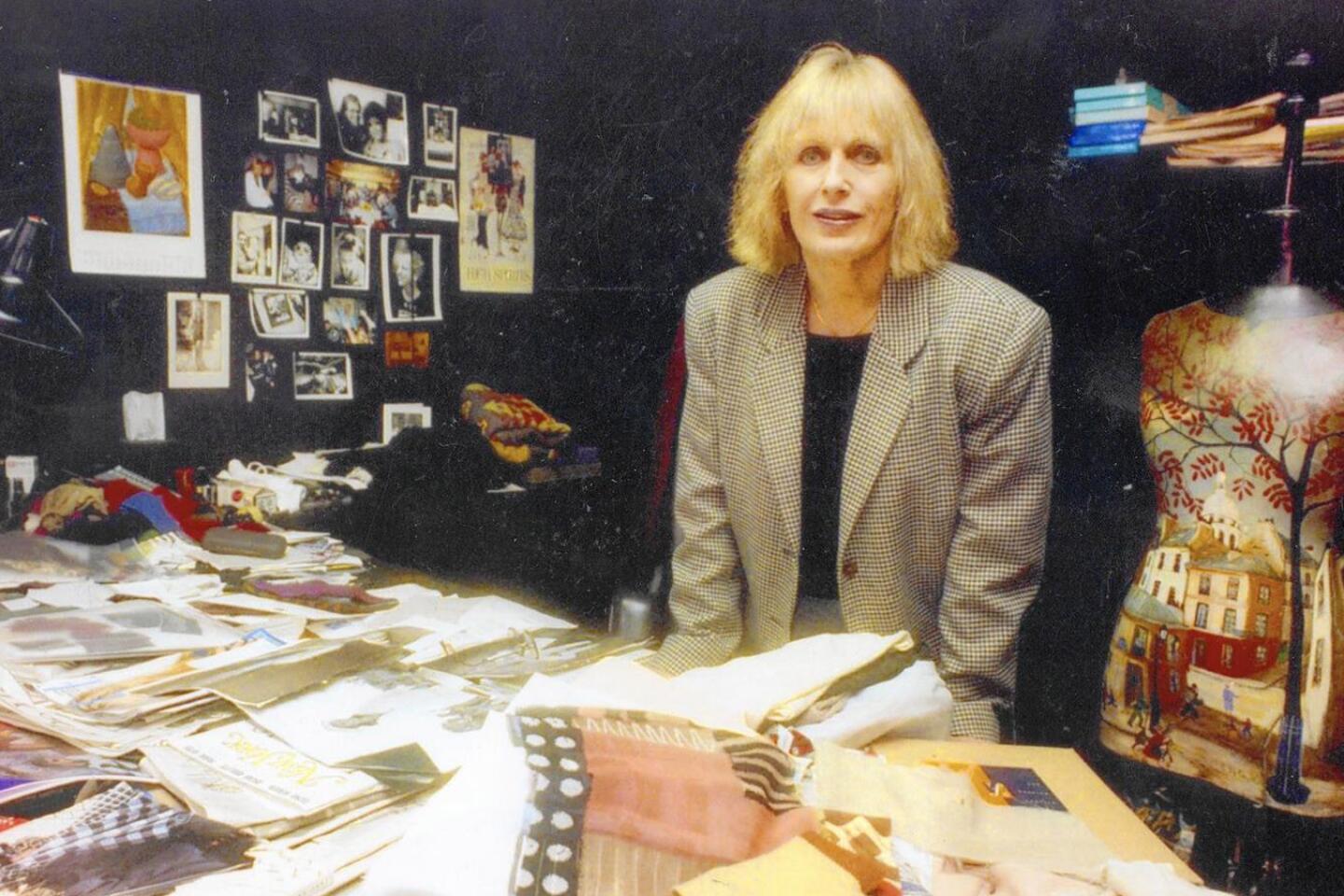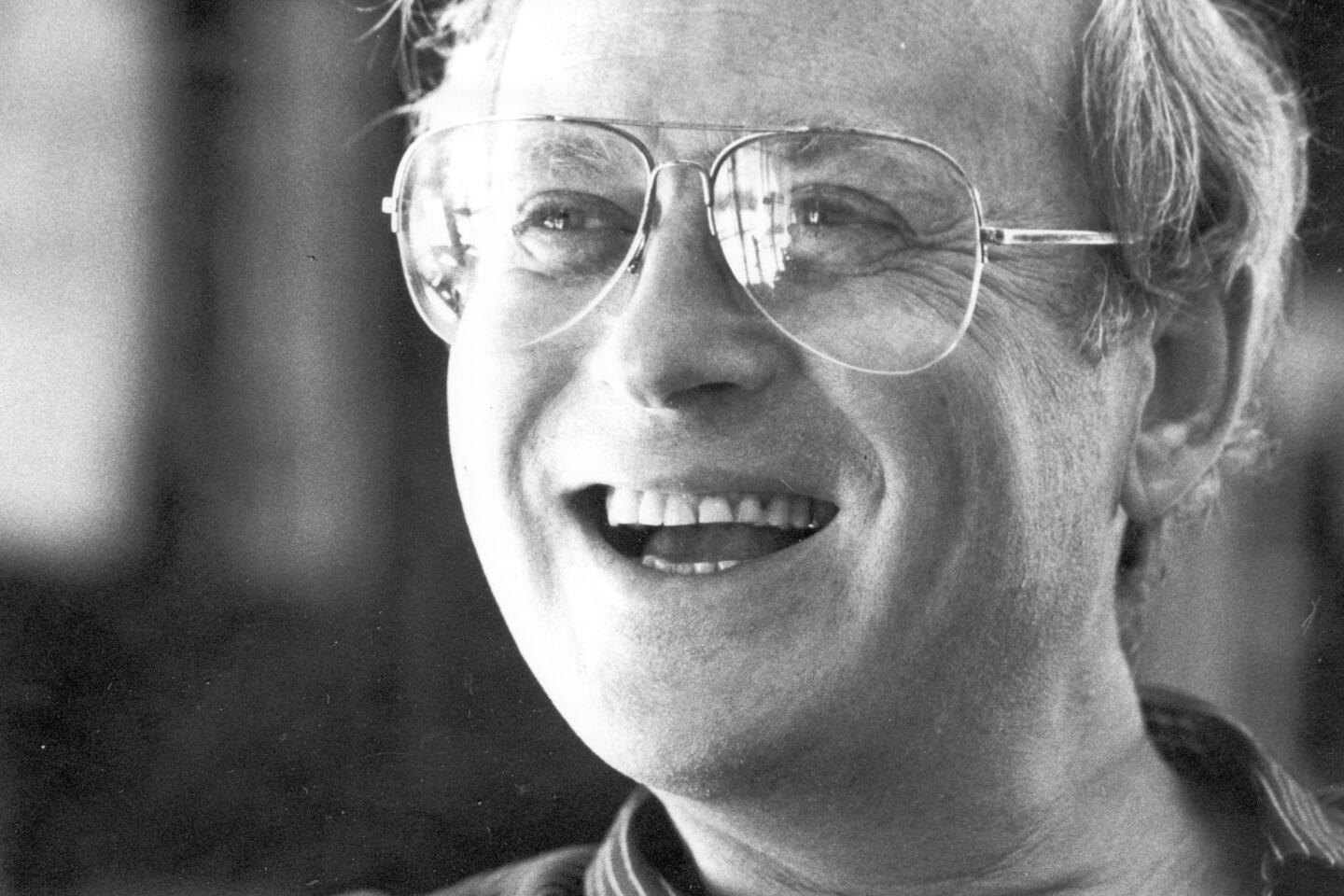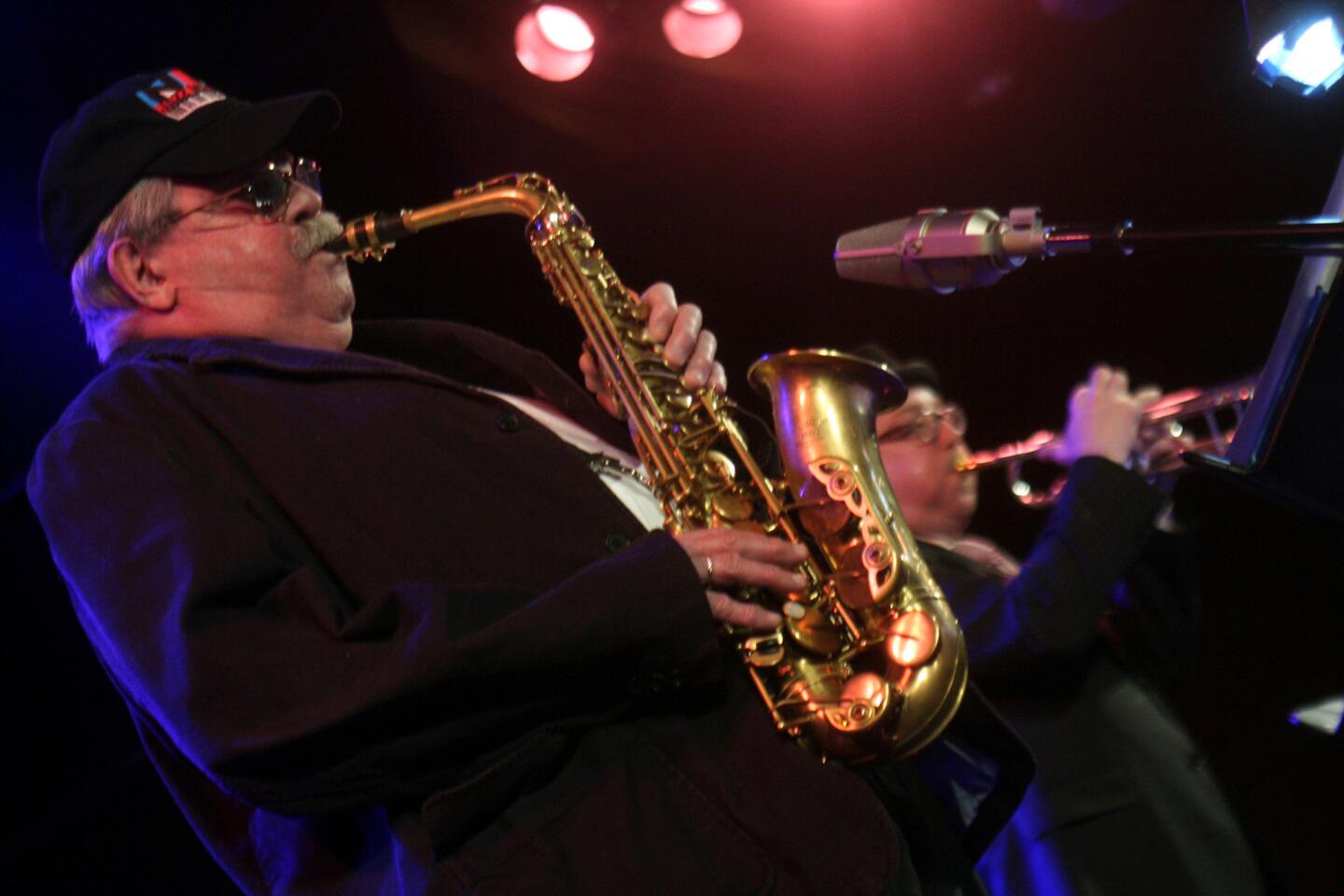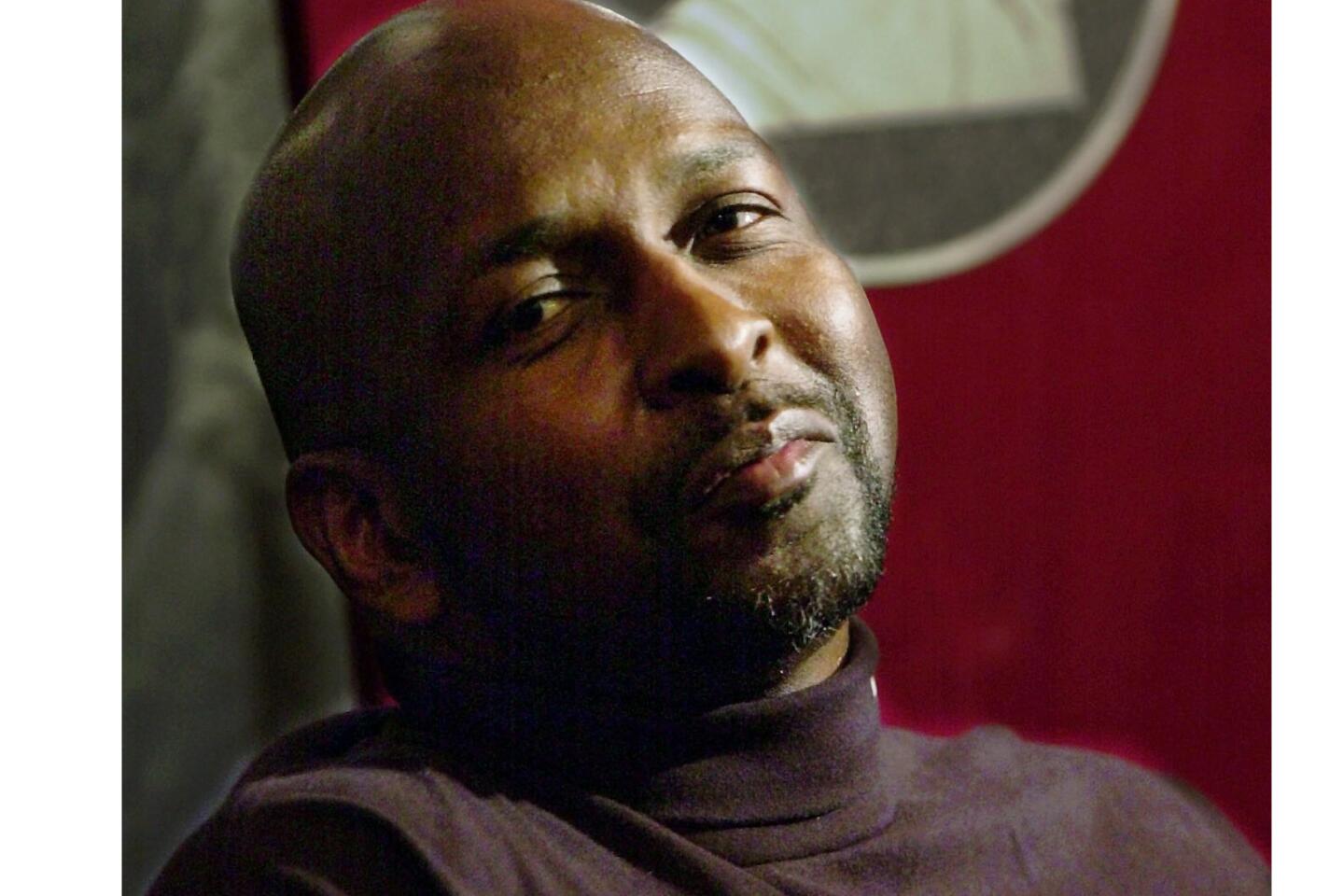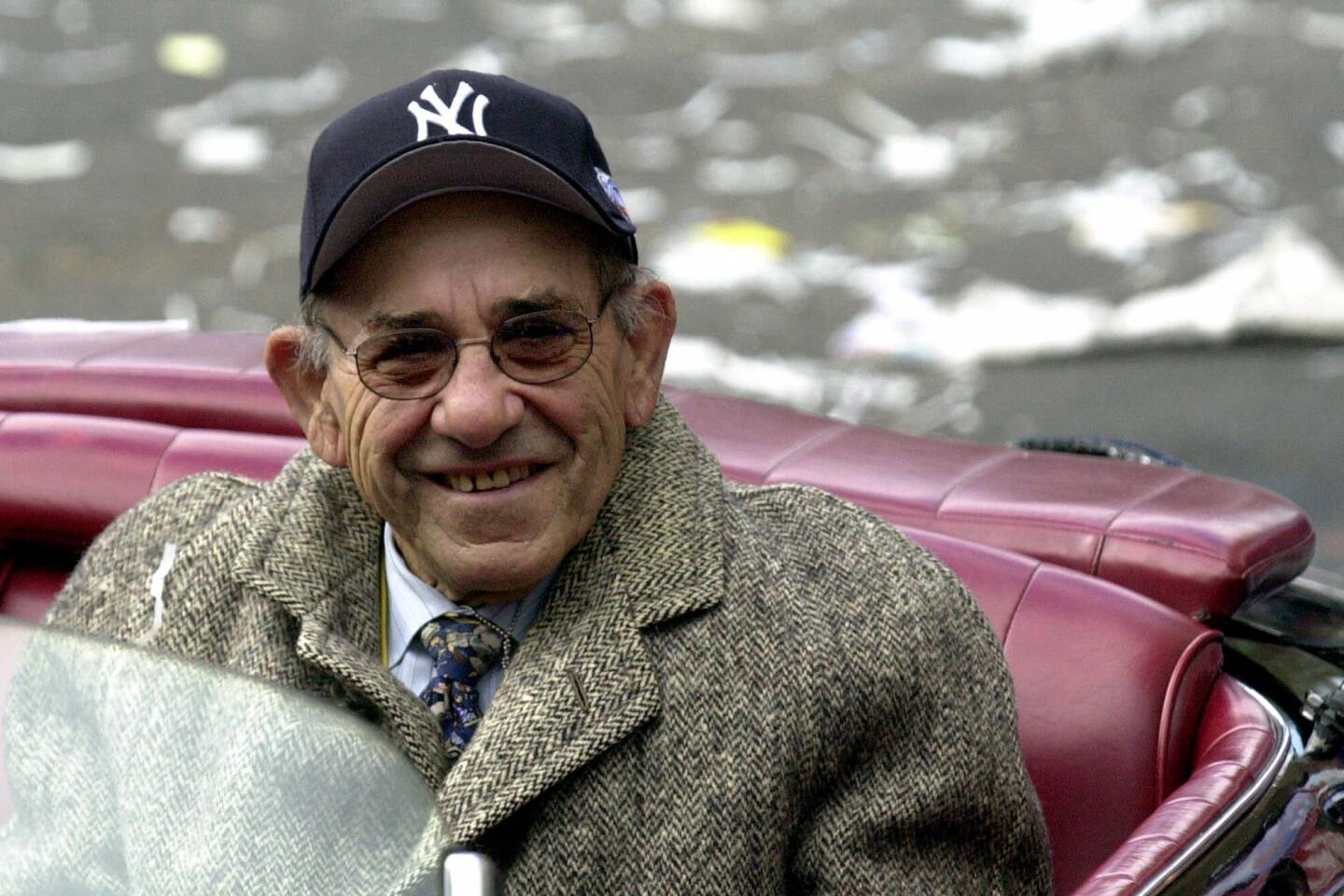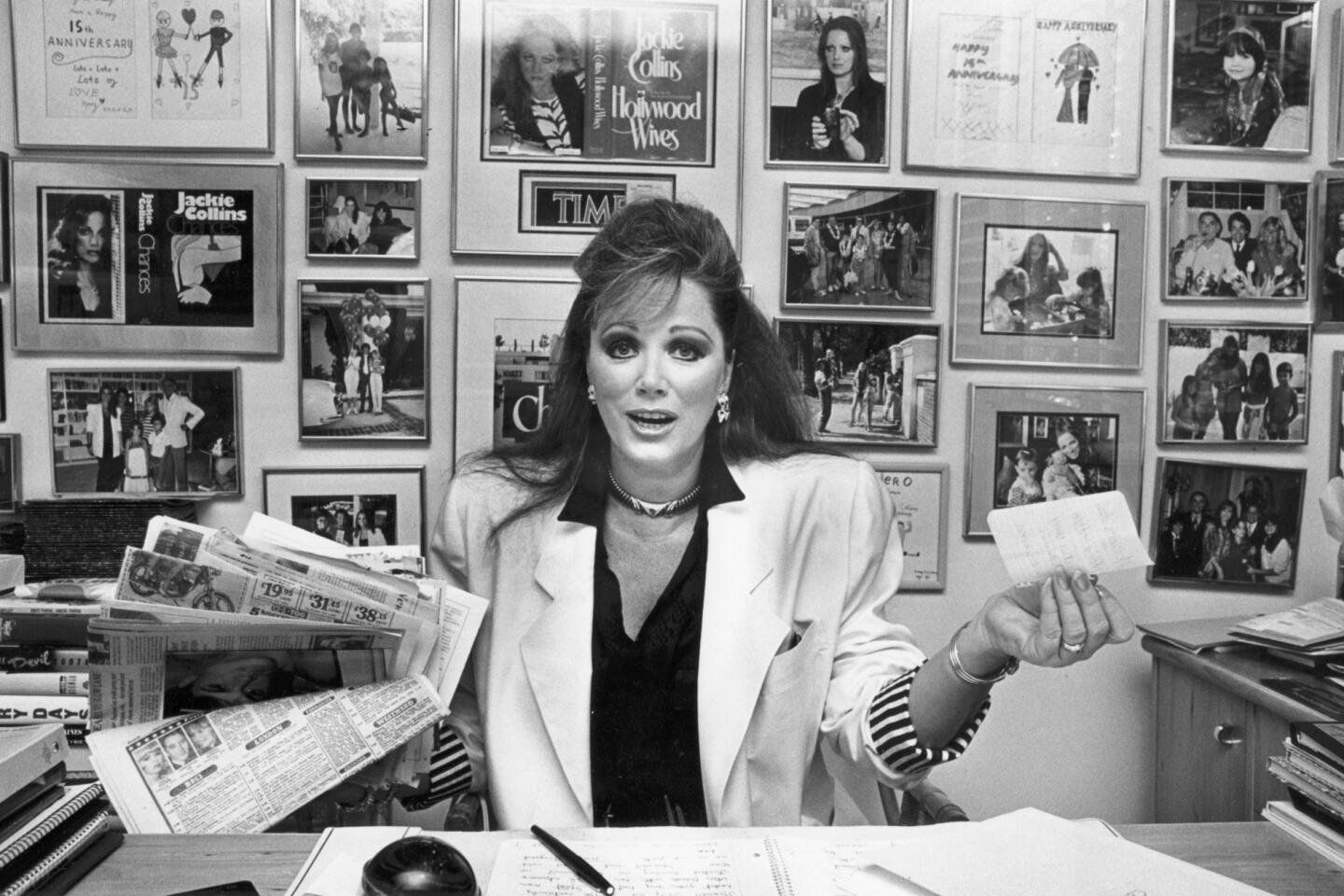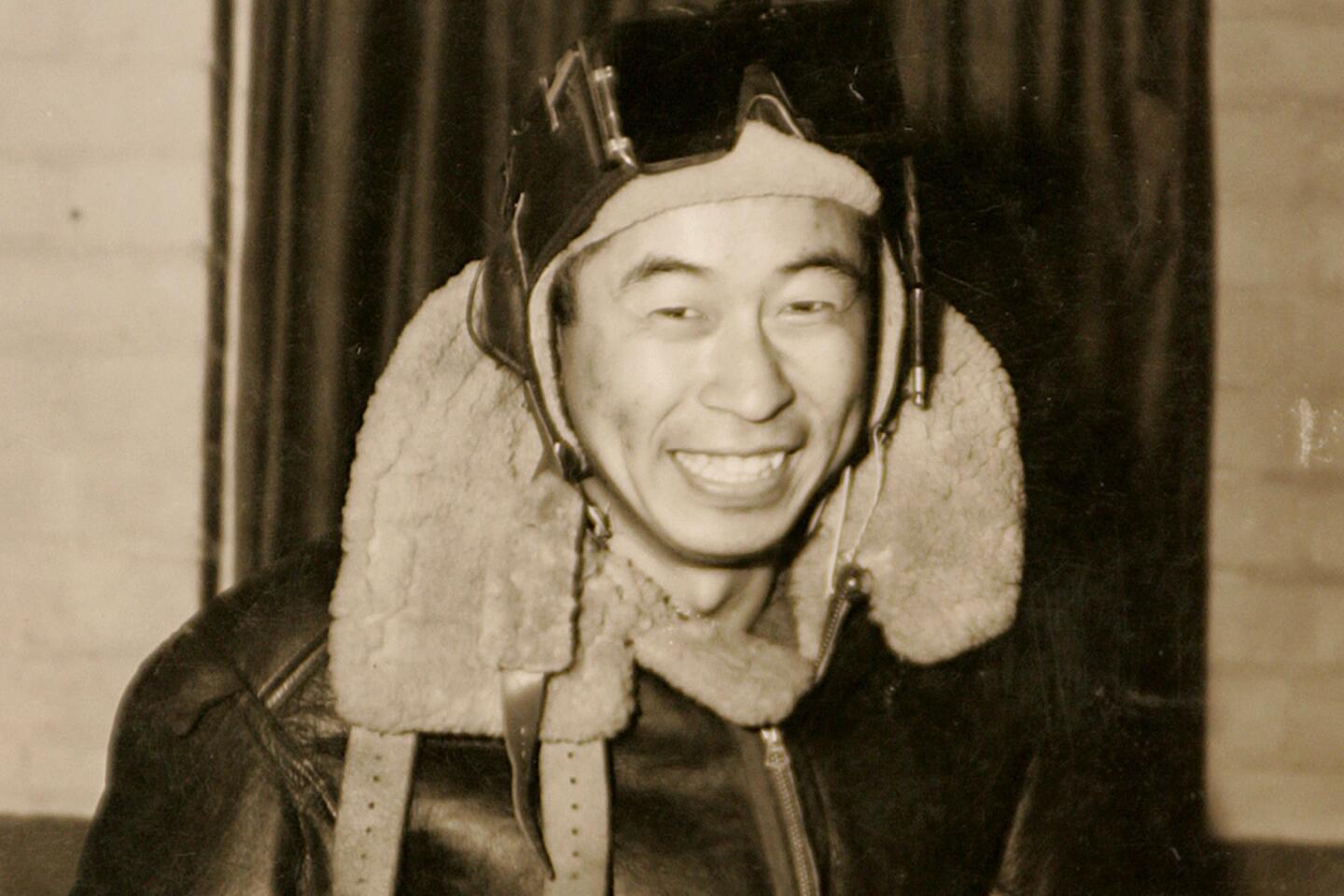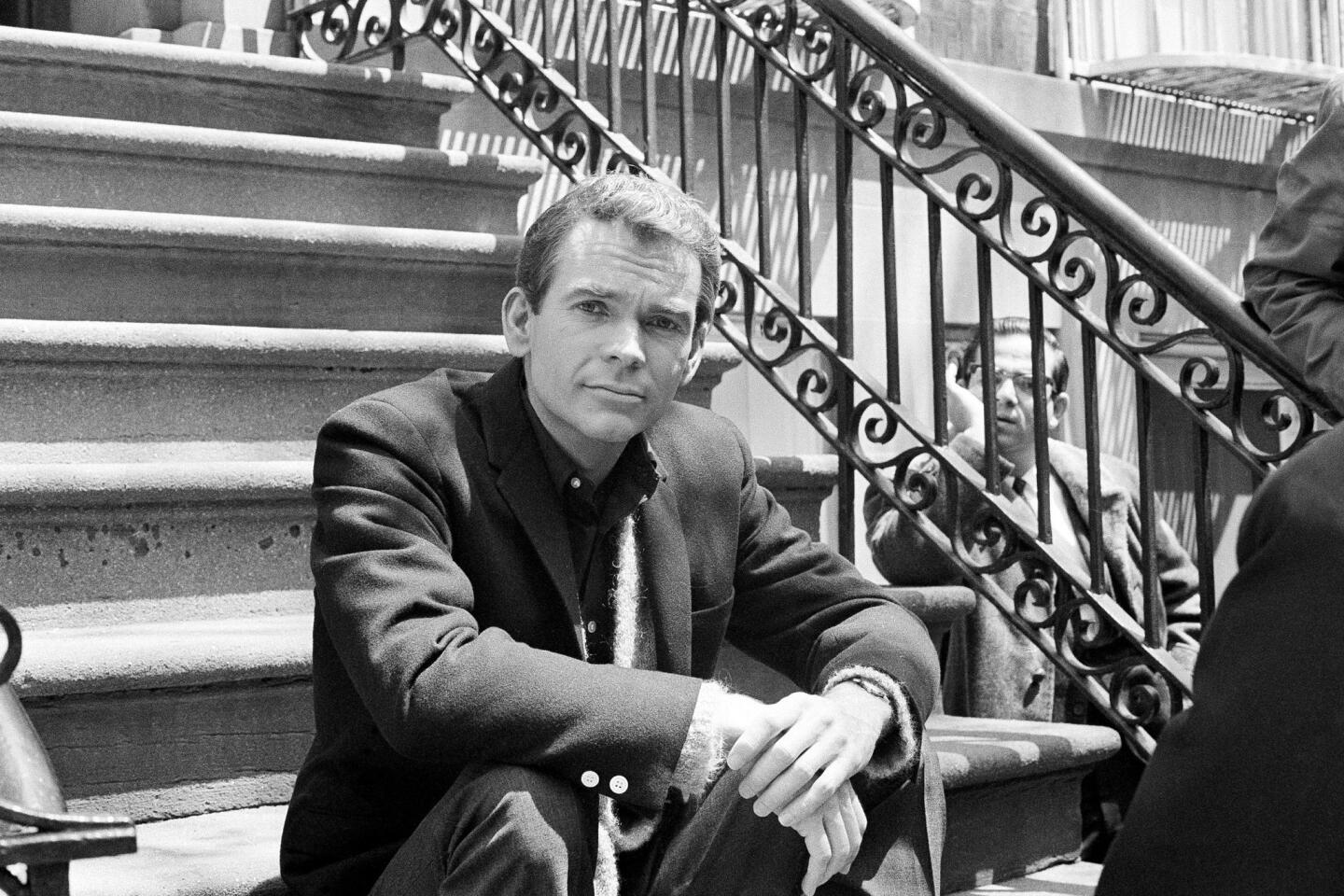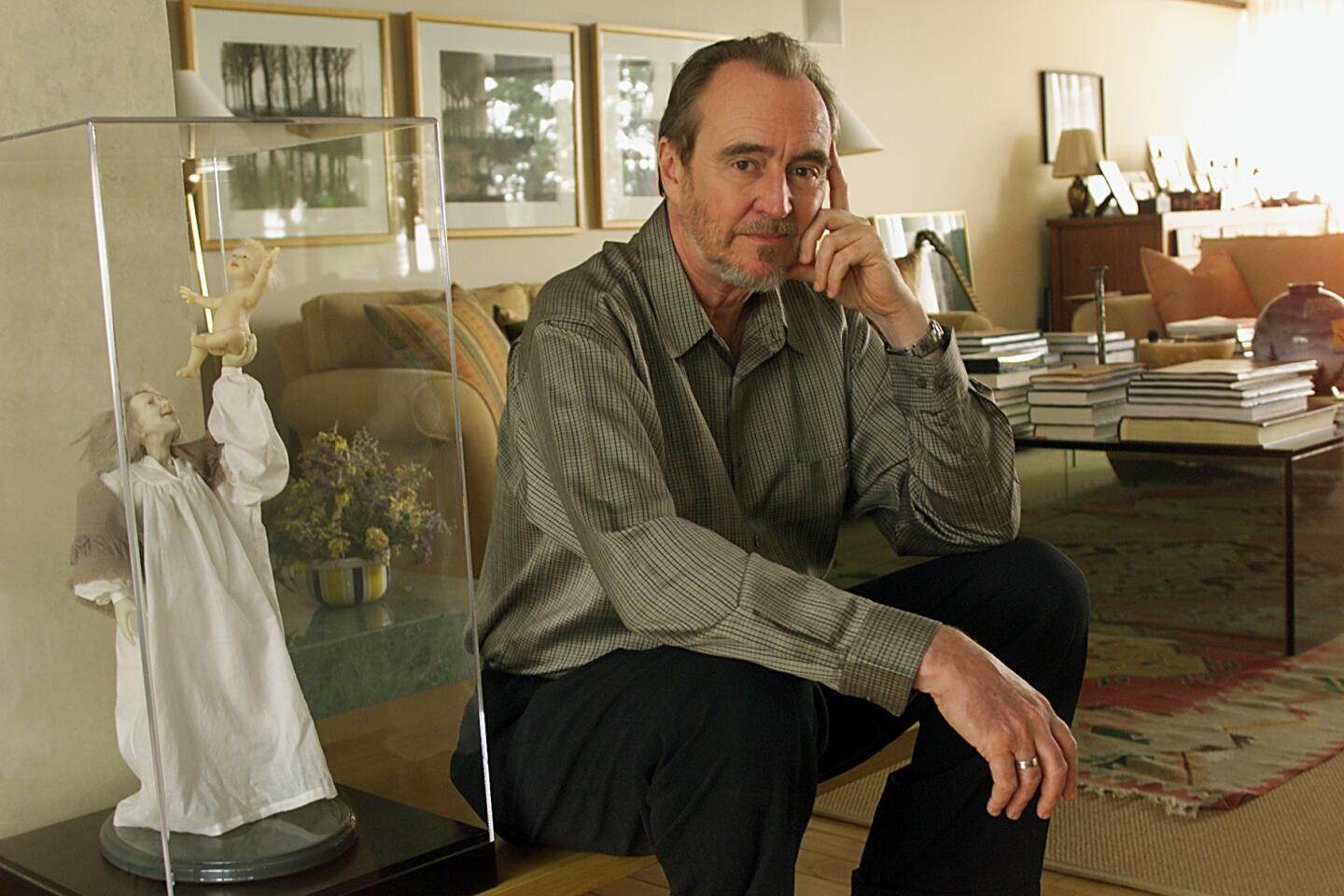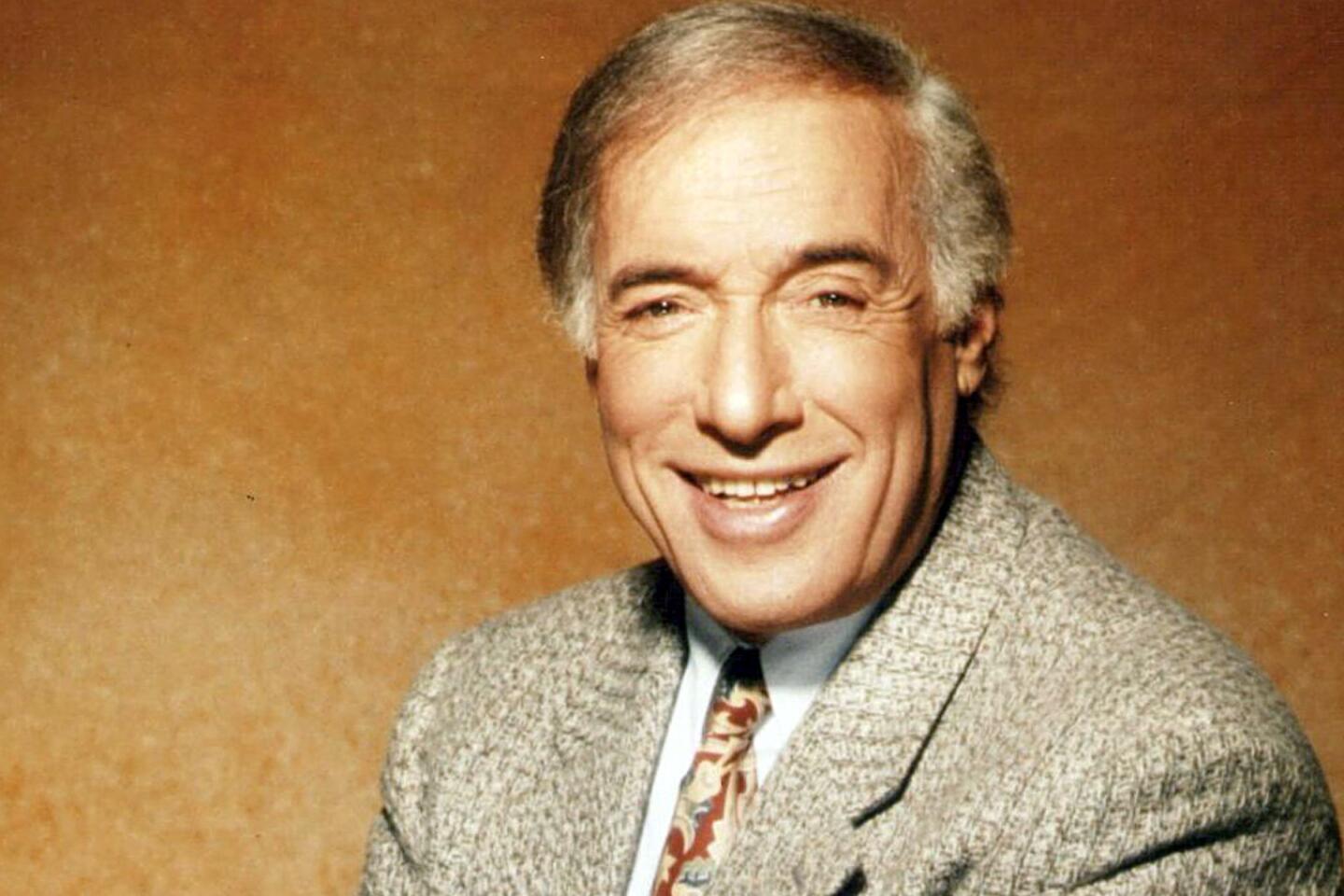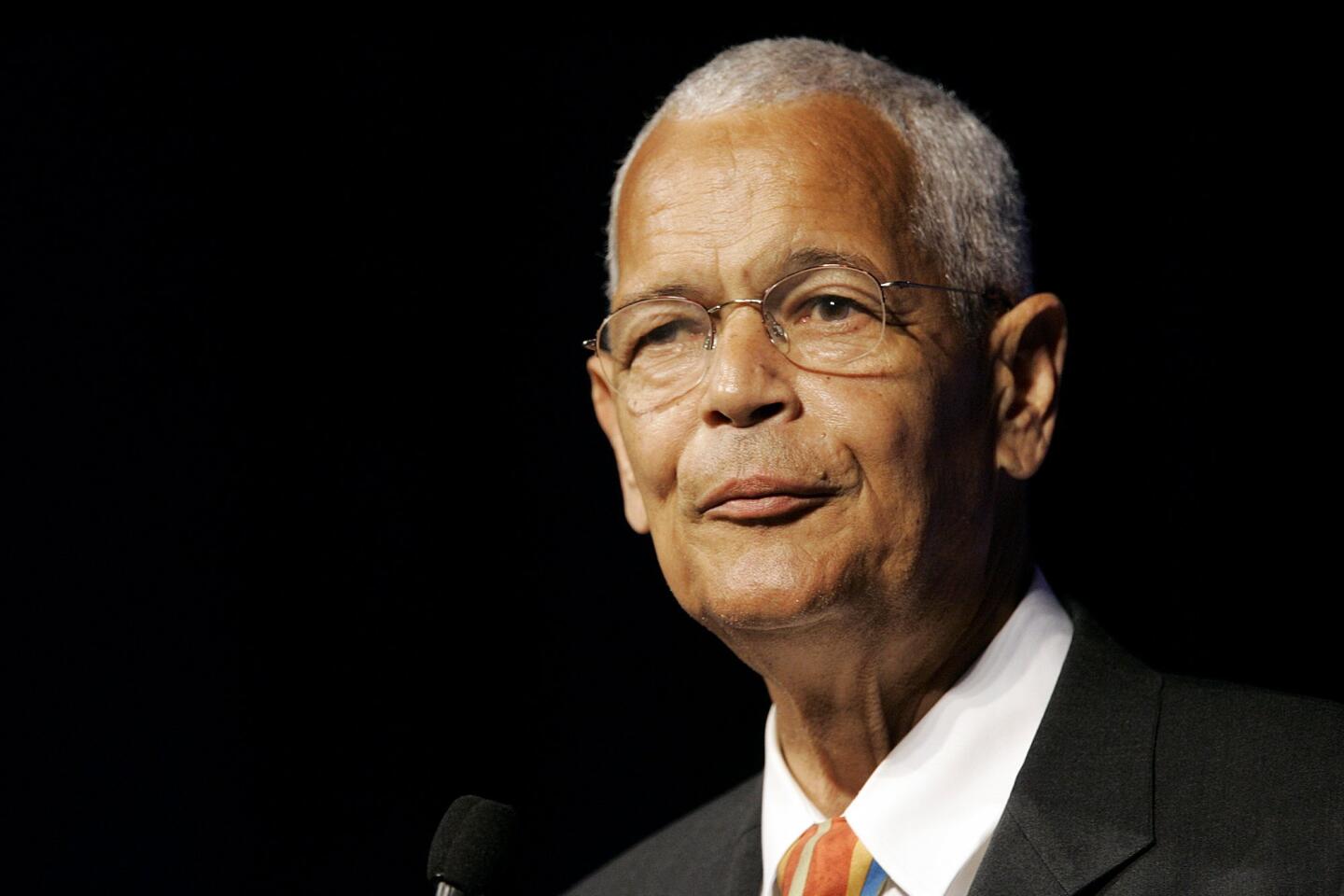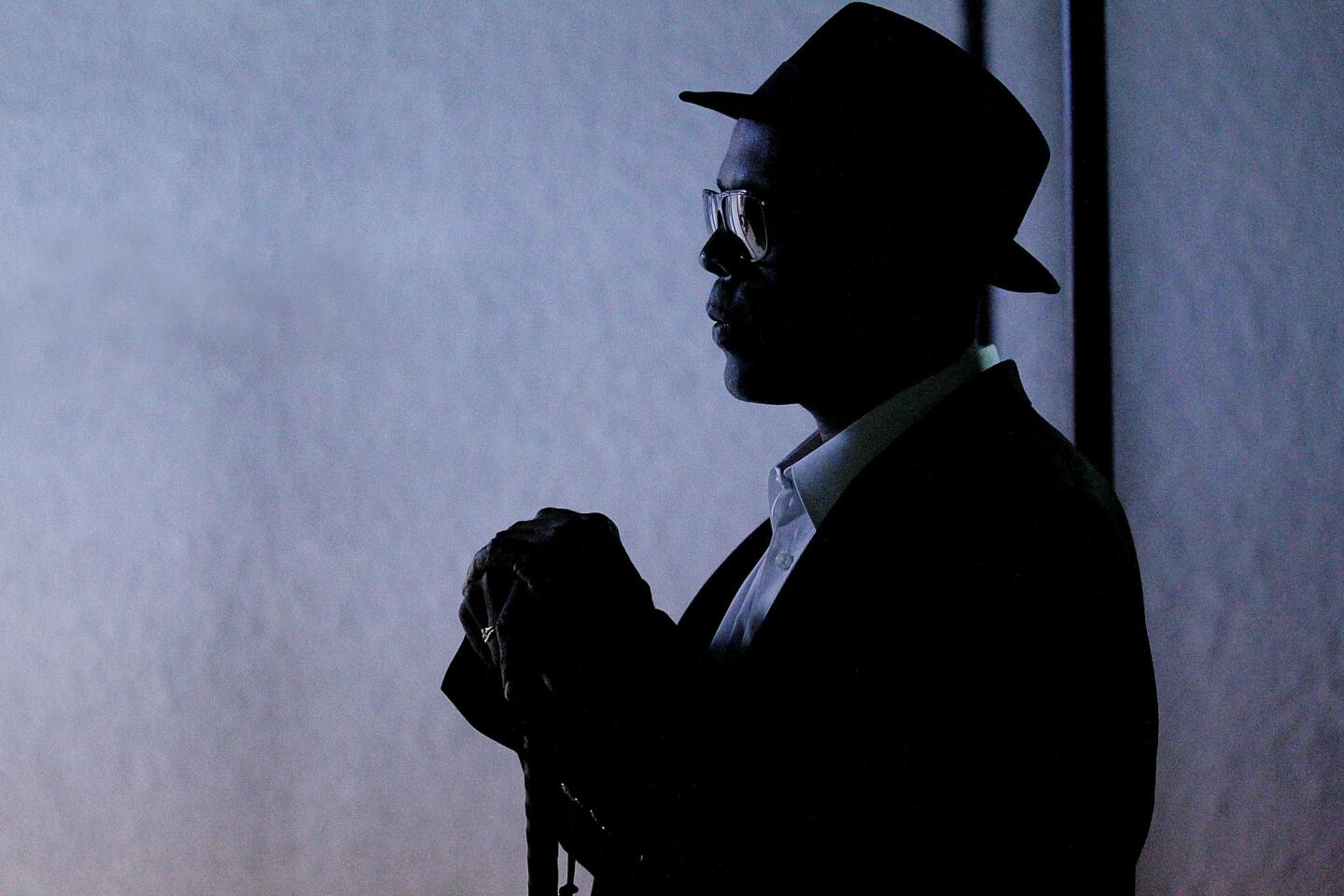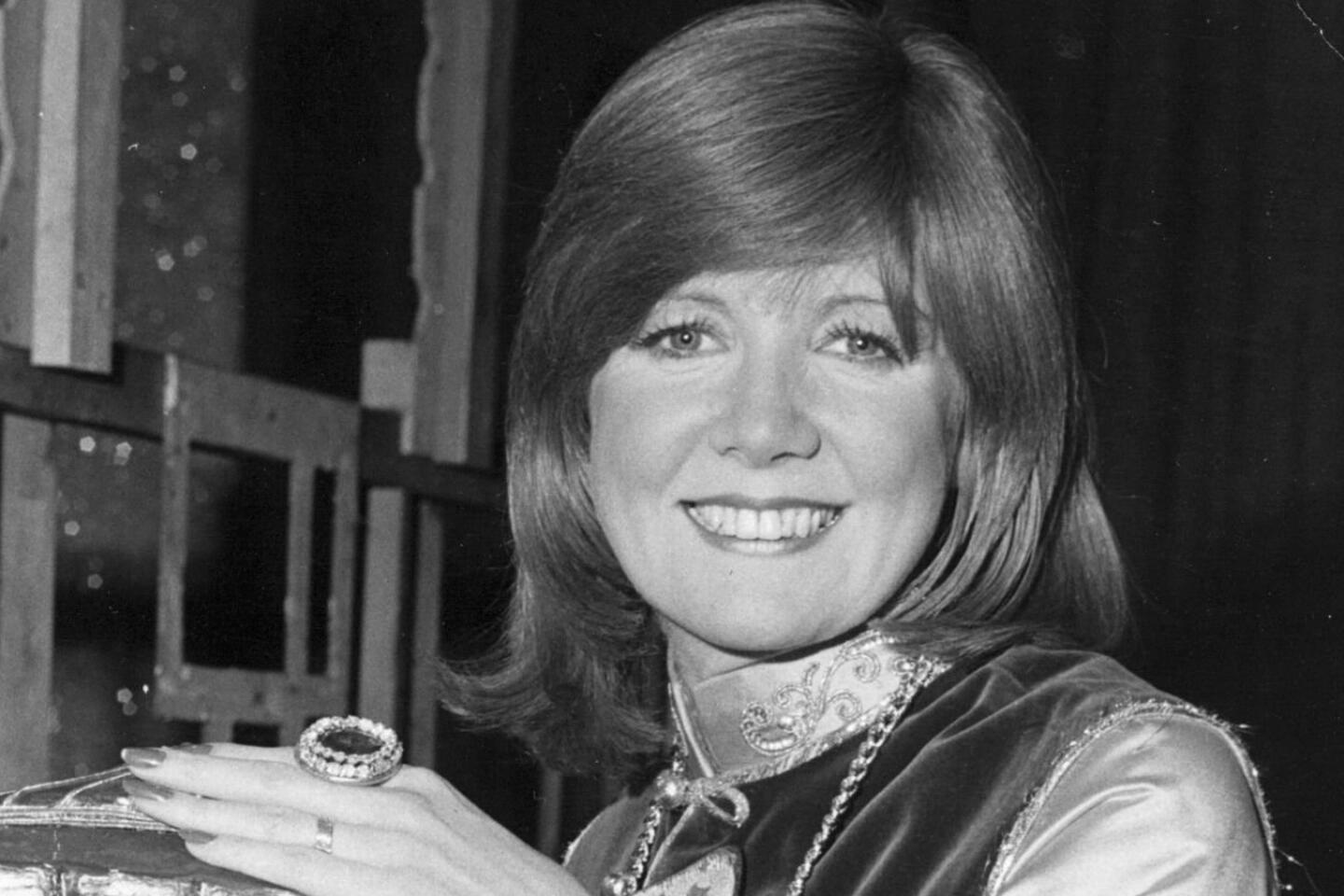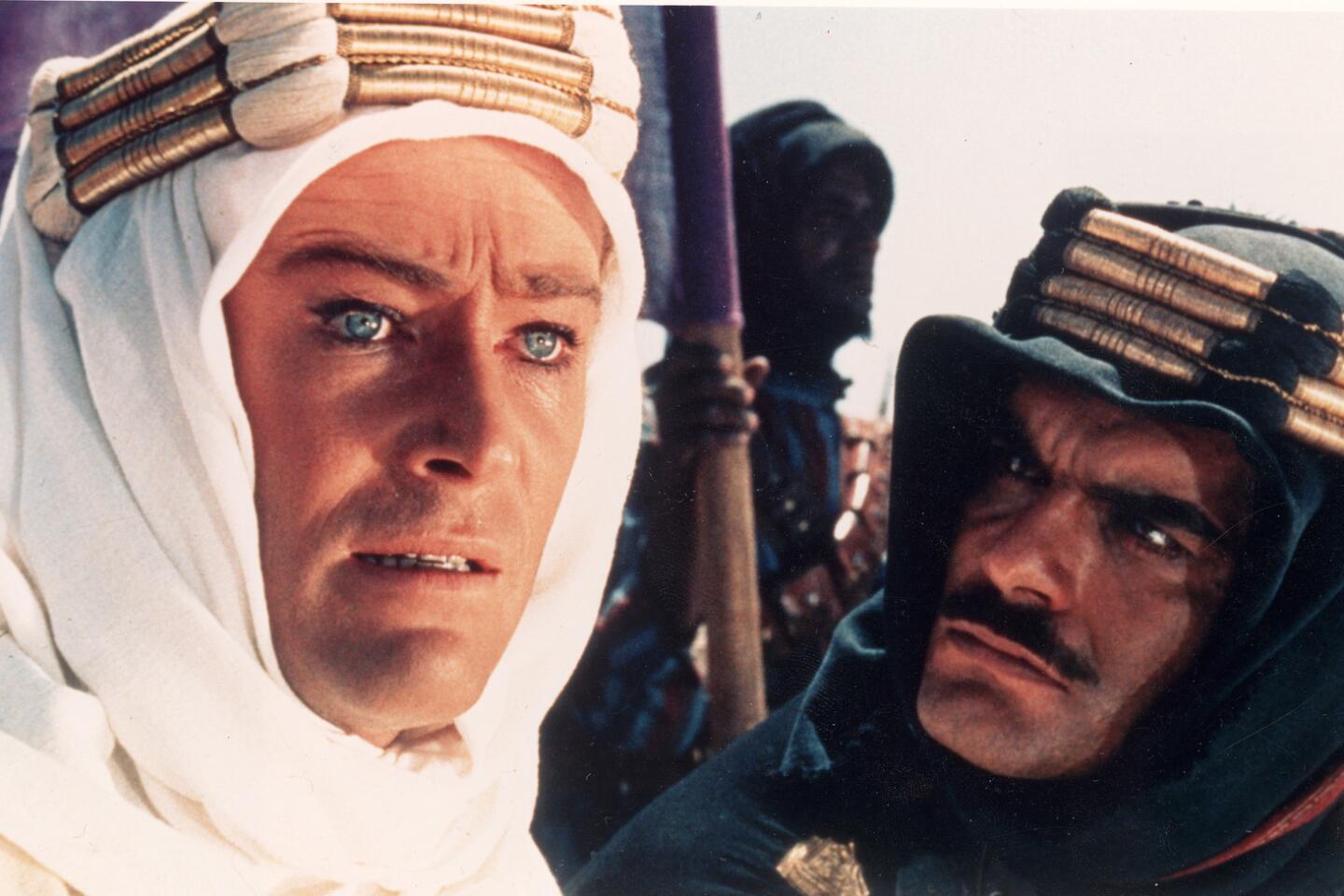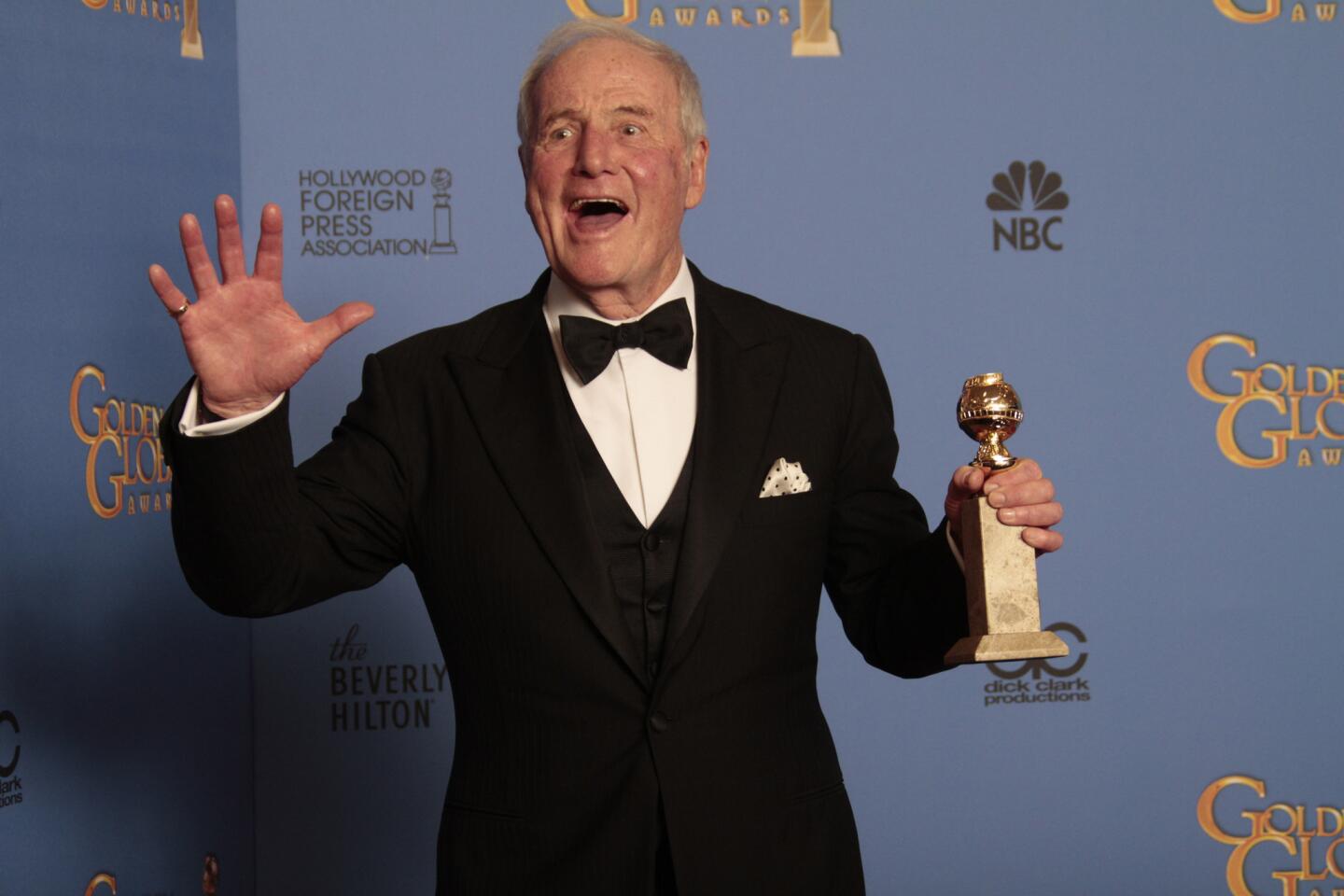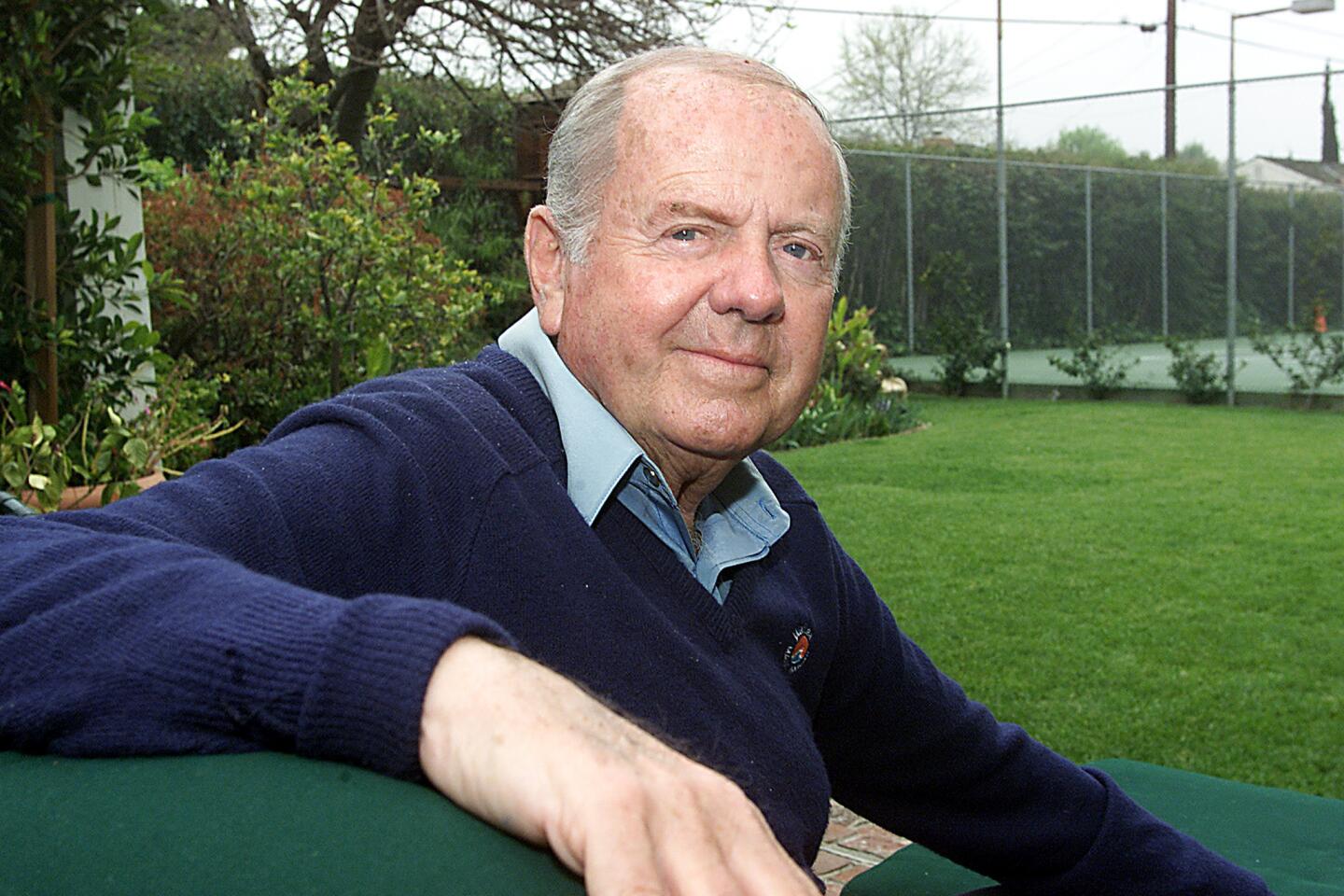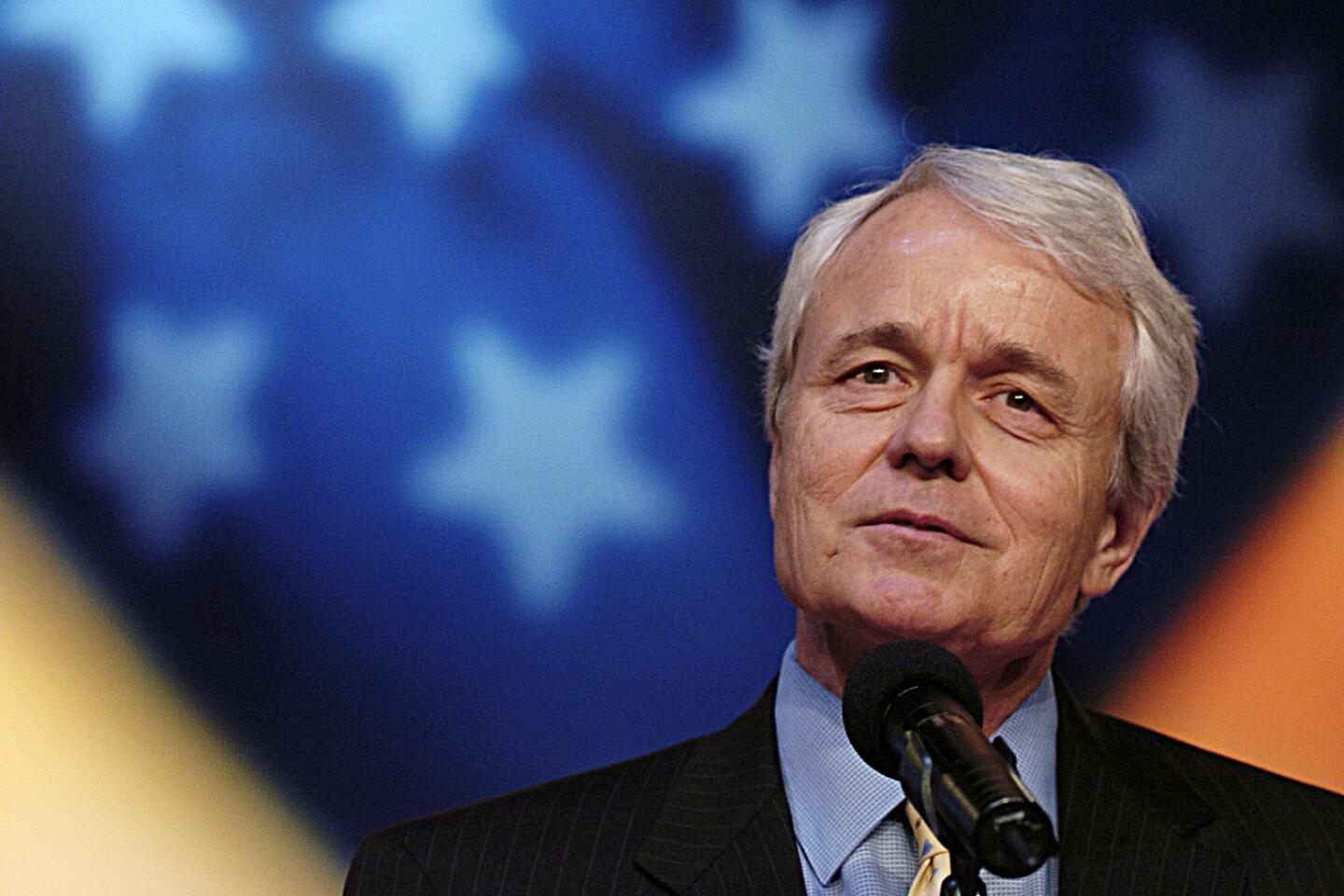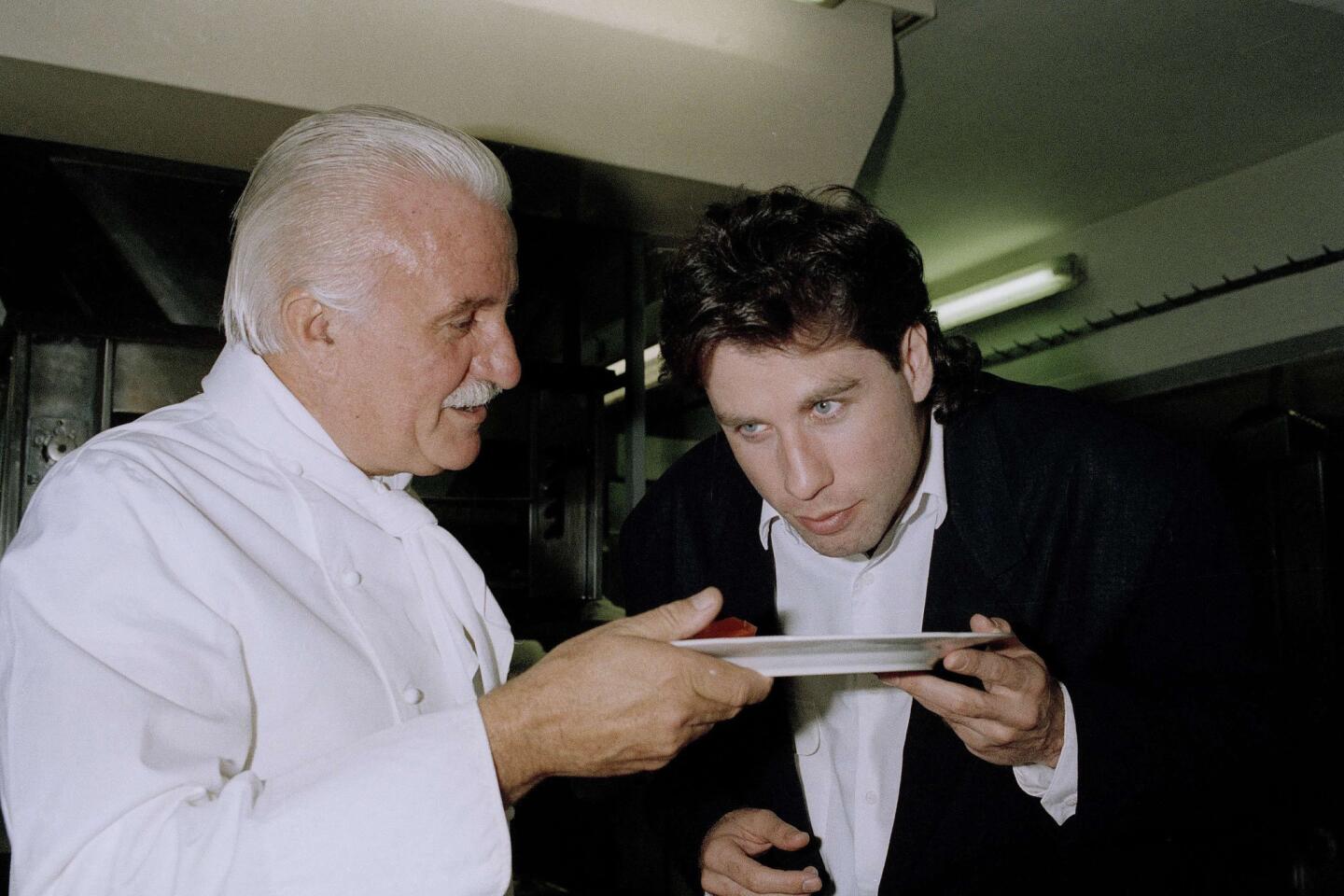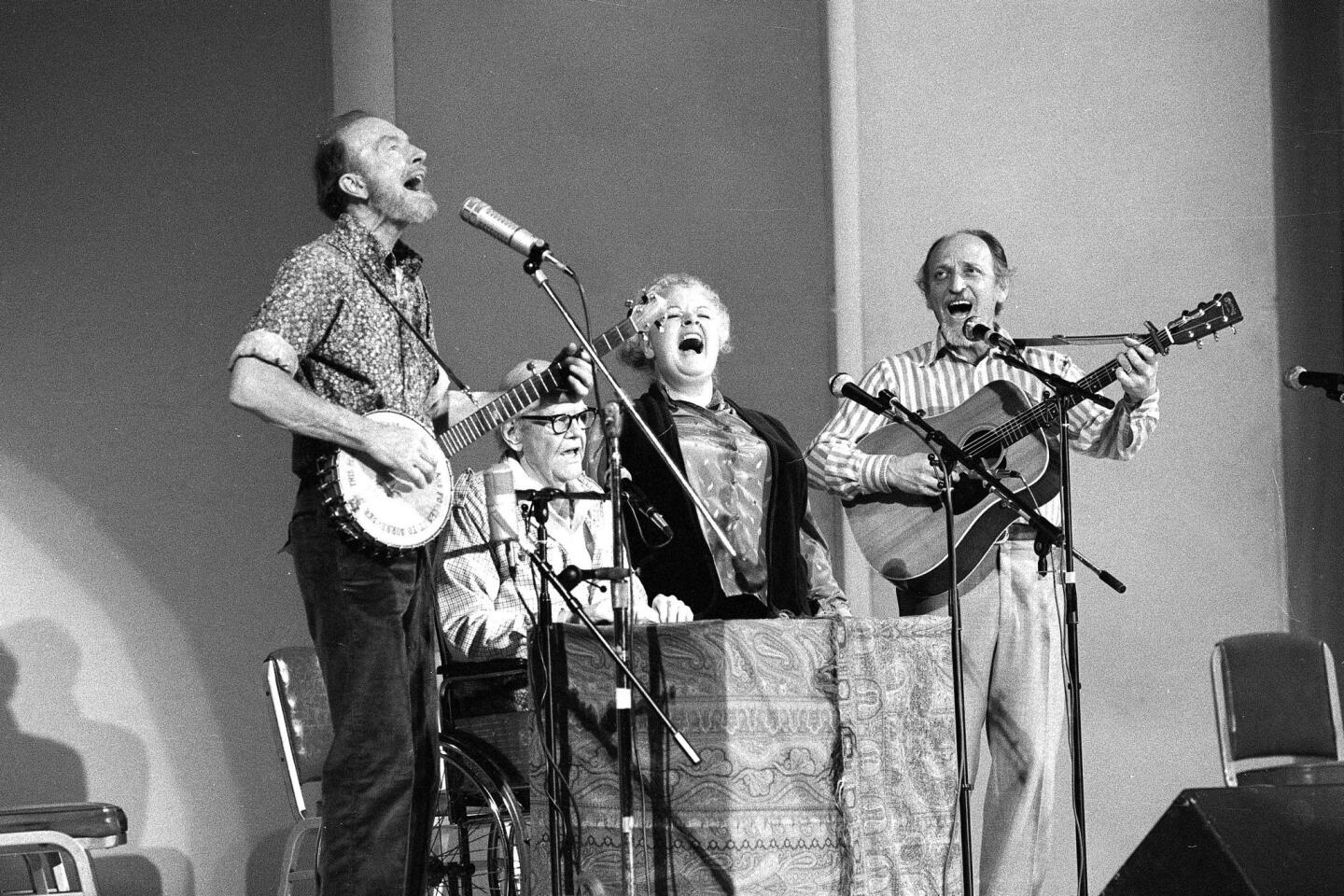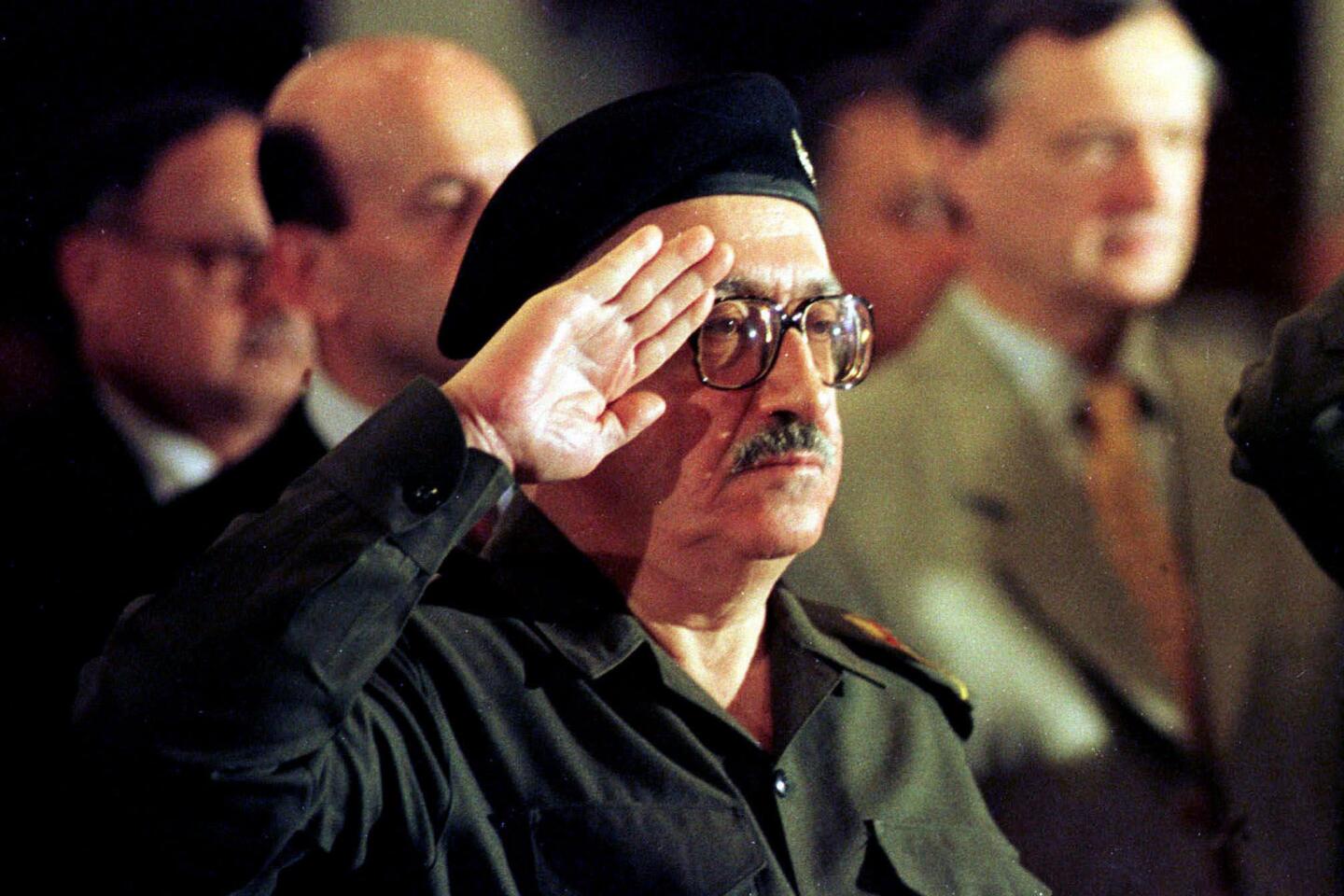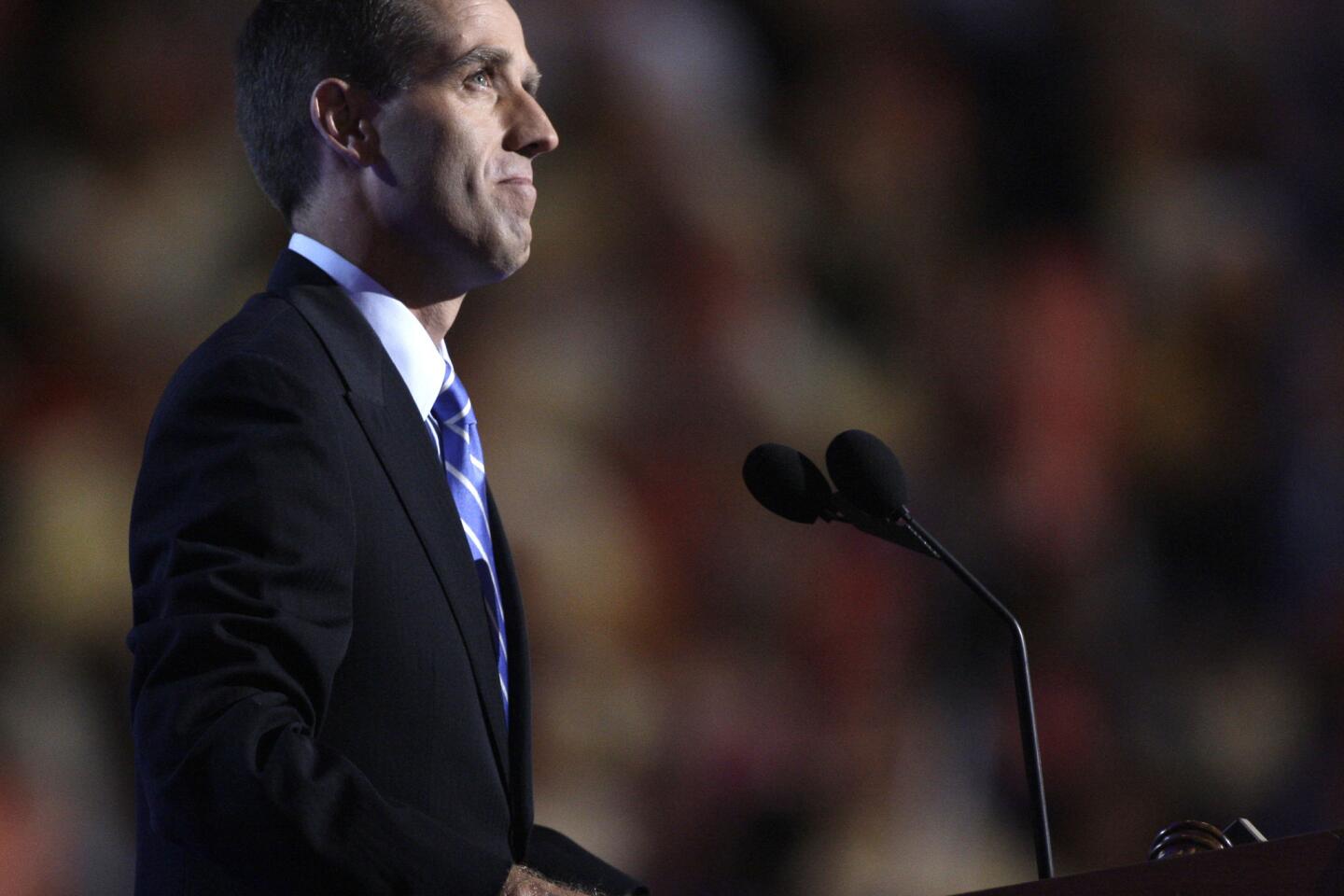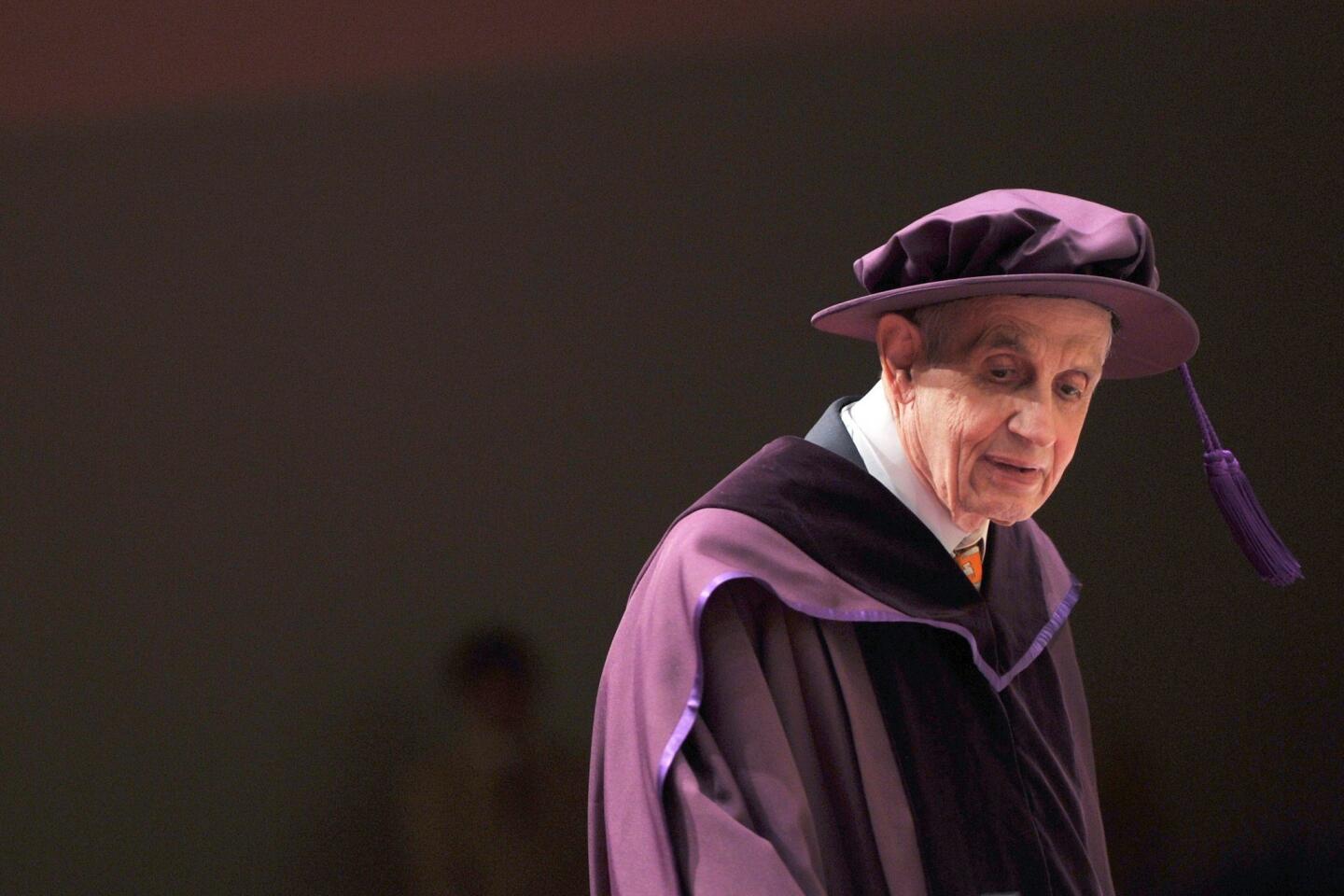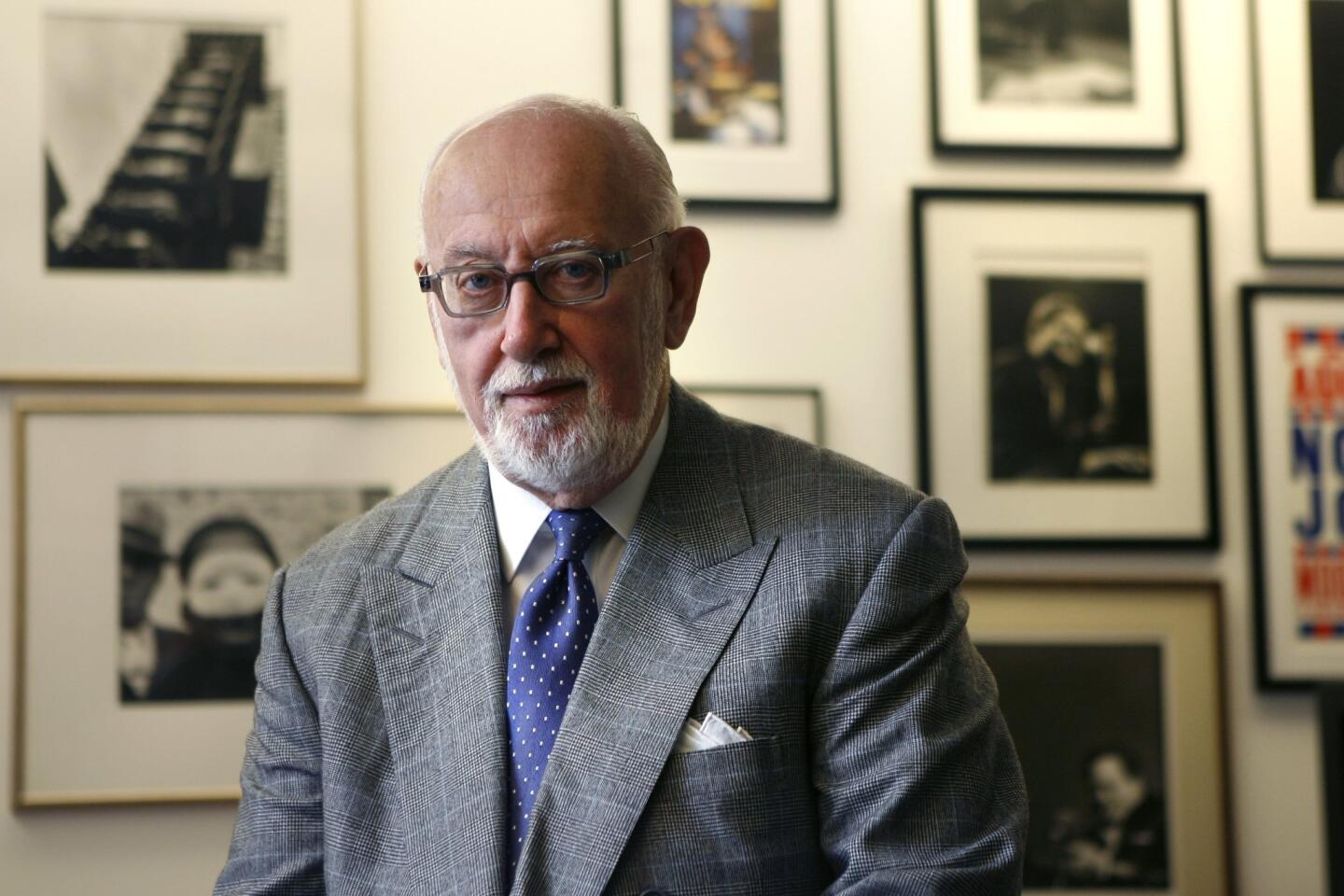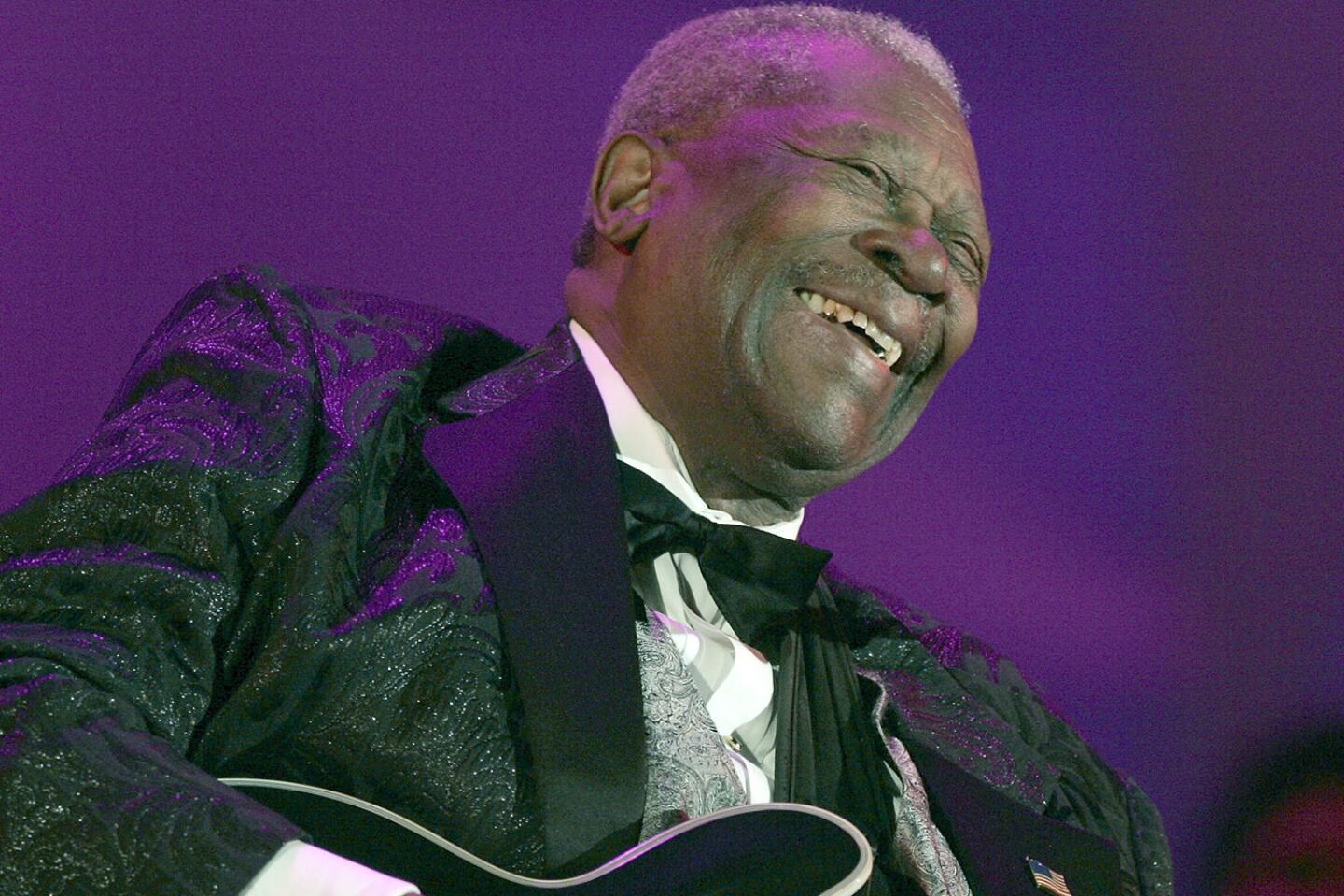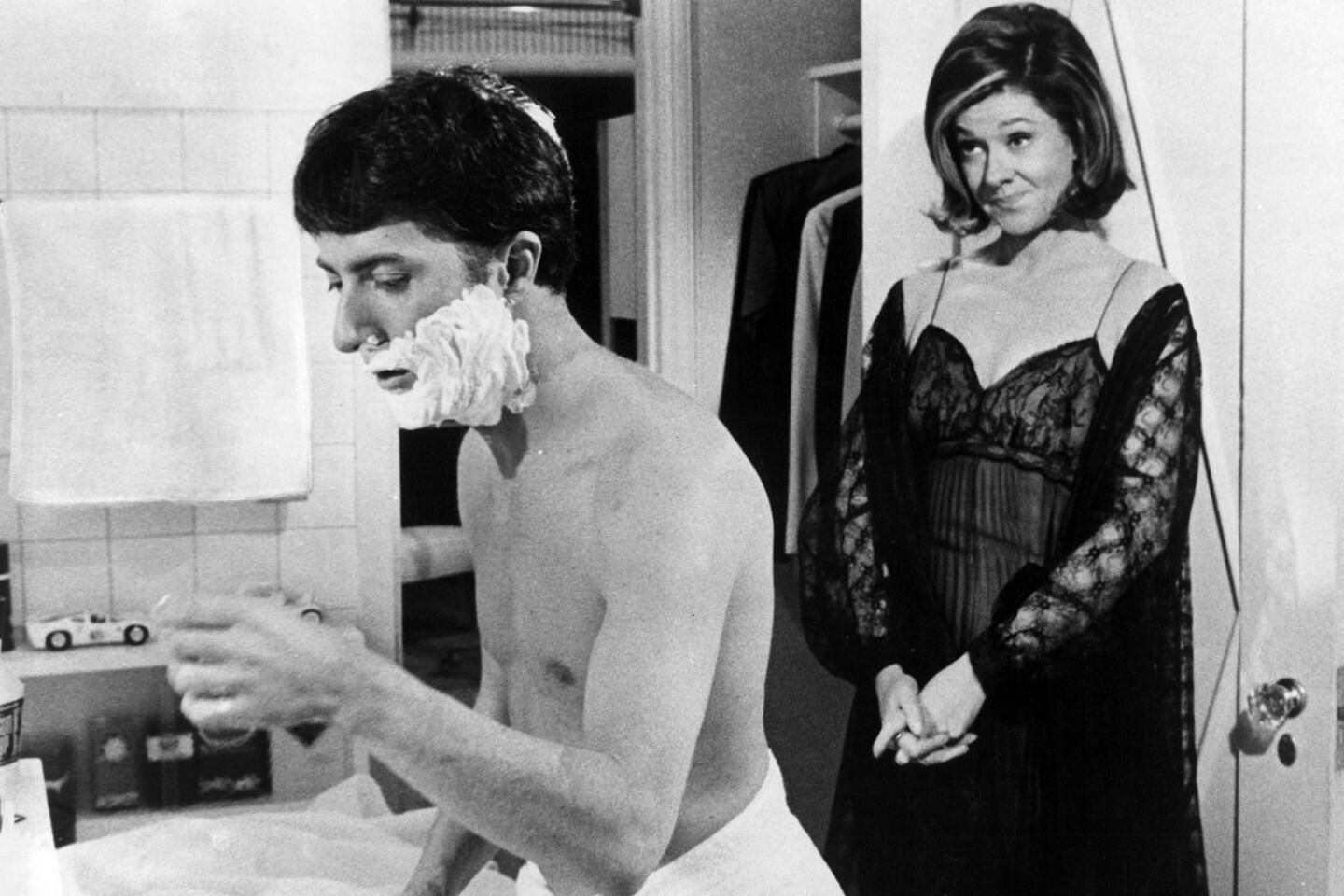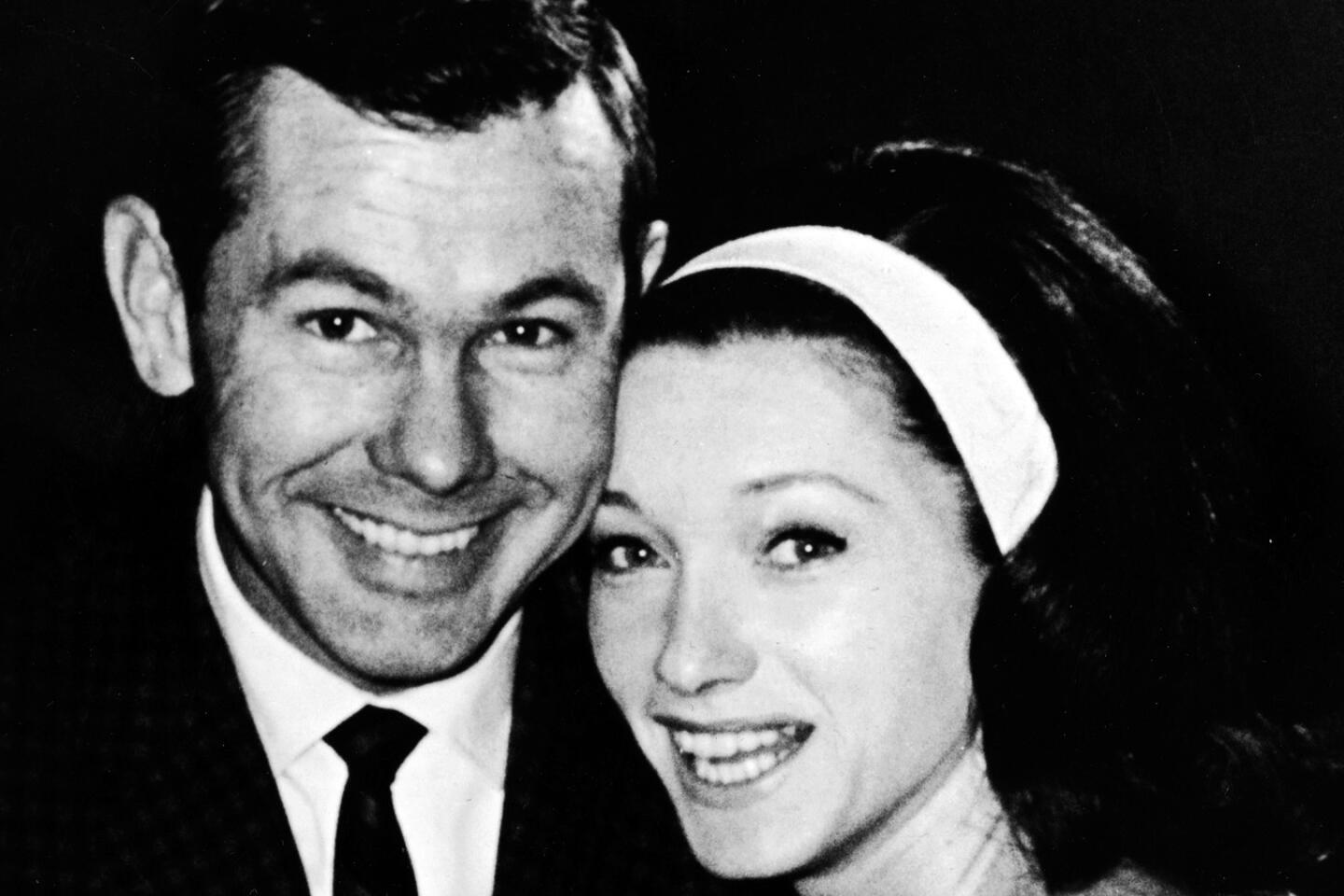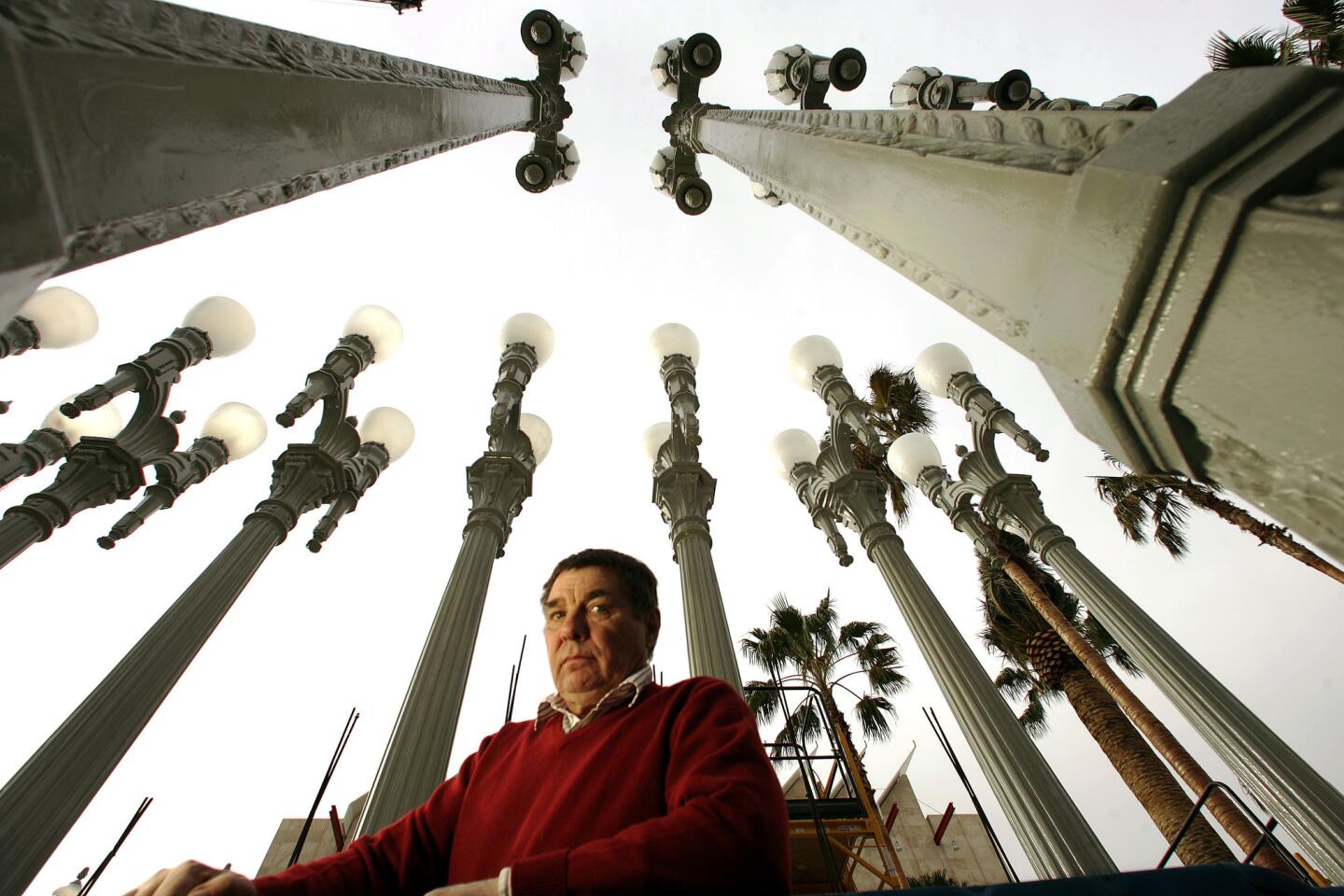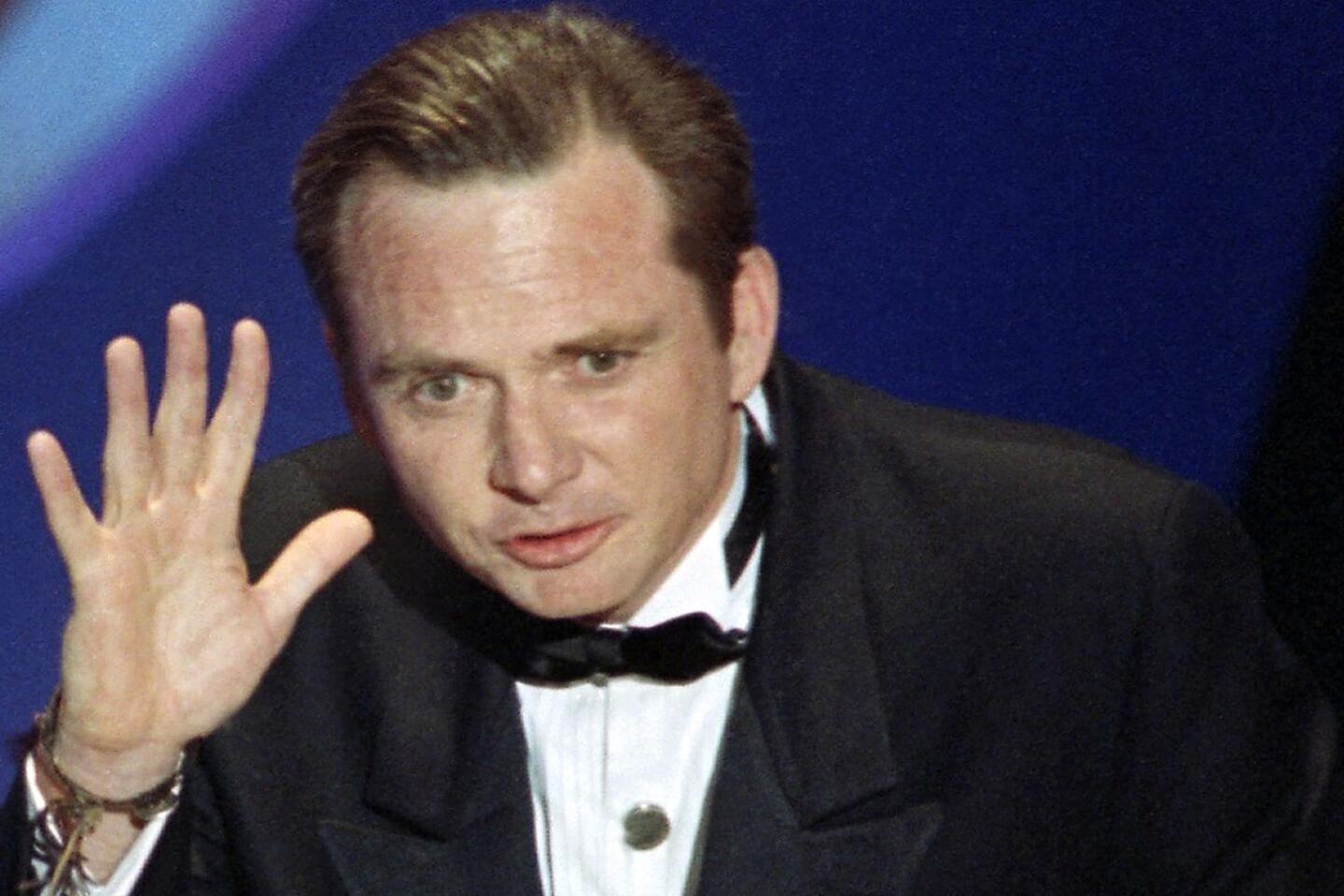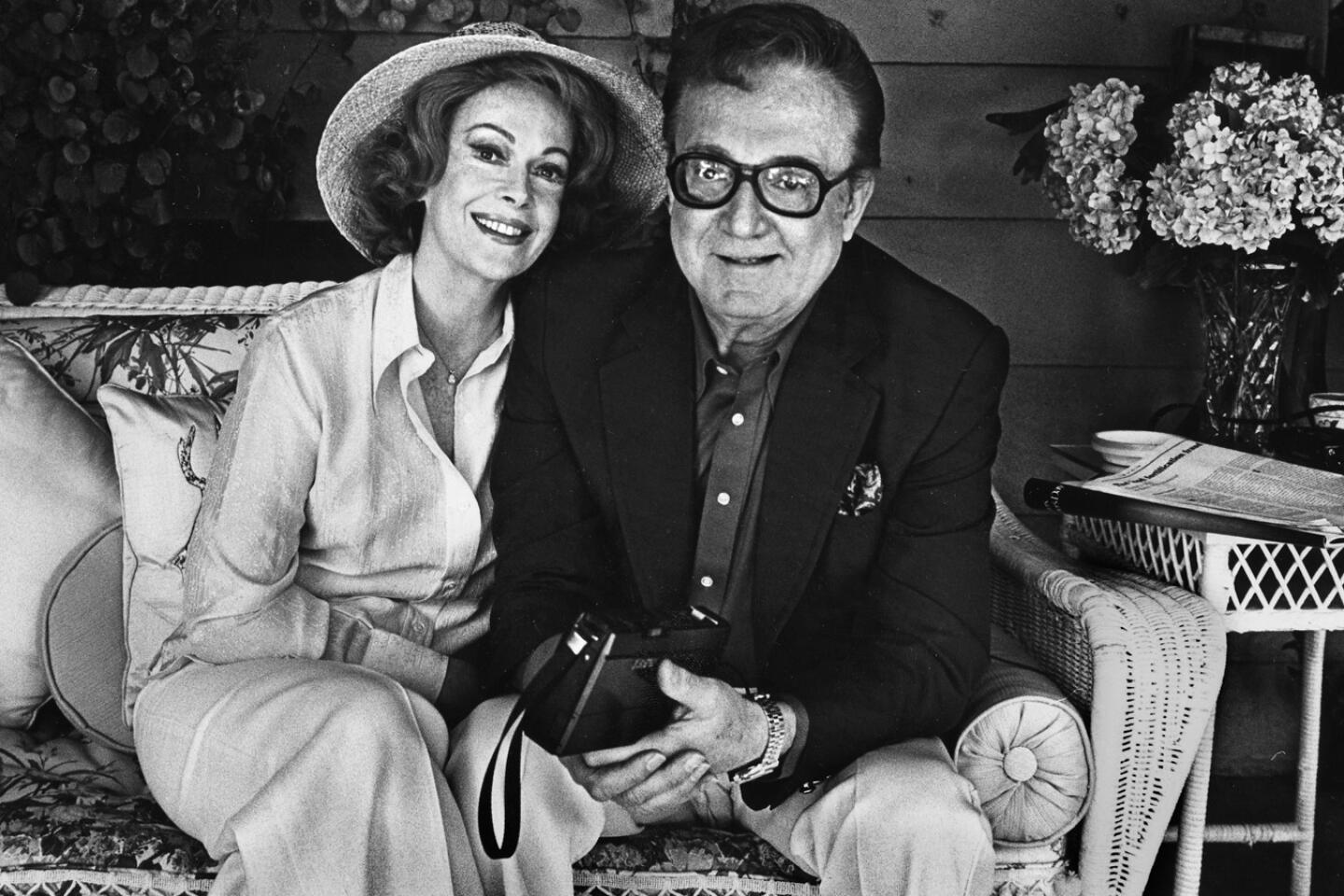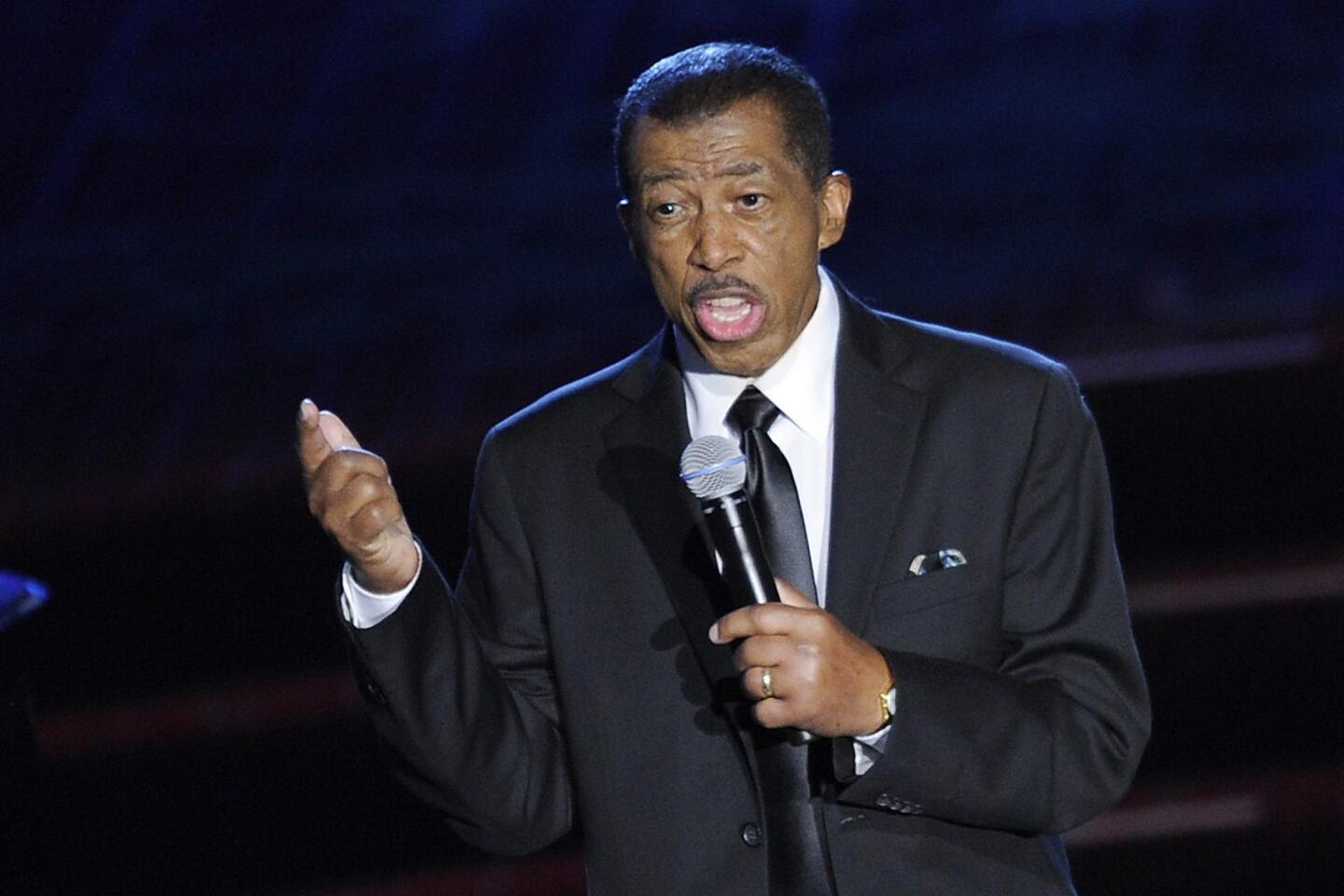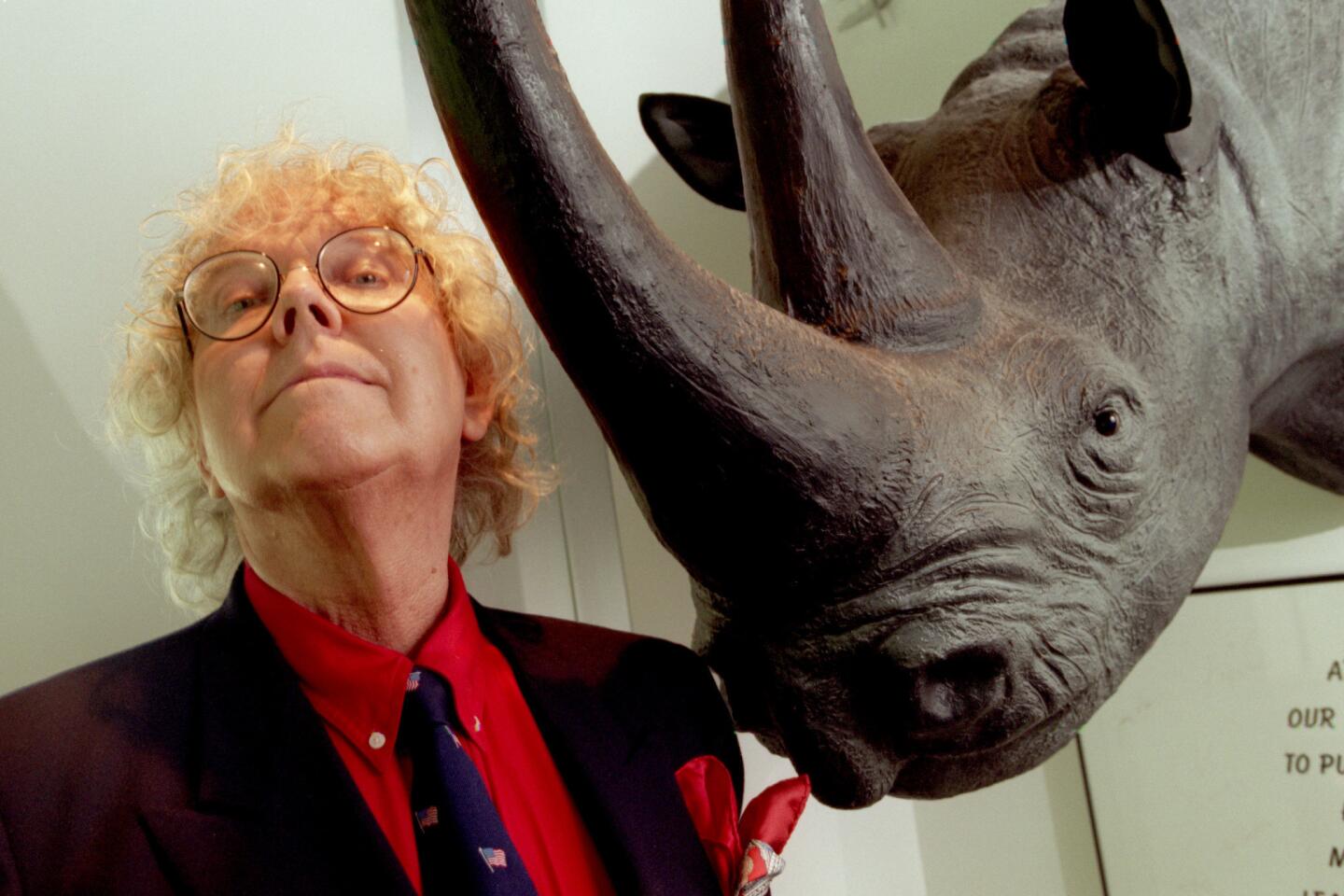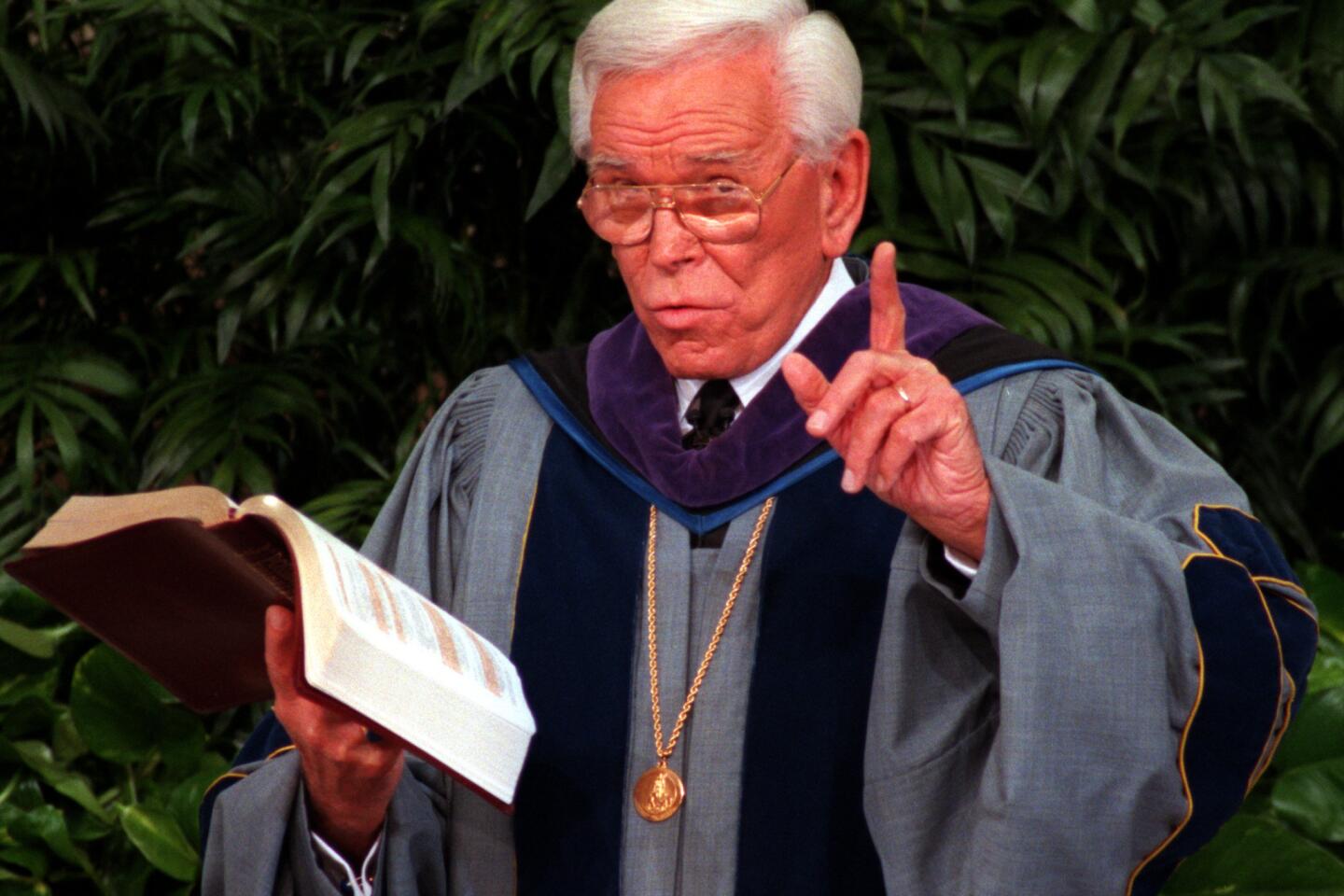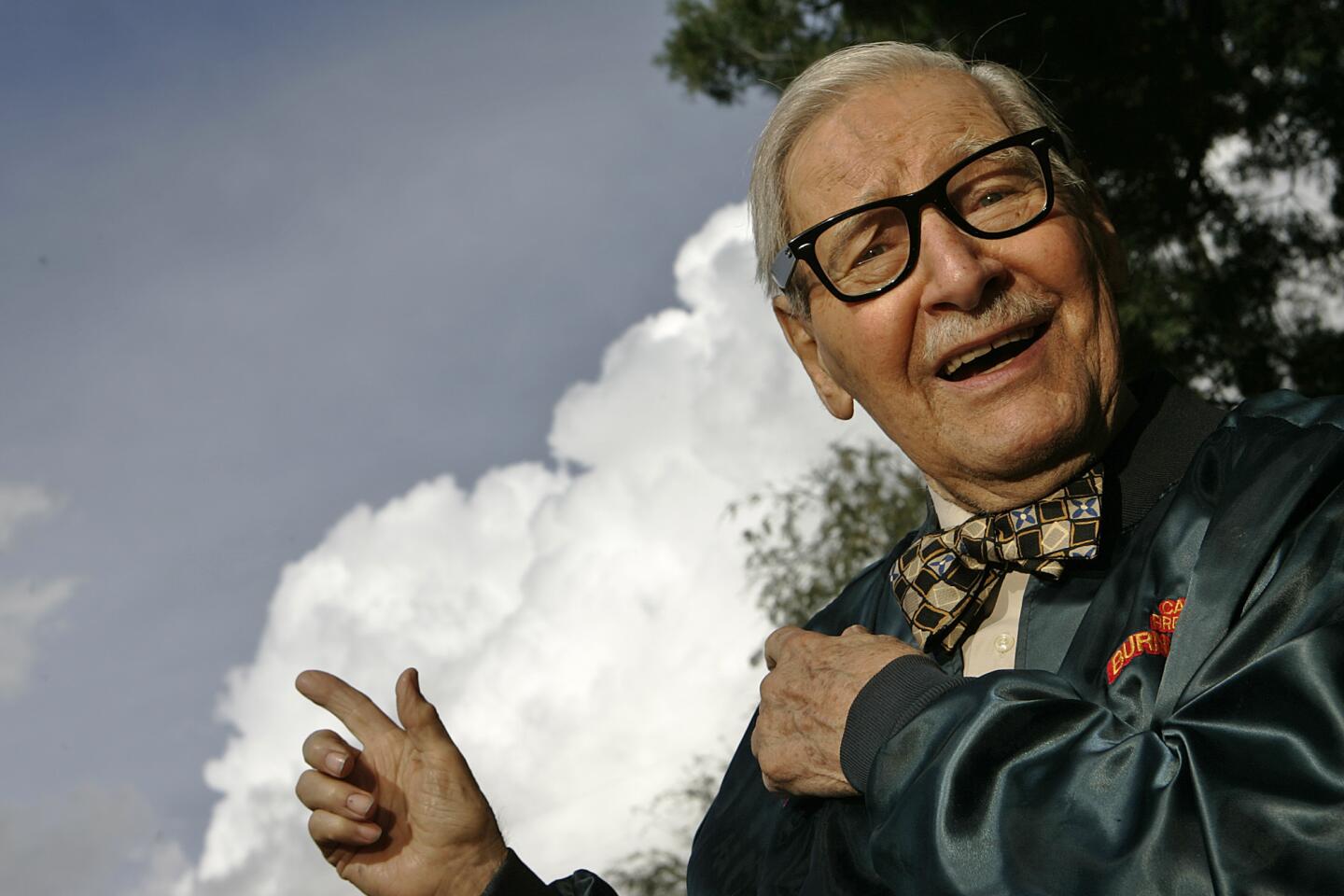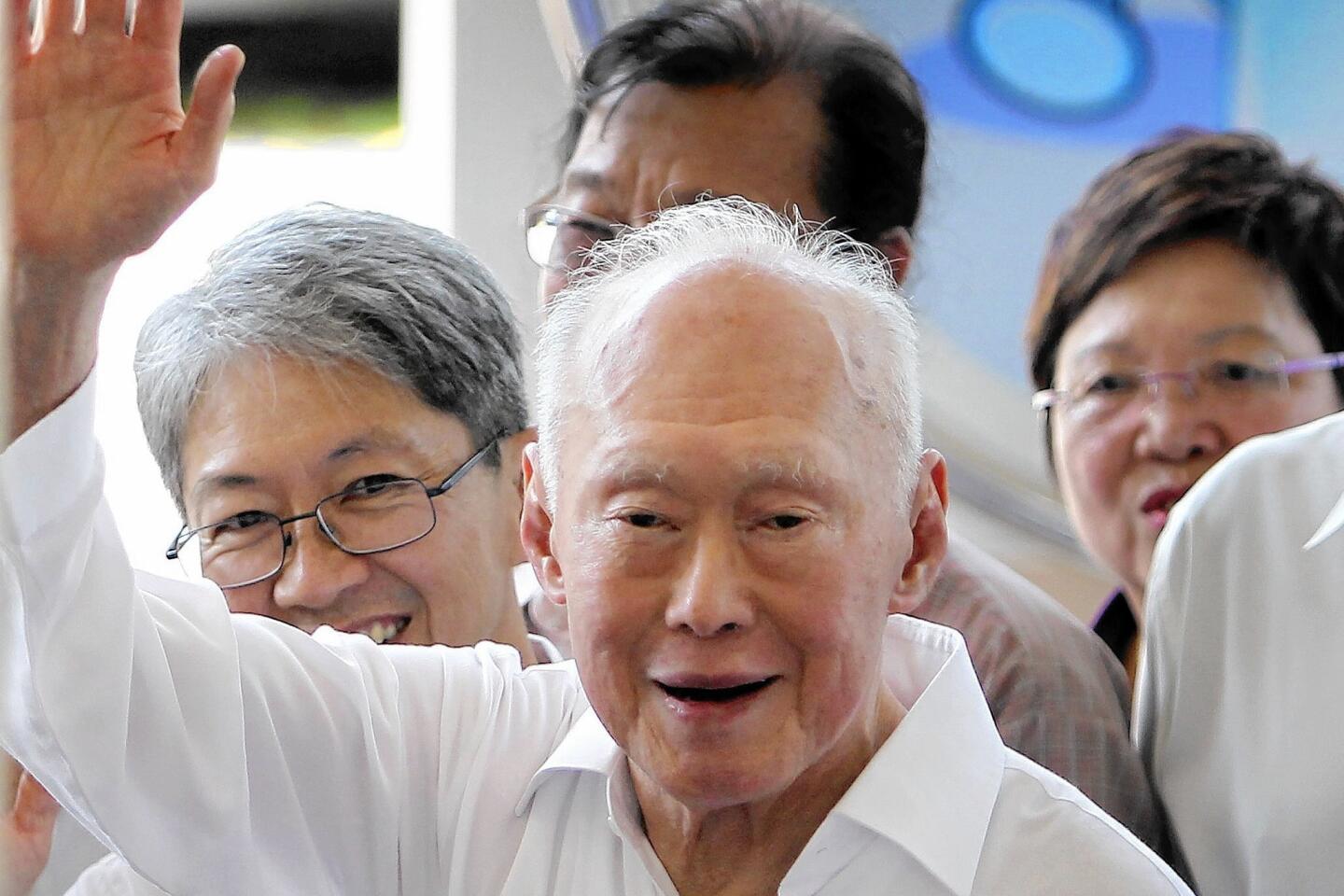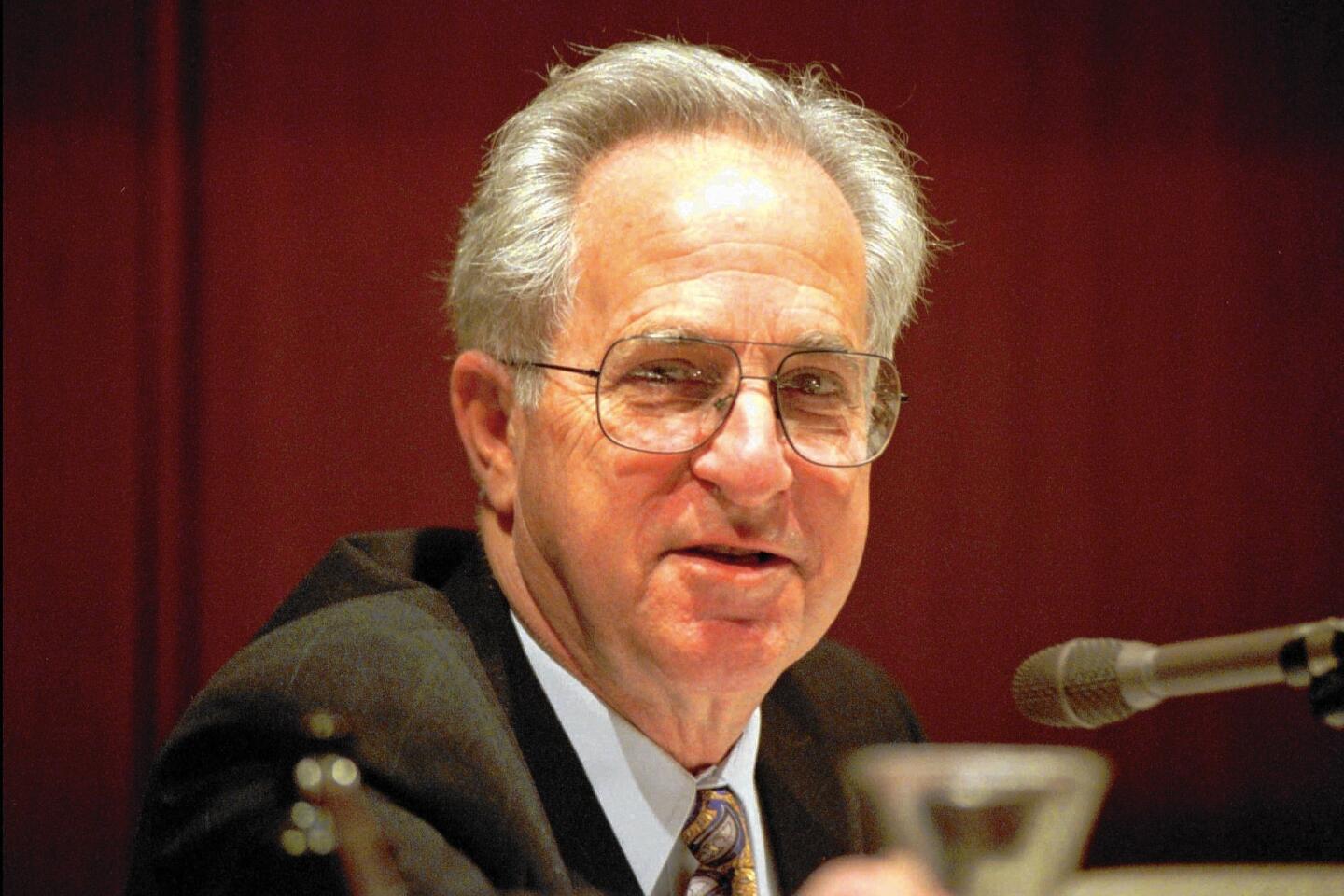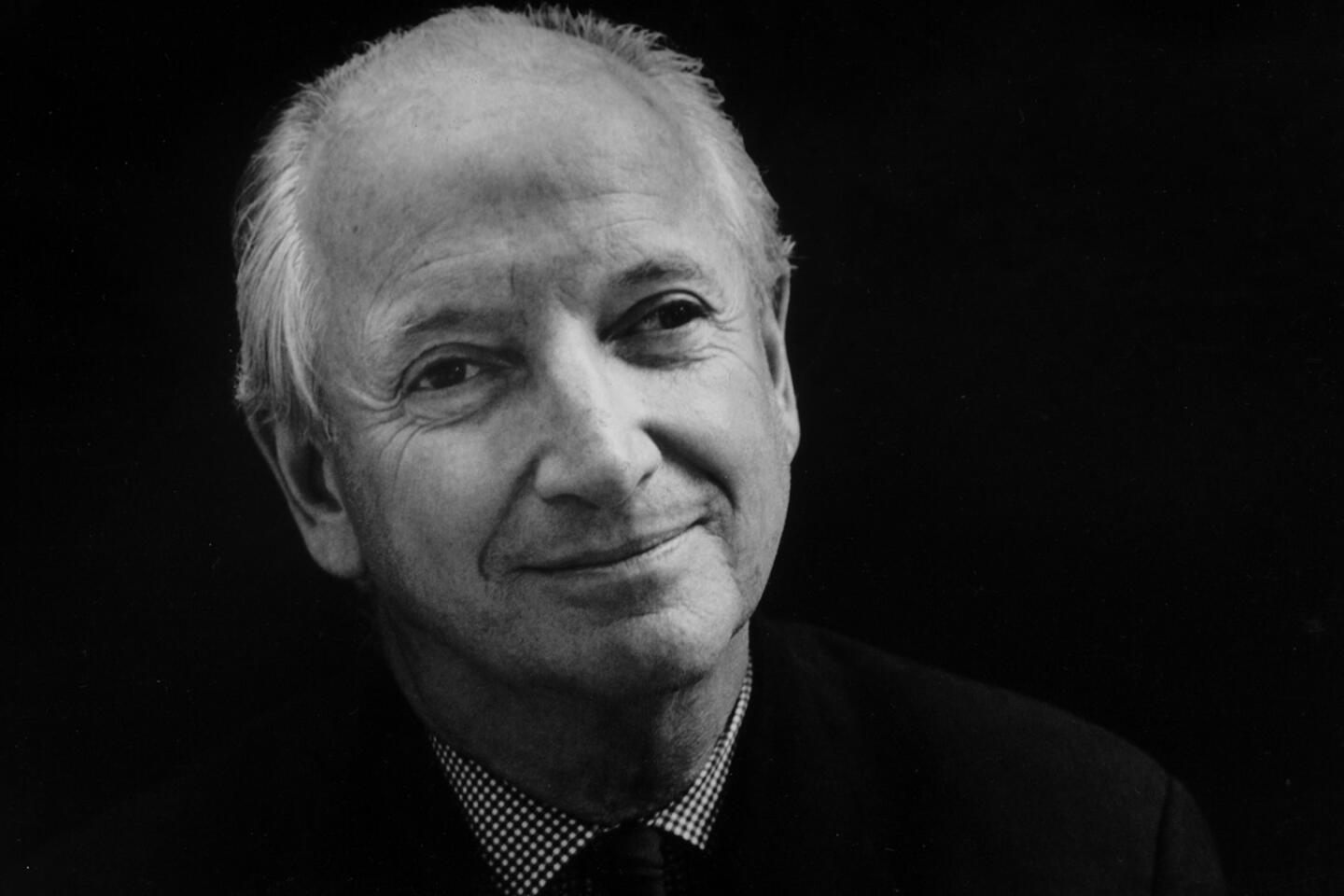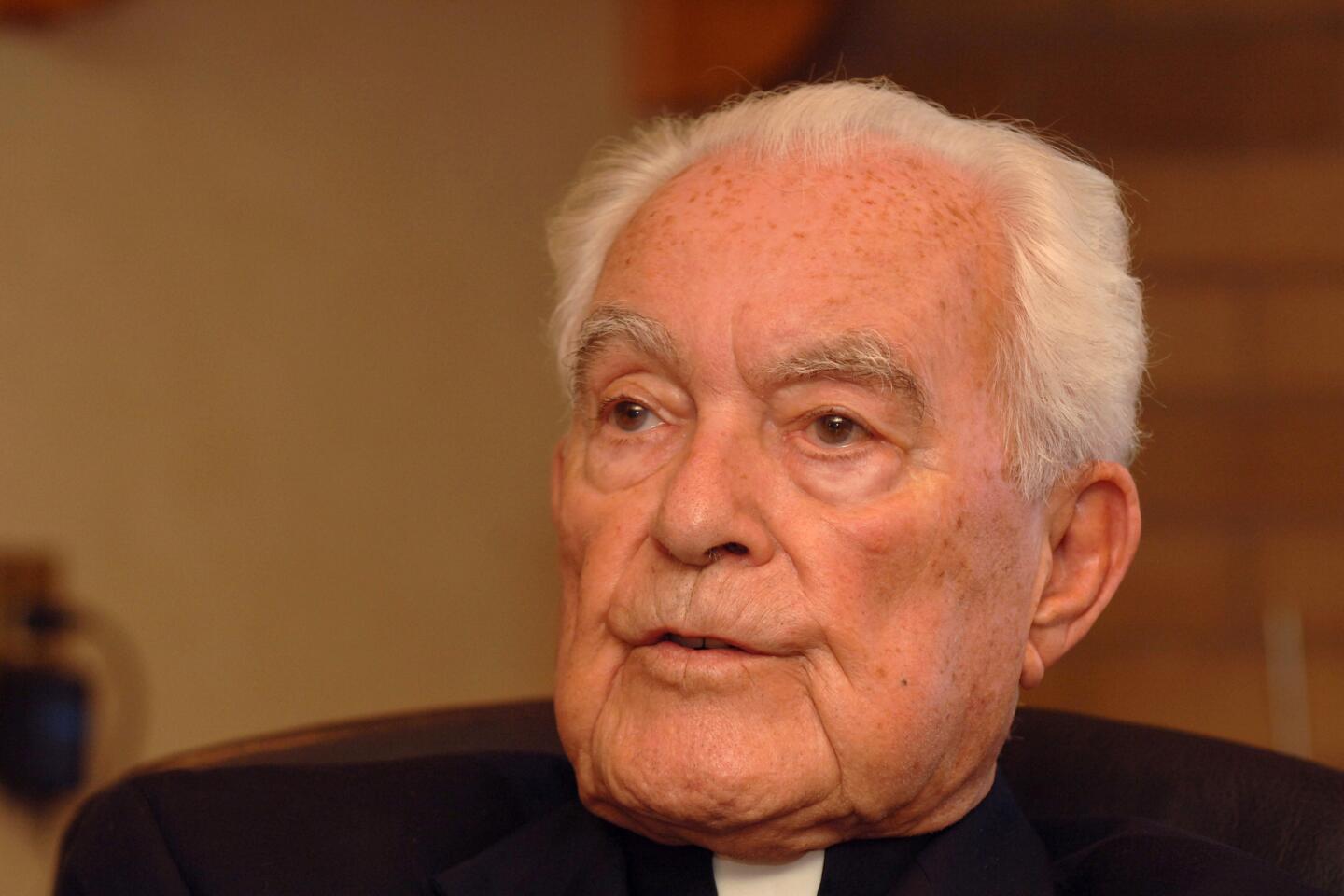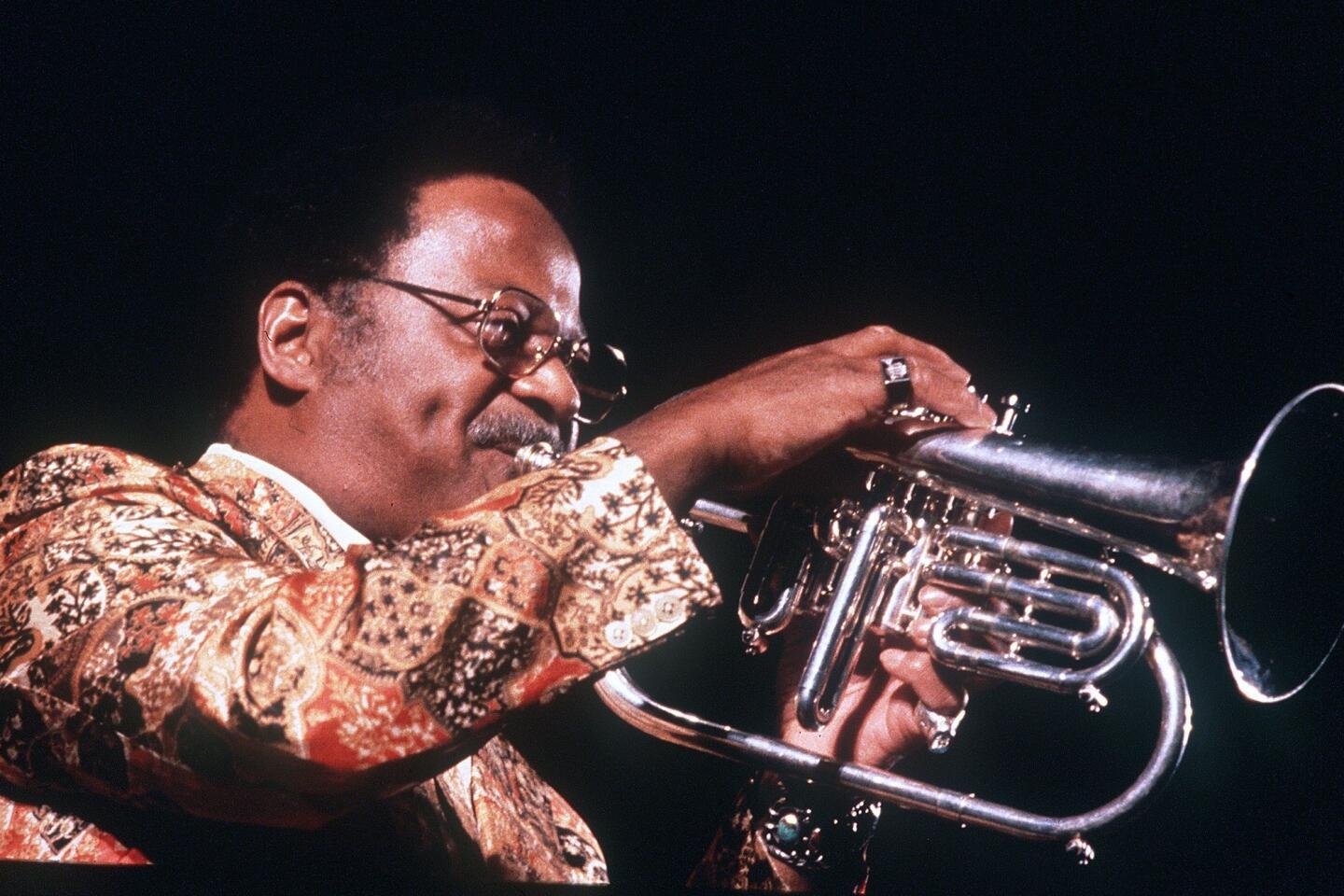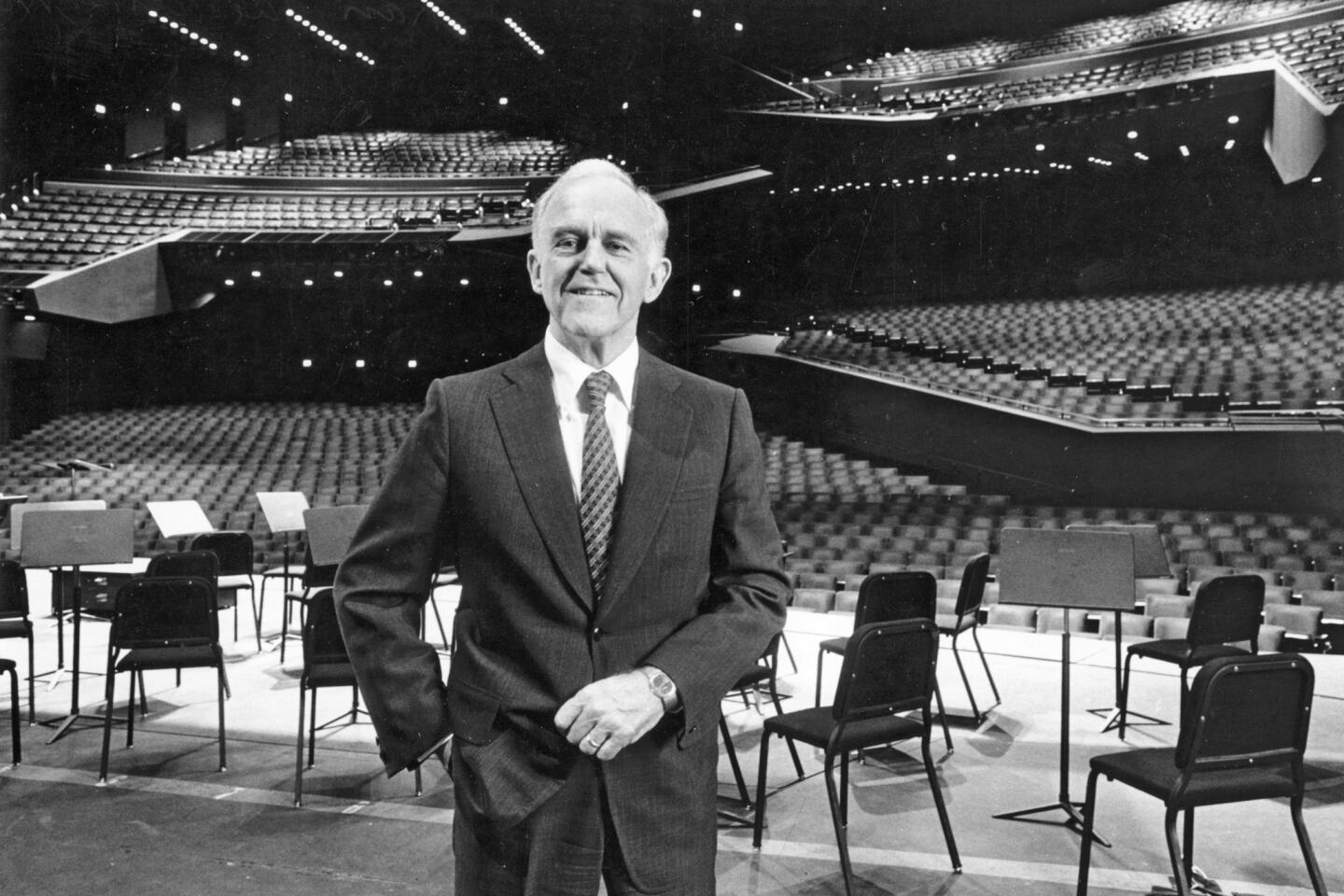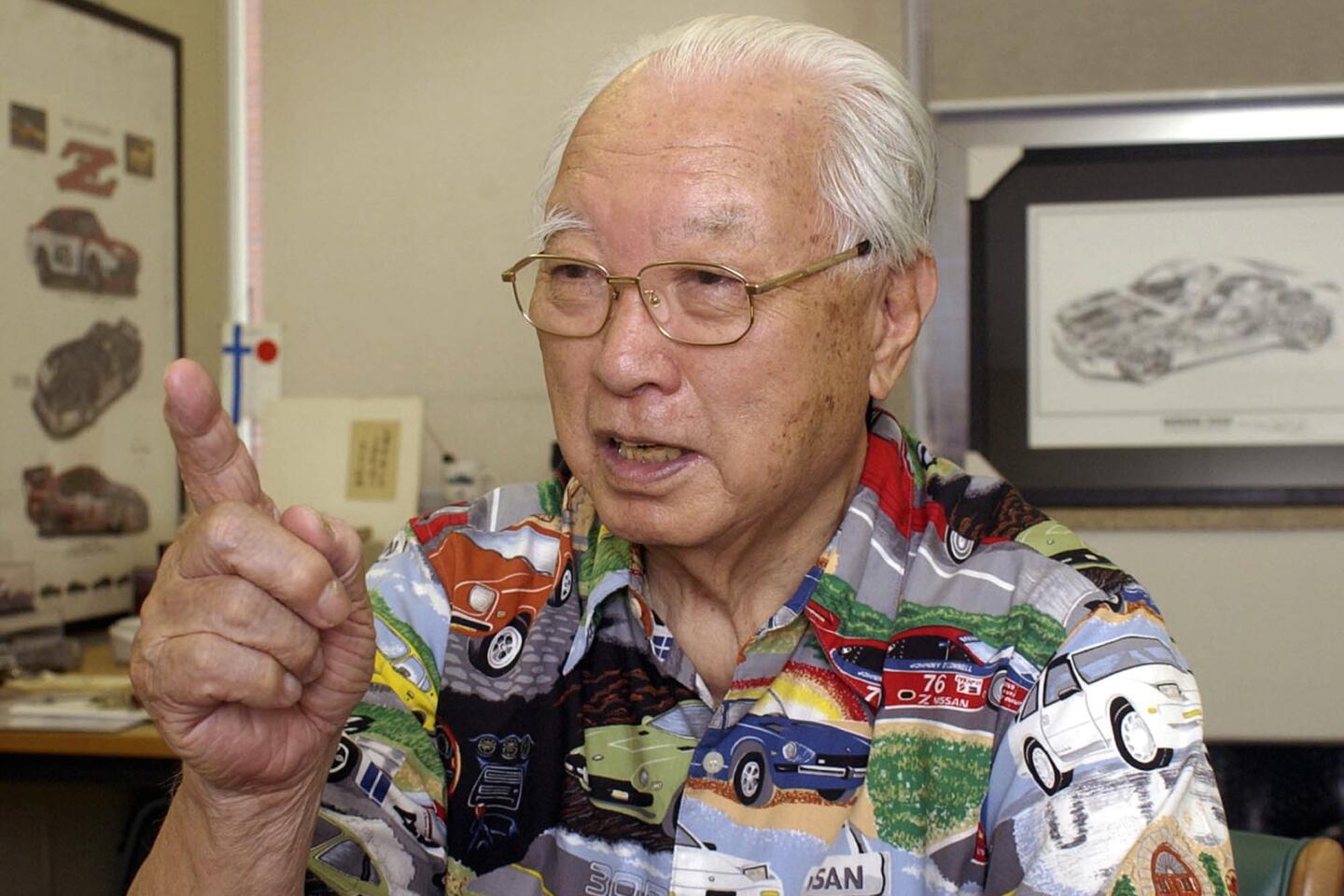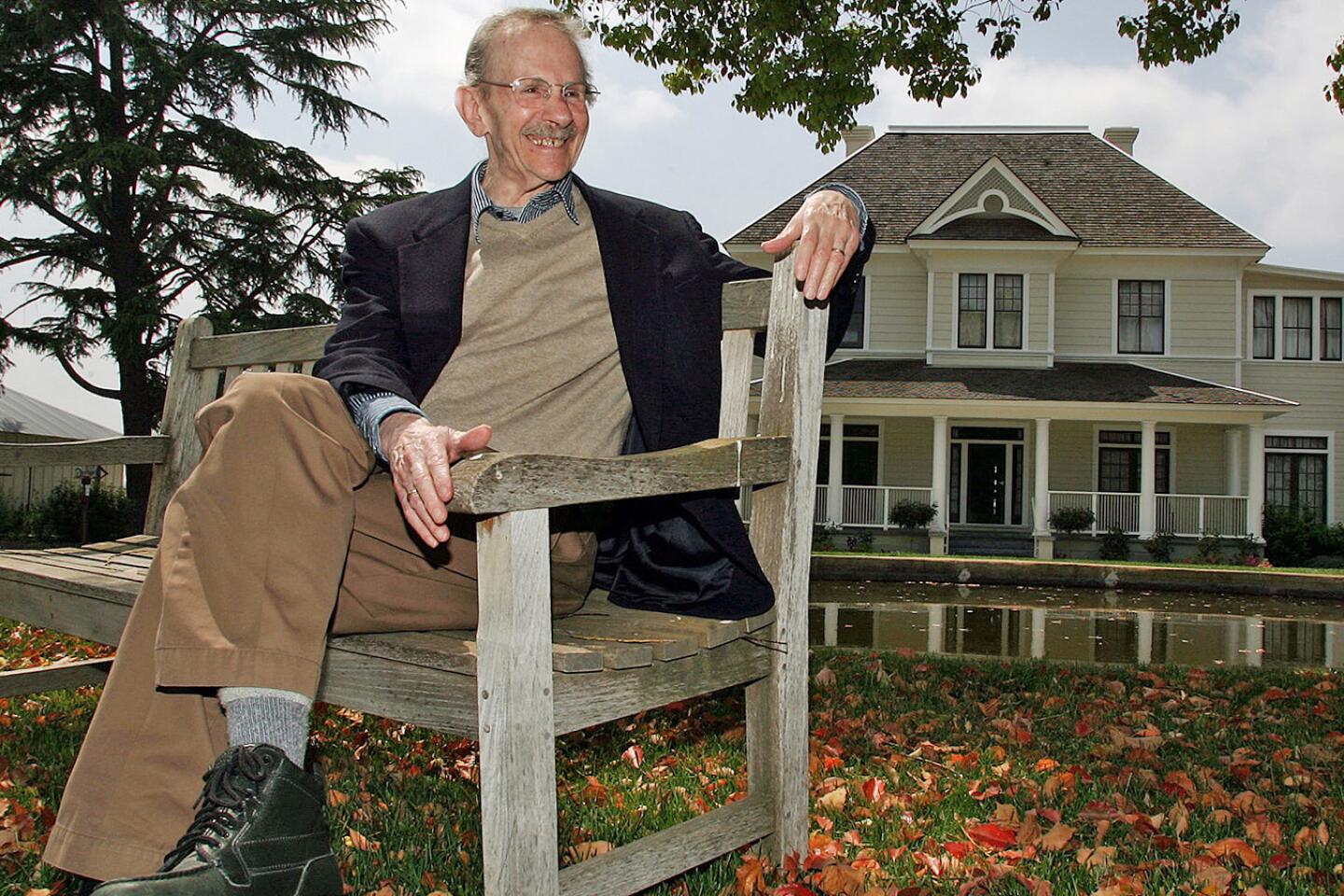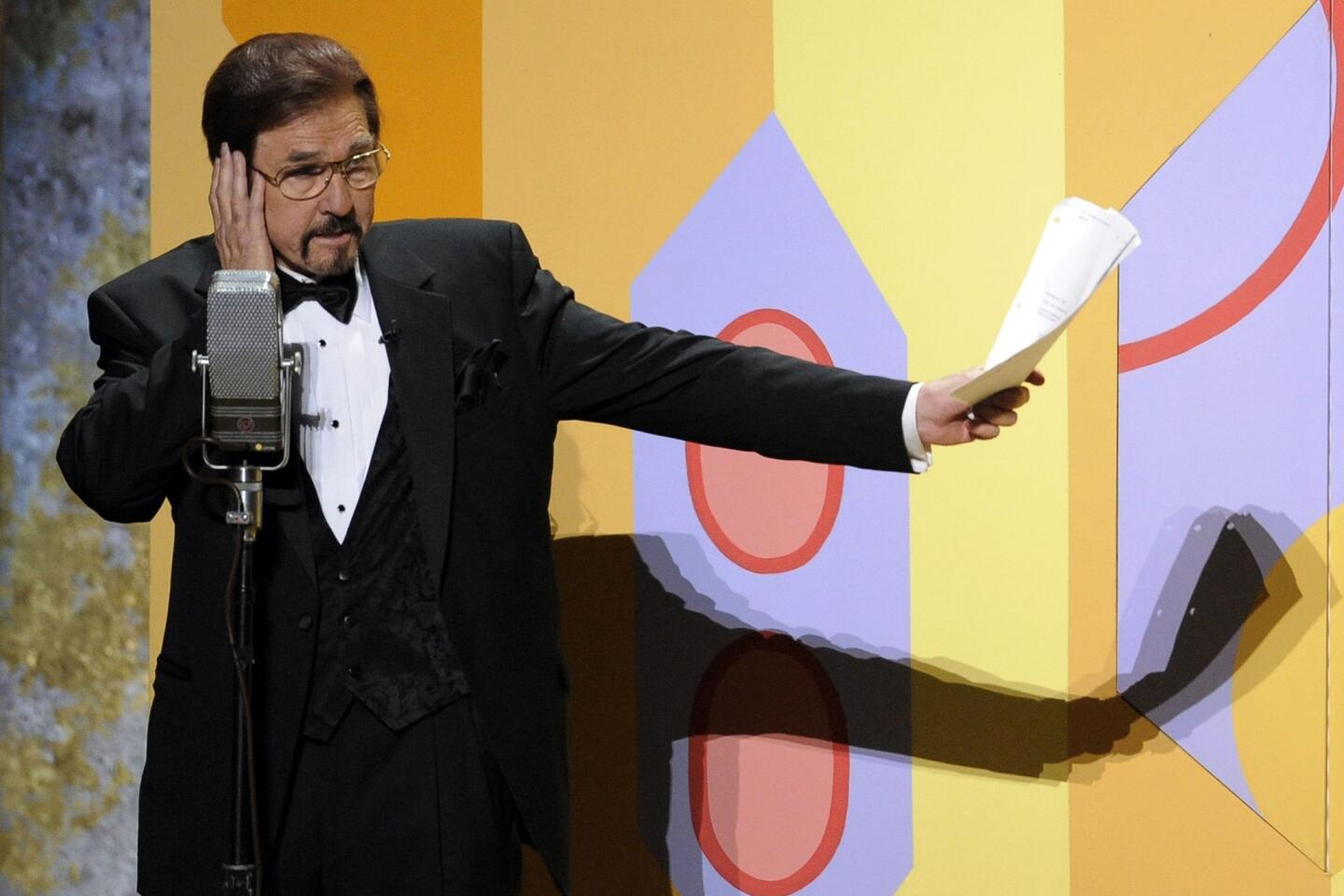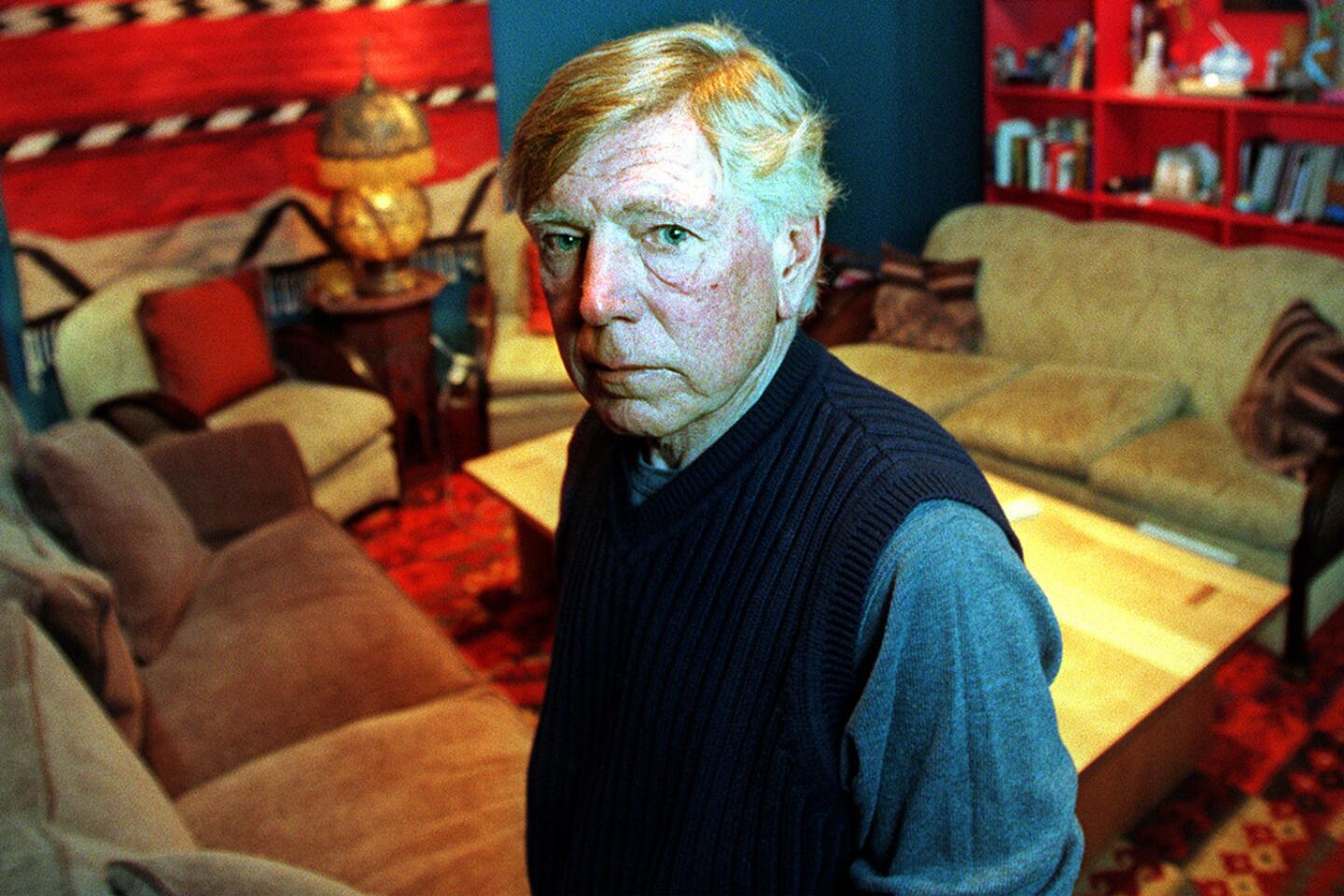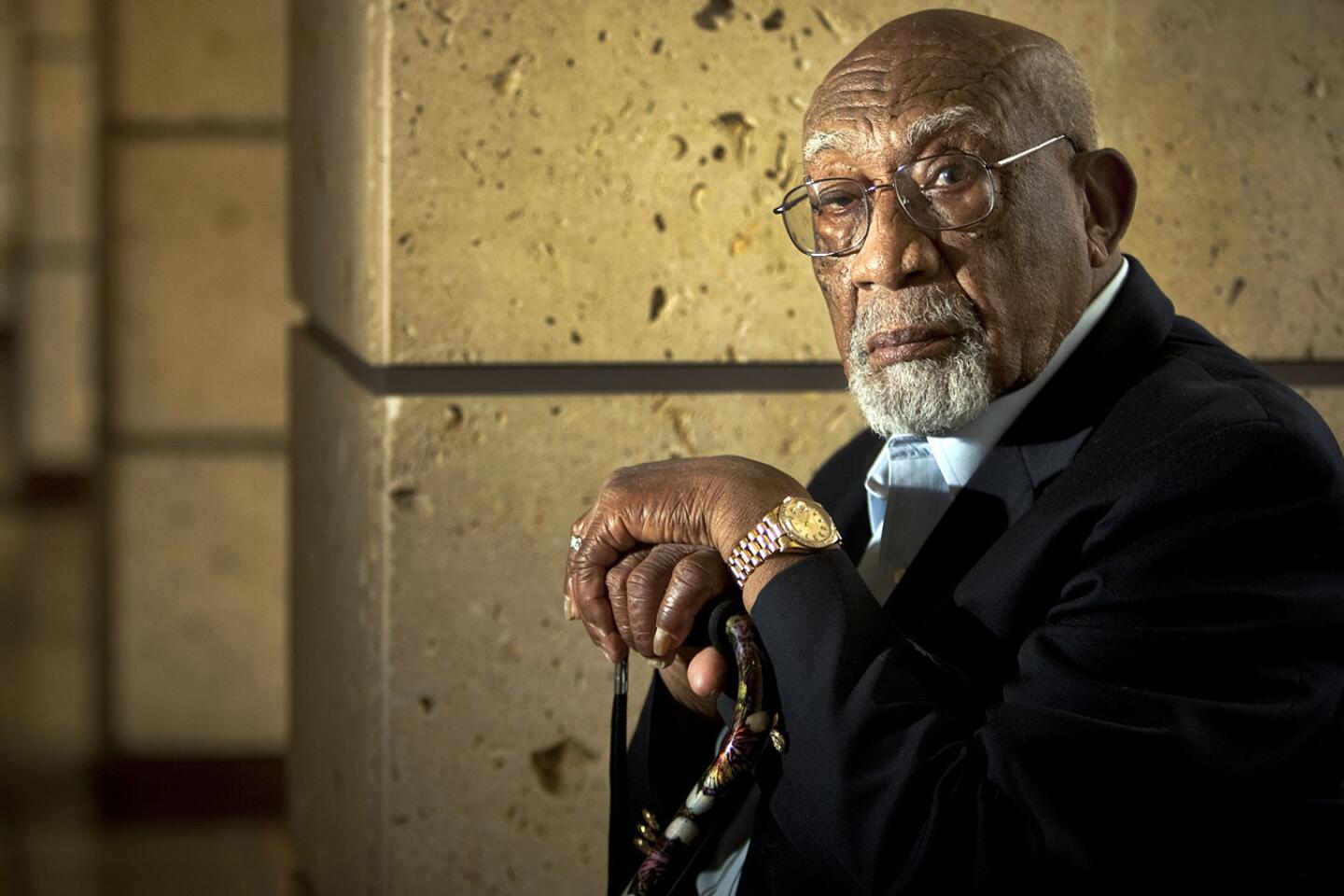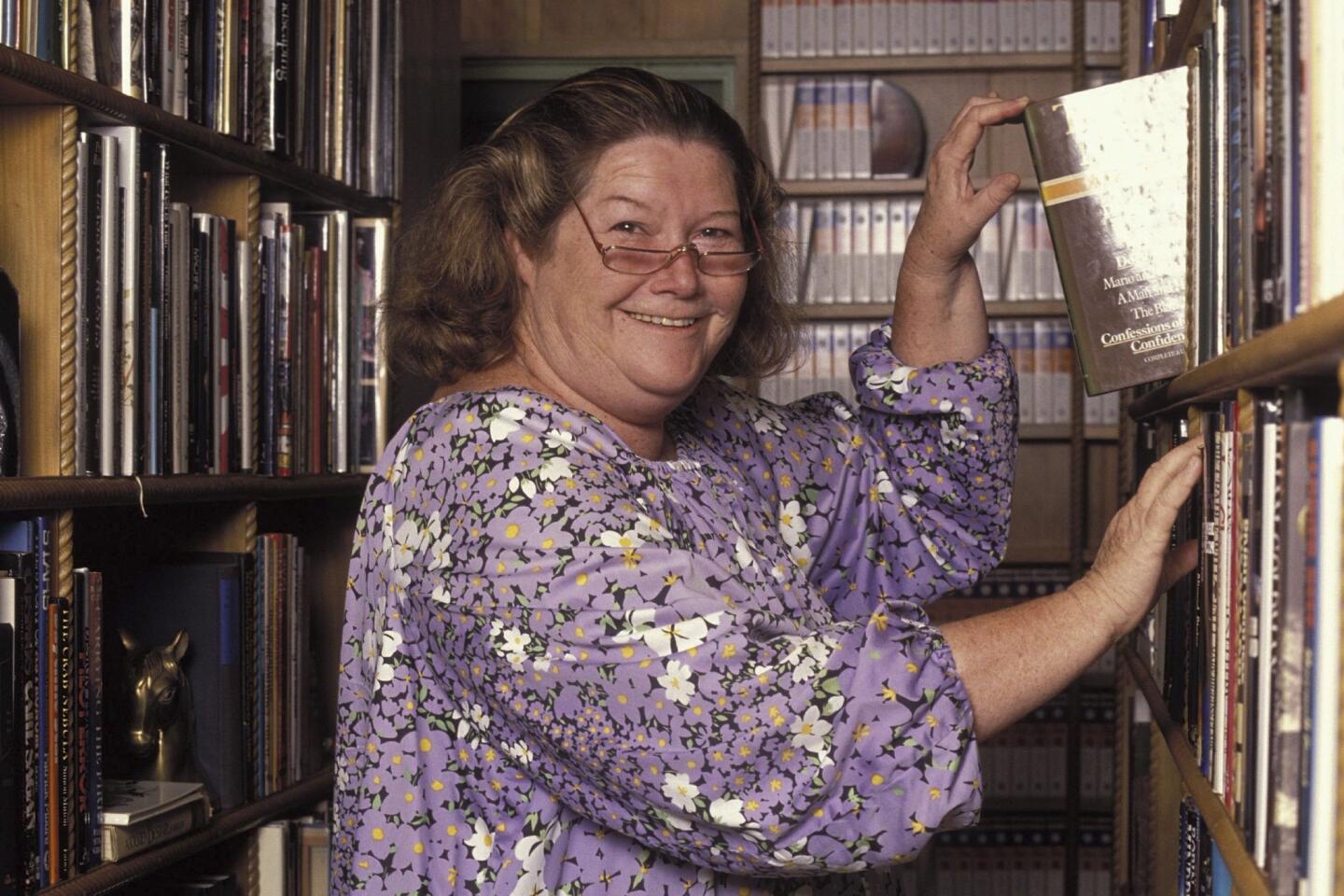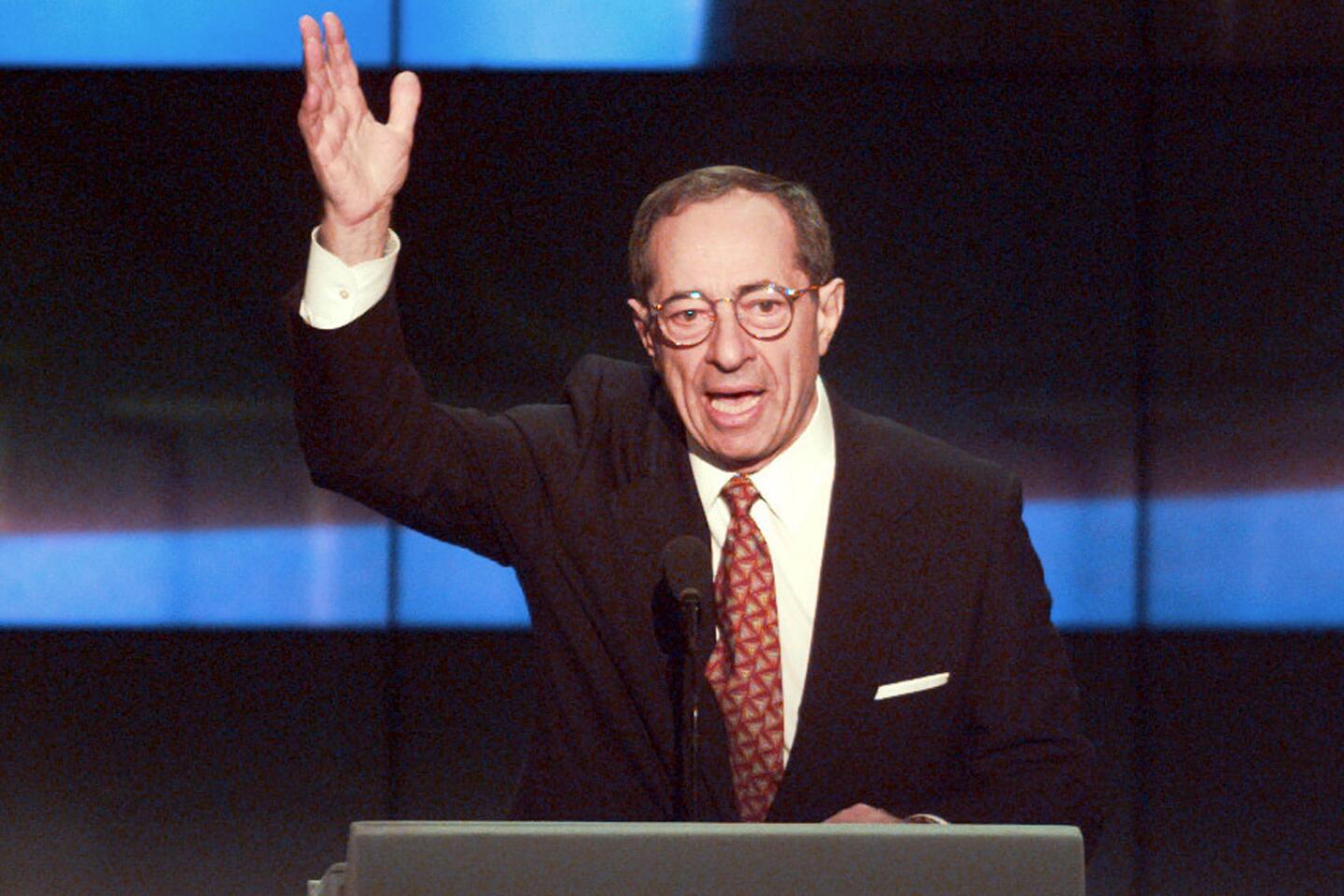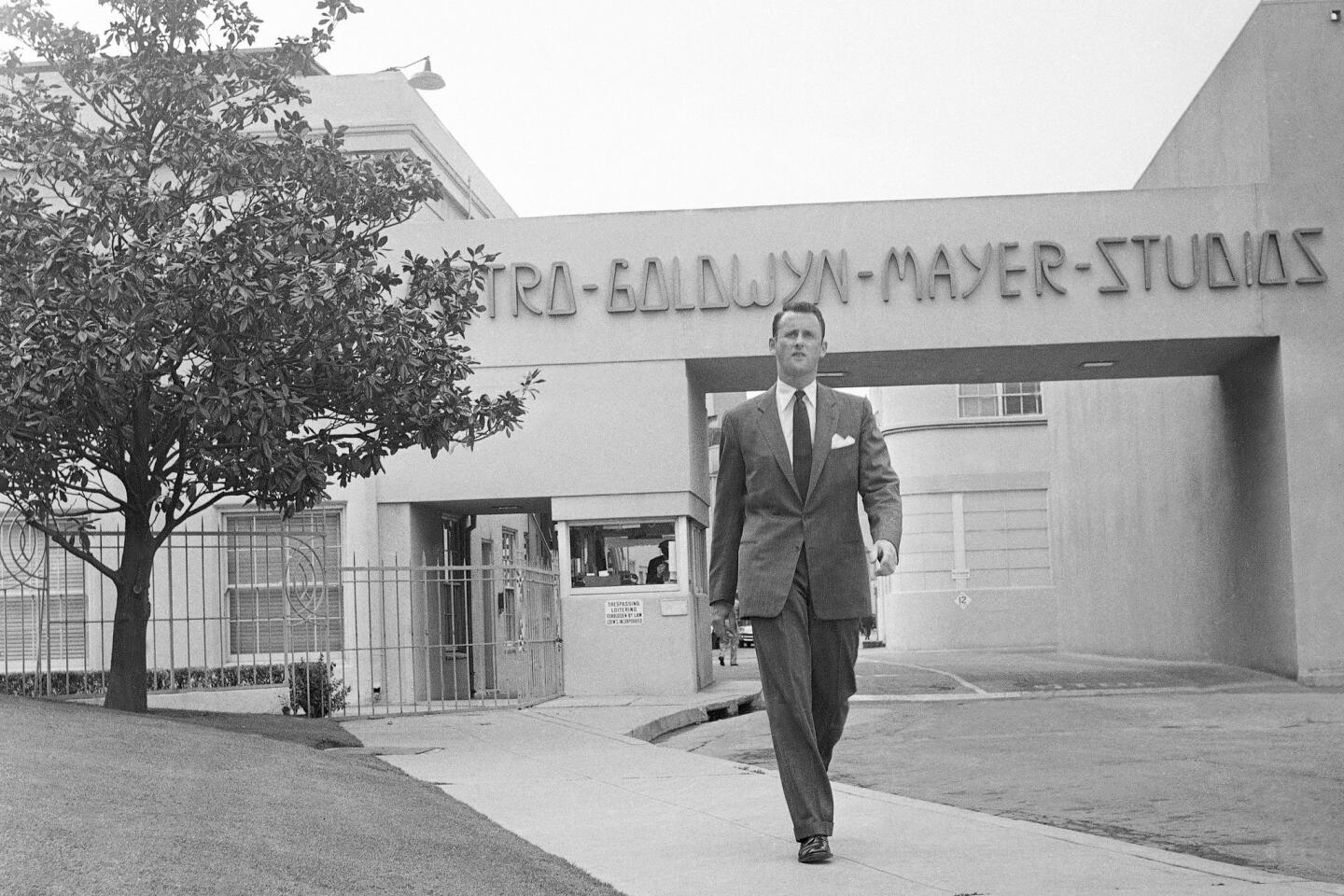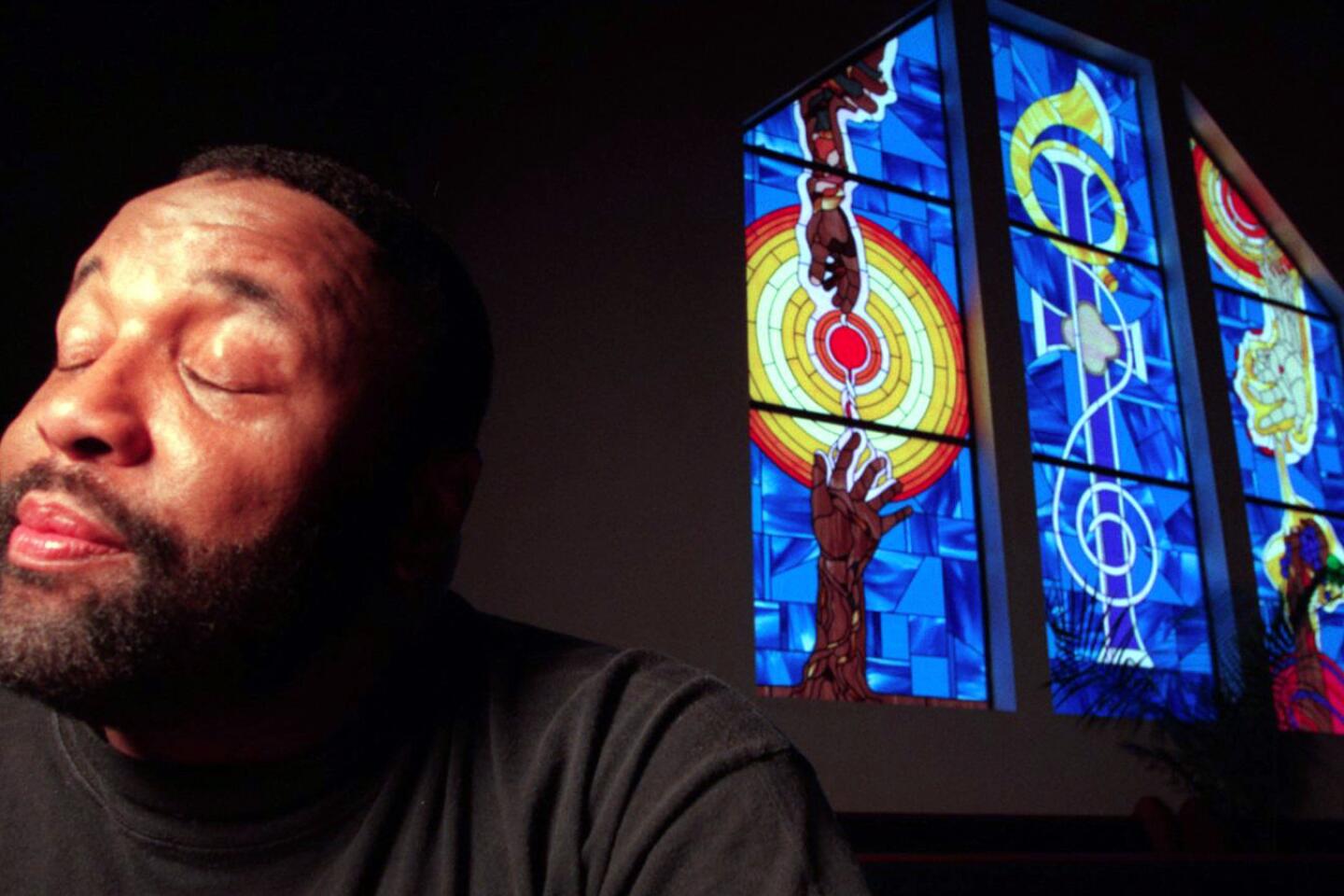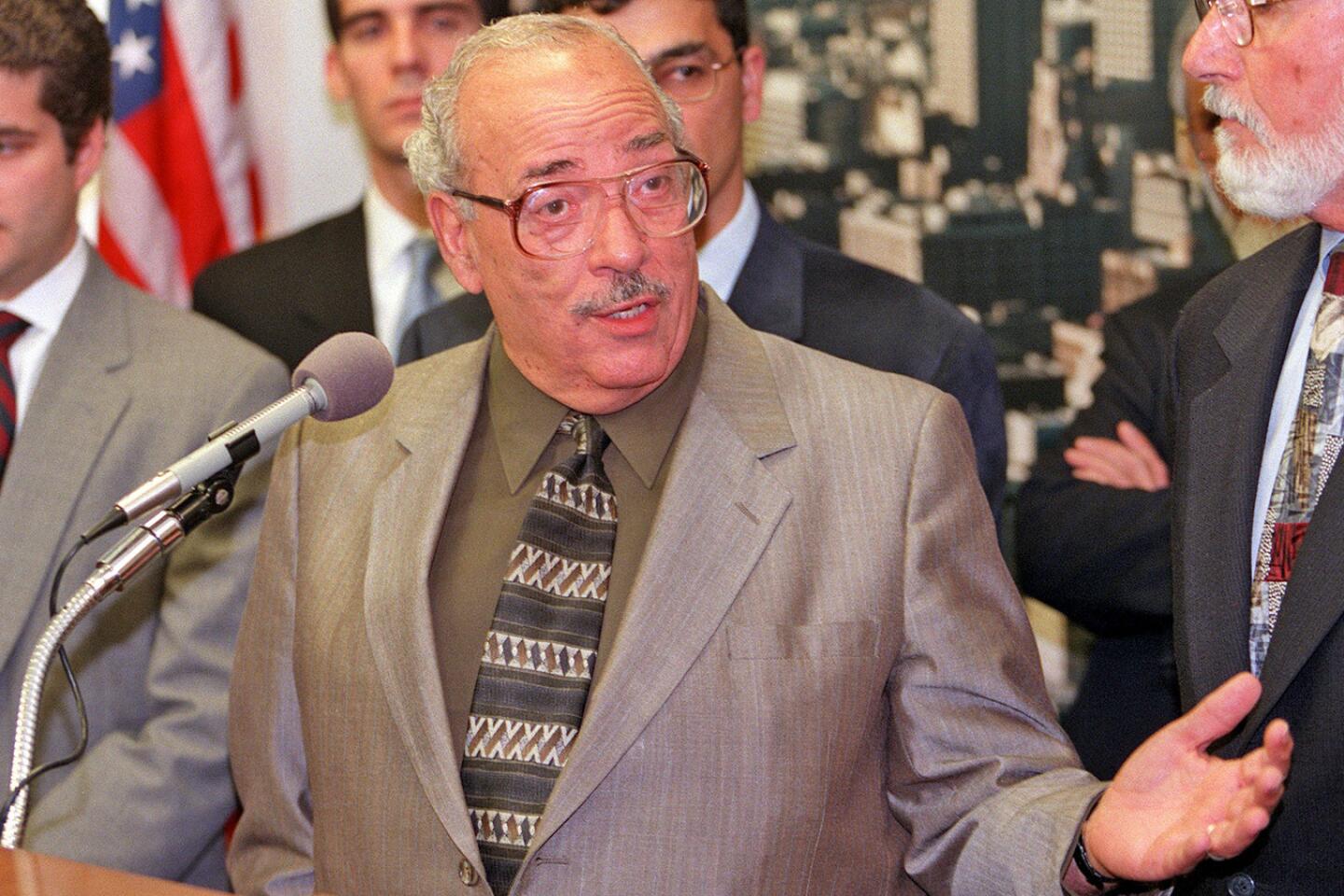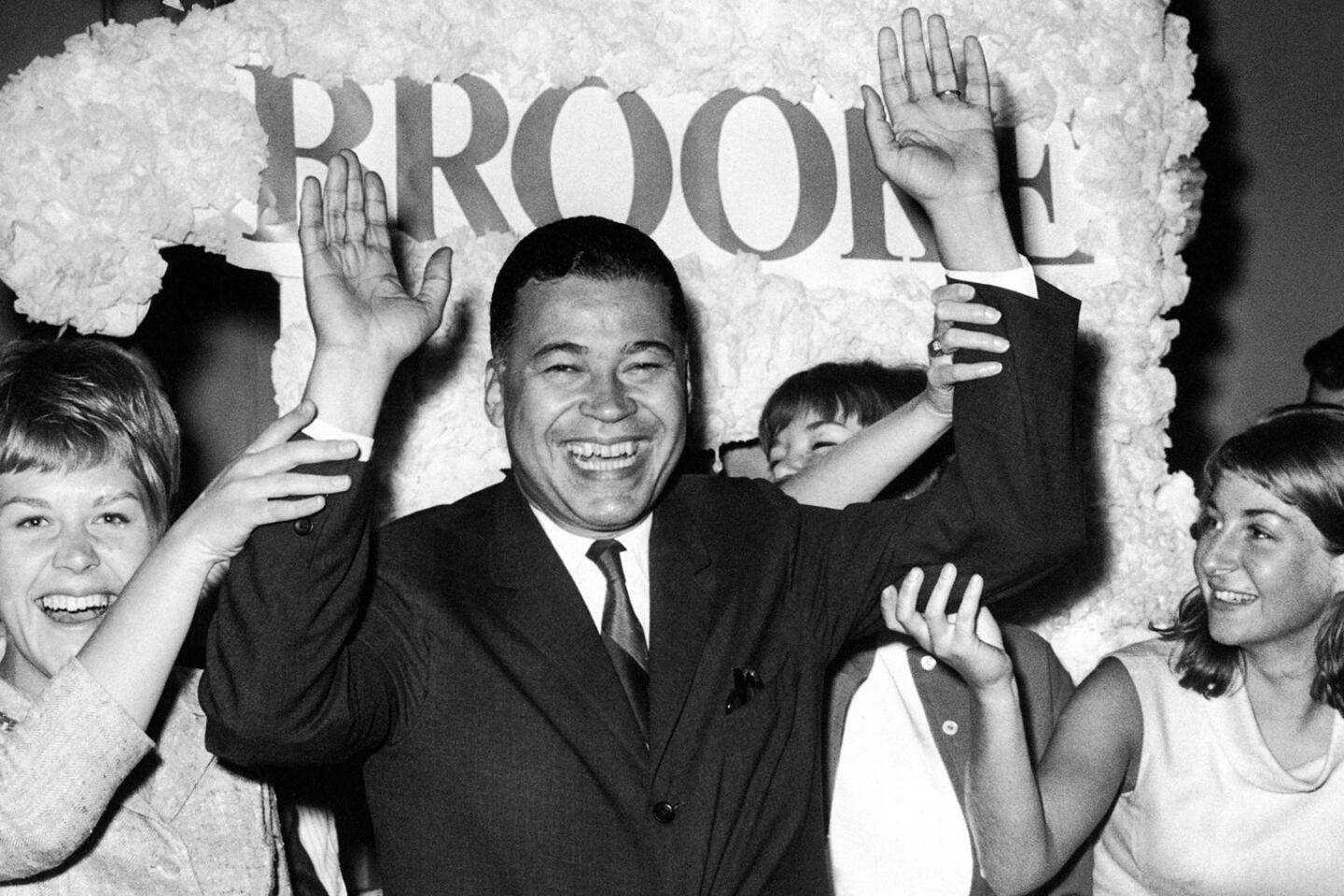Haskell Wexler, a two-time Academy Award-winning cinematographer — for “Who’s Afraid of Virginia Woolf?” and “Bound for Glory” — and the writer-director of the landmark 1969 film “Medium Cool,” died Sunday morning. He was 93.
Despite his success shooting big-budget films for major studios, Wexler, a lifelong liberal activist, devoted at least as much of his six-decade career to documentaries on war, politics and the plight of the disenfranchised.
“His real passion was much larger than just making movies,” said son Jeff Wexler a few hours after his father’s death at a hospital in Santa Monica. “His real passion was for human beings and justice and peace.”
At age 89, Wexler, camera in hand, was an early and regular visitor to the Occupy L.A. encampment at City Hall in 2011. He said he was drawn to both the cause of economic justice and the political theater, feeling a kinship with the protesters despite what he acknowledged was the comfortable lifestyle of a successful Hollywood cinematographer.
1/2
Director Haskell Wexler in Park City, Utah, in 2006, to promote his film “Who Needs Sleep?” at the Sundance Film Festival. The film explores crews working in the film and television industry, often clocking 15- to 18-hour days.
(Al Seib / Los Angeles Times) 2/2
Haskell Wexler videotapes people as he asks them “What were you doing in 1968” as they enter the Music Box theatre in Chicago, showing his legendary film “Medium Cool.”
(Al Seib / Los Angeles Times) “You can take that insulation and figure you’re an old guy and you [already] did your thing,” Wexler said at the time. “Then something inside me gets reminded that my ‘thing’ is what makes me alive — to be able to have a camera and an idea and an urge that gives me pleasure.”
One of the few cinematographers to have received a star on the Hollywood Walk of Fame (in 1996), Wexler won his first Oscar for his black-and-white photography on “Who’s Afraid of Virginia Woolf?,” director Mike Nichols’ 1966 debut starring Elizabeth Taylor and Richard Burton.
His acceptance speech was among the briefest in Hollywood history: “I hope we can use our art for peace and for love. Thanks.”
He won his second Oscar for “Bound for “Glory,” director Hal Ashby’s 1976 movie starring David Carradine as legendary singer-songwriter Woody Guthrie.
Wexler also received Oscar nominations for best cinematography for the 1975 film “One Flew Over the Cuckoo’s Nest” (shared with Bill Butler), “Matewan” (1987) and “Blaze” (1989).
Among Wexler’s other feature film credits as a cinematographer are “The Thomas Crown Affair,” “In the Heat of the Night,” “Coming Home,” “Colors” and “The Babe.”
He also was visual consultant on George Lucas’ 1973 classic “American Graffiti.” And he received an “additional photography” credit on Terrence Malick’s 1978 film “Days of Heaven,” for which cinematographer Nestor Almendros won an Oscar.
Wexler made his feature directorial debut with “Medium Cool,” a low-budget 1969 film that he wrote and for which he served as a producer and as the director of photography.
Described by Wexler as “a wedding between features and cinema verite,” the drama about an emotionally detached TV news cameraman was partly shot in Chicago during the tumultuous 1968 Democratic National Convention.
At one point, as the camera inches closer to a tear-gas cloud and a wall of police officers, a voice off-camera famously can be heard warning, “Look out, Haskell — it’s real!”
Considered “a seminal film of ‘60s independent cinema,” “Medium Cool” was selected for preservation in the National Film Registry in 2003.
Wexler also directed and wrote the 1985 feature film “Latino,” a war drama shot in Nicaragua that movie critic Michael Wilmington described as “an indictment of U.S. involvement in Nicaragua that pulls no philosophical punches and was made under conditions of real danger, near actual battle zones.”
Once named one of the 10 most influential cinematographers in movie history in a survey of International Cinematographers Guild members, Wexler became the first active cameraman to receive the American Society of Cinematographer’s Lifetime Achievement Award in 1993.
Describing his work in an interview that year with American Cinematographer magazine, Wexler said: “Movies are a voyeuristic experience. You have to make the audience feel like they are peeking through a keyhole. I think of myself as the audience. Then I use light, framing and motion to create a focal point.”
As a cinematographer, Wexler was known for being difficult — as several filmmakers attested to in “Tell Them Who You Are,” the highly personal 2004 documentary on Wexler made by his son, Mark, himself a target of his father’s prickly nature.
Wexler was fired from “One Flew Over the Cuckoo’s Nest” more than halfway through shooting because, according to director Milos Forman, “He was sharing his frustrations with the actors.”
For his part, Wexler said in the documentary: “As a director of photography, I always have worked as if it’s my film. I don’t think there is a movie that I’ve been on that I wasn’t sure I could direct it better. But certainly also, as a director of photography, I have to serve the movie in whatever way I can as a filmmaker.”
A child of wealth — his father made a fortune in electronics and continued to prosper during the Depression — Wexler was born Feb. 6, 1922, in Chicago.
Despite his privileged background, he showed his rebellious streak and political bent at 17 when he helped organize a workers’ strike at his father’s electronics factory.
After a year at UC Berkeley, Wexler dropped out in 1941 and joined the merchant marine. By the end of World War II, he had become a second officer and had survived 10 days in a lifeboat with 20 other merchant seamen after their supply ship was torpedoed in the Indian Ocean.
Back home after the war, Wexler was asked by his father what he wanted to do.
“I told him I wanted to be a filmmaker,” Wexler recalled in his interview with American Cinematographer.
Although he had previously shot only home movies with his father’s 16-millimeter camera, Wexler received financial backing from him to open a small studio in Des Plaines, Ill.
The filmmaking enterprise was not a success, and in 1947 Wexler began working as a freelance assistant cameraman on industrial, educational and other films.
By the late 1950s, he had begun amassing feature film credits as a cinematographer.
Once described by Times film columnist Patrick Goldstein as “a fire-breathing old lefty with the crusty soul of a sensitive artist,” Wexler made a string of documentaries on subjects including the civil rights movement (“The Bus”), the Weather Underground (“Underground”) and the Vietnam War (“Introduction to the Enemy,” for which he traveled with Jane Fonda and Tom Hayden to North Vietnam).
“We have a responsibility to show the public the kinds of truths that they don’t see on the TV news or the Hollywood film,” he once said.
In the mid-1970s, Wexler and a friend, Oscar-winning cinematographer Conrad L. Hall, launched a TV commercial company. Between shooting feature films, Wexler directed and shot commercials for products such as Miller Beer, STP and, most memorably, for Great Western Savings and Loan with John Wayne.
In 2001, he received an Emmy nomination for outstanding cinematography for a miniseries or movie for “61,” the Billy Crystal-directed HBO film about New York Yankee sluggers Mickey Mantle’s and Roger Maris’ quest to break Babe Ruth’s single-season home run record.
1/64
The former national security advisor helped craft President Clinton’s foreign policy from 1997 to 2001, when the administration carried out airstrikes in Kosovo and against Saddam Hussein’s forces in Iraq. He previously had worked in the State Department in President Jimmy Carter’s administration. He was 70. Full obituary
(Kevin Wolf / Associated Press) 2/64
The former South Korean president formally ended decades of military rule and accepted a massive international bailout during the 1997-98 Asian financial crisis. He was 87. Full obituary
(AFP / Getty Images) 3/64
The Scottish drummer replaced Ringo Starr as the Beatles’ drummer on their first single, “Love Me Do.” The song, all 2 minutes and 22 seconds of it, was a hit, but after the session, White never played with the Beatles again. He was 85. Full obituary
(Michael Brennan / Getty Images) 4/64
The legendary stripper and Bay Area institution helped introduce topless entertainment more than 50 years ago. She was 78. Full obituary
(Norbert von der Groeben / Associated Press) 5/64
The West German chancellor was known for shepherding his country through tough economic times, pushing it closer to eventual reunification with Communist East Germany and facing down a band of domestic terrorists. He was 96. Full obituary
(AFP / Getty Images) 6/64
The revered songwriter, producer, pianist and singer was a key architect of the early rock and R&B music that flowed from New Orleans to the national stage, an artist whose widespread influence led to his eventual status as a patriarch of the city’s fertile musical mash-up. He was 77. Full obituary
(Lawrence K. Ho / Los Angeles Times) 7/64
The Southern California custom-car legend created many of the most memorable and outrageous automobiles ever seen on film and television. He designed TV’s Batmobile as well as special vehicles for many of the biggest names in Hollywood, including Frank Sinatra, Sammy Davis Jr., Elvis Presley, Michael Jackson and John Wayne. He was 89. Full obituary
(Al Seib / Los Angeles Times) 8/64
The Irish-born actress was one of the biggest film stars of the 1940s and ‘50s. She more than held her own in her most heralded roles, even against as forceful a presence as John Wayne, with whom she made five films including the classic “The Quiet Man.” She was 95. Full obituary
(Harold Filan / Associated Press) 9/64
Chef Paul Prudhomme popularized spicy Louisiana cuisine and became one of the first American restaurant chefs to achieve worldwide fame. He was 75. Full obituary
(Bill Haber / Associated Press) 10/64
Filmmaker Chantal Akerman was frequently likened to Orson Welles, Jean-Luc Godard and Rainer Werner Fassbinder for her restless, broad-ranging style and the piercing intelligence she brought to both the formal and thematic elements of her work. She was 65. Full obituary
(Elisabetta A. Villa / WireImage) 11/64
In an era when few minorities of any kind belonged to Los Angeles’ social and civic elite, Marilyn Hudson was sometimes seen as the token black. The local civic leader broke barriers quietly at a time when racial militancy was in vogue. She was 88. Full obituary
(Marianne Diamos / Los Angeles Times) 12/64
Susumu Ito, a member of a Japanese American regiment that rescued another group of U.S. soldiers during World War II, went on to become a professor and researcher at Harvard Medical School. He was 96. Full obituary
(Katie Falkenberg / Los Angeles Times) 13/64
The designer was a force for working women who wanted a stylish but affordable look. Her eponymous brand became a favorite of career women. She was 80. Full obituary
(Adrienne Helitzer / Los Angeles Times) 14/64
The publisher mined California’s counterculture for bestsellers, bringing out such consciousness-expanding works as “Drawing on the Right Side of the Brain” by Betty Edwards. He was 83. Full obituary
(Ken Hively / Los Angeles Times) 15/64
Considered one of the iconic figures of modern jazz, Woods was also thought of by some as the rightful heir to Charley “Bird” Parker. He may be best known to pop audiences for his alto saxophone work on Billy Joel’s “Just the Way You Are,” Steely Dan’s “Doctor Wu” and Paul Simon’s “Have a Good Time.” He was 83. Full obituary
(Hiroyuki Ito / Getty Images) 16/64
One of the best centers to ever play in the NBA, Malone was named to the NBA’s 50th anniversary all-time team and led the Philadelphia 76ers to the NBA championship in 1983, when he also won the most valuable player award, one of three in his 21-year career. The 14-time All-Star entered the Hall of Fame in 2001. He was 60. Full obituary
(Elise Amendola / Associated Press) 17/64
The Yankee Hall of Fame catcher was renowned as much for his dizzying malapropisms as his record 10 World Series championships. His wacky public utterances -- spoken with utter sincerity -- were quoted by presidents, professors and public speakers of all stripes, among millions of others. He was 90. Full obituary
(Ron Frehm / Associated Press) 18/64
The best-selling author was a fixture on the Hollywood scene, where she frequented celebrity hangouts in search of story material. Her novels, including “Hollywood Wives,” “Hollywood Husbands” and “Hollywood Kids,” together sold more than 500 million copies around the world. She was 77. Full obituary
(Tony Barnard / Los Angeles Times) 19/64
The Japanese American tail gunner overcame the American military’s discriminatory policies to fly on 58 bombing missions over three continents during World War II, including raids on Tokyo in the final months of the war. He was 98. Full obituary
(Spencer Weiner / Los Angeles Times) 20/64
Best known for star turns in Disney comedies such as “The Love Bug,” “That Darn Cat!” and “The Ugly Dachshund,” Jones often played the somewhat bumbling good guy. Later, his religious conversion -- he became a born-again Christian -- altered not only the course of his life but his career choices. He was 84. Full obituary
(Dan Grossi / Associated Press) 21/64
His name forever linked to horror films, Craven created some of the genre’s most influential films, including 1977’s “The Hills Have Eyes,” 1984’s “A Nightmare on Elm Street” and 1996’s “Scream.” He was 76. Full obituary
(Kirk McKoy / Los Angeles Times) 22/64
The veteran producer-director brought Hollywood headliners into America’s living rooms through live television in the 1950s. His creative partnership with Norman Lear produced such films as “Come Blow Your Horn,” “Divorce American Style” and groundbreaking television sitcoms such as “All in the Family,” “Maude” and “Sanford and Son.” He was 89. Full obituary
(Harry Langdon / Associated Press) 23/64
Charismatic and eloquent, the civil rights leader had numerous key accomplishments, including co-founding the landmark Student Nonviolent Coordinating Committee and serving as board chairman of the NAACP. He was 75. Full obituary
(Paul Sancya / Associated Press) 24/64
After being shot in the face during a bar fight at 23 and losing his sight, Manning went on to become a poet, athlete and founder of a theater company in Watts. He was 60. Full obituary
(Luis Sinco / Los Angeles Times) 25/64
The British pop singer had a string of hits starting in 1964 with “Anyone Who Had a Heart,” written by Burt Bacharach and Hal David, and “You’re My World.” Starting in the 1980s, she became an enormously popular personality on British TV. She was 72. Full obituary
(William Vanderson / Getty Images) 26/64
The Egyptian-born actor, right, rose to international acclaim after starring with Peter O’Toole in “Lawrence of Arabia.” He went on to make some 90 movies in his career, including “Doctor Zhivago” and “Funny Girl.” He was 83. Full obituary
(Columbia TriStar / Getty Images) 27/64
In a career that spanned half a century, Weintraub proved a force in the worlds of music, film and television. He had an eye for talent, discovering a little-known singer-songwriter named John Denver, for example, and launching him to international stardom. Weintraub was 77. Full obituary
(Lawrence K. Ho / Los Angeles Times) 28/64
A stage and screen actor, Van Patten was most famous for starring as loving father Tom Bradford in the television series “Eight Is Enough.” His roles in movies included “Soylent Green,” “High Anxiety” and “Spaceballs.” He was 86. Full obituary
(Boris Yaro / Los Angeles Times) 29/64
A courageous editor, Carroll guided the Los Angeles Times to new heights, including a record 13 Pulitzer Prizes in five years. Of the 13 Pulitzers the paper won under Carroll, five were awarded in 2004. It was the largest number The Times ever won in a single year and the second-largest in the history of the prizes. He was 73. Full obituary
(Wally Skalij / Los Angeles Times) 30/64
One of the first superstar chefs, Vergé, pictured here with actor John Travolta, was known for light, fresh and artfully plated food. He turned his restaurant, Le Moulin de Mougins in France, into a landmark of French gastronomy and a beacon of nouvelle cuisine. He was 85. Full obituary
(Gilberte Tourte / Associated Press) 31/64
Ronnie Gilbert , pictured second to the right, was a member of the folk group the Weavers, who, at their peak, were known for spirited renditions of famous folk songs -- as well as antiwar protest songs that would lead to their temporary disbandment during the Red Scare. The group made a successful comeback three years later, going on to inspire other folk performers like the Kingston Trio. She was 88. Full obituary
(RICHARD DREW / AP) 32/64
Prior to his surrender to U.S. forces in 2003, Tarik Aziz was known as the diplomatic symbol of the Iraqi government, the man Saddam Hussein deployed to convey his message to the world. He had been in custody since his surrender. He was 79. Full obituary
(Peter Dejong / Associated Press) 33/64
Son of Vice President Joe Biden, Beau Biden was the former attorney general for the state of Delaware and a U.S. Army captain. A promising young figure in Democratic Party politics, Beau was considered a leading contender in next year’s governor’s election in Delaware. He was 46. Full obituary
(Paul Sancya / AP) 34/64
The Nobel Prize winner transformed economics and was known as one of the greatest mathematicians of his time. The inspiration for Ron Howard’s 2001 Oscar-winning film “A Beautiful Mind,” he eventually recovered from his devastating illness, defying a common misconception about schizophrenia. He was 86. Full obituary
(AFP / Getty Images) 35/64
The former jazz musician became a deeply influential and highly visible executive at Columbia Records, Blue Note Records and other major labels. He moved from one lofty record company job to another, leaving his mark along the way. He was 79. Full obituary
(Seth Wenig / Associated Press) 36/64
The blues legend took the musical genre from the barrooms and back porches of the Mississippi Delta to Carnegie Hall and the world’s toniest concert stages. The 15-time Grammy winner created a unique style that made him one of the most respected and influential blues musicians ever. He was 89. Full obituary
(Ken Hively / Los Angeles Times) 37/64
Best known for her role as the clueless mother of a confused, young Benjamin Braddock (Dustin Hoffman) in “The Graduate,” Wilson also acted in more than 30 movies and numerous Broadway plays. She was 94. Full obituary
(Archive Photos / Getty Images) 38/64
The ex-wife of Johnny Carson, Joanne Carson was married to “The Tonight Show” host from 1963 to 1972. She later in life became a confidant of Truman Capote. She was 83. Full obituary
(Hulton Archive / Getty Images) 39/64
The conceptual artist left a long-lasting legacy with “Urban Light,” the ranks of vintage lampposts tightly arrayed outside the Los Angeles County Museum of Art. Installed in 2008, it rapidly became something of an L.A. symbol. Burden was 69. Full obituary
(Mel Melcon / Los Angeles Times) 40/64
Blake won a 1991 screenwriting Oscar for Kevin Costner‘s film “Dances With Wolves,” which became the first western to win a best picture Academy Award since “Cimarron” in 1931. He was 69. Full obituary
(Reed Saxon / Associated Press) 41/64
A celebrated Russian ballerina famous for her swan-like arms, powerful leaps and rebel spirit on and off the stage, Plisetskaya was renowned for passionate performances that contrasted with the ethereal style of many other dancers. She was 89. Full obituary
(AFP / Getty Images) 42/64
Meadows was known for her work on the game show “I’ve Got a Secret.” The show also introduced her to the man who became her second husband, Steve Allen, above with Meadows in 1979, who was the first host of NBC’s “Tonight Show.” Until his death in 2000, they were one of the most recognizable performing couples in Hollywood. She was 95. Full obituary
(Martha Hartnett / Los Angeles Times) 43/64
King, a singer-songwriter, had one of the most enduring hits ever with “Stand By Me.” He was also known for his solo hits “Spanish Harlem” and “I (Who Have Nothing),” and “There Goes My Baby” and “Save the Last Dance for Me” with the Drifters. He was 76. Full obituary
(AFP / Getty Images) 44/64
The influential master of the lampoon channeled his off-the-wall sensibility into groundbreaking radio shows, comedy albums and hundreds of humorous television commercials for products such as chow mein and prunes. He was 88. Full obituary
(Robert Gauthier / Los Angeles Times) 45/64
He built the Crystal Cathedral in Garden Grove as the embodiment of an upbeat, modern vision of Christianity, only to see his ministry shattered by family discord and financial ruin. He was 88. Full obituary
(Al Schaben / Los Angeles Times) 46/64
The science teacher turned weatherman who joined KABC-TV in 1972 and spent nearly two decades exuberantly delivering the local forecast was 92. Full obituary.
(Anne Cusack / Los Angeles Times) 47/64
While presiding over a government that squelched dissent and characterizing opponents as “mediocrities and opportunists,” he transformed the backwater city-state of Singapore into one of the world’s most efficient and prosperous international business centers. Full obituary.
(Wong Maye-E / Associated Press) 48/64
The constitutional scholar with a modest manner and a homespun sense of humor was a former chancellor of UC Irvine and president of the UC system for three years in the 1990s. He was 91. Full obituary.
(Dwayne Newton / Associated Press) 49/64
The pioneering figure in postmodern design in the 1980s and ‘90s added historical ornament and bright color to prominent and often controversial buildings. As a product designer, he brought high-design housewares to a broad public. He was 80.
Full obituary (Chris Felver / Getty Images) 50/64
As the University of Notre Dame’s president for 35 years, he helped build the university into an academic powerhouse. He was once featured on the cover of Time magazine, which described him as the most influential figure in the reshaping of Catholic education. He was 97.
Full obituary (Joe Raymond / Associated Press) 51/64
A versatile jazz trumpeter and flugelhorn player, Terry played with musical greats including Count Basie, Duke Ellington and Billie Holiday. As part of the NBC “Tonight Show” Orchestra, he was the network’s first African American staff musician. He was 94.
Full obituary (AFP / Getty Images) 52/64
The courtly real estate developer and arts philanthropist was instrumental in transforming Orange County from a provincial bedroom community into a nexus of culture and commerce. He was 91.
Full obituary (Don Kelsen / Los Angeles Times) 53/64
The auto marketing guru spearheaded Nissan’s launch into the U.S. car market. He’s credited as the executive who helped Japanese autos gain acceptance in the U.S. He was 105.
Full obituary (Tsugufumi Matsumoto / Associated Press) 54/64
The Pulitzer Prize-winning poet and former U.S. poet laureate wrote elegies to American blue-collar workers sweating through despair-laced jobs. He wanted to “find a voice for the voiceless,” he told Detroit magazine. He was 87.
Full obituary (Gary Kazanjian / Associated Press) 55/64
The radio broadcaster vaulted to fame playing the zany announcer in the landmark TV comedy series “Rowan & Martin’s Laugh-In.” He was 80.
Full obituary (Mark J. Terrill / Associated Press) 56/64
An accomplished architect, Jerde created “experience” malls and related projects -- including Universal CityWalk and Horton Plaza in San Diego. He also helped oversee the design of the 1984 Los Angeles Olympic Games. He was 75.
Full obituary (Lawrence K. Ho / Los Angeles Times) 57/64
Known as the “Jackie Robinson of golf,” Sifford was the first black player to earn a Professional Golfers Assn. of America membership card. His success helped clear the way for generations of minority players. He was 92.
Full obituary (Allen J. Schaben / Los Angeles Times) 58/64
The Australian author wrote “The Thorn Birds,” her 1977 saga of a baronial outback family and a priest tormented by love. It sold millions of copies and was made into TV’s second-most-popular miniseries, topped only by “Roots.” She was 77.
Full obituary (Patrick Riviere / Getty Images) 59/64
Abdullah guided the Saudi kingdom through the challenges posed by the Sept. 11 attacks in the United States, the war in neighboring Iraq, the disintegration of Syria, the upheavals of the “Arab Spring” and the rise of Islamic State. He was 90.
Full obituary (Brendan Smialowski / Associated Press) 60/64
The three-term governor of New York was a fierce champion of liberal causes. A fiery orator, he became one of the Democratic Party’s most forceful voices on the need to address economic inequality. He was 82.
Full obituary (Al Seib / Los Angeles Times) 61/64
The son of one of the movie business’ original moguls, the younger Goldwyn started his own independent film company, which became a major force in 1980s and ‘90s Hollywood. He was 88.
Full obituary (Ellis R. Bosworth / Associated Press) 62/64
The Grammy-winning singer and composer was known for pioneering a gospel sound with a contemporary feel. He influenced artists including Michael Jackson, Elvis Presley and Paul Simon. He also led services at the church his father founded in the San Fernando Valley. He was 72.
Full obituary (Brian Vander Brug / For the Times) 63/64
A leading advocate for peace between Islam and other religions, Hathout for roughly three decades led the Islamic Center of Southern California in Los Angeles, one of the nation’s most influential mosques. He was 79.
Full obituary (Al Seib / Los Angeles Times) 64/64
The first African American elected to the U.S. Senate by popular vote, he was also the first Republican senator to call for President Nixon’s resignation over the Watergate scandal. He achieved a number of social firsts in the Senate, including the integration of its barbershop. He was 95.
Full obituary (Frank C. Curtin / Associated Press) More recently, Wexler, who was a board member of the International Cinematographers Guild, returned to social commentary with the 2006 documentary “Who Needs Sleep?,” which addressed the movie industry problem of sleep deprivation among film crews who must work excessively long hours.
“The main difference in documentaries is that it’s closer to the skin,” Wexler said. “You’re more in control, it’s more yours and maybe two other people that are working with you. Documentaries, I really like.”
jack.dolan@latimes.com
McLellan is a former Times staff writer. Former special correspondent Steve Appelford contributed to this report.
ALSO
Ellsworth Kelly dies at 92; artist was master of geometric abstraction
If the government handed you $1,100 a month, would you amount to anything?
Winds up to 40 mph expected Monday in L.A. and Ventura counties
